Gallery (Click on titles!)
-
Tilford walk on 2nd August 2023
Tim and Jane’s 4.7 mile walk got off to a delayed start due to a road closure on the way to the Duke of Cambridge pub near Hankley Common which tested a combination of sat nav and blind faith abilities, but we all made it. We set off in the dry past Hankley Golf Course club house on the sandy soil to Stockbridge Pond to take in the view and then the left turn onto the byway. Crossing the main road our route took us straight through Stonehills, Tilford Common, and Chuter’s Firs when Tim took us off onto a small path that lead to the National Trust Café at Frensham Little Pond. Gentle spitting of rain while we ordered our selection of beverages and cakes turned into full rain by the time we finished, but we had already sat under cover for our coffee break and then donned our rain gear in the dry for the second part of the walk. The rain persisted, puddles formed but the walking remained easy so skirting around the puddles proved straightforward. The main road was crossed again as we entered Hankley Common and onto Greensand Way across the golf course to realise we had better wet weather gear than the hardy golfers. Arriving back at the Duke of Cambridge we removed our wet waterproofs, rushed to the bar to wet the insides, enjoyed our lunch, toasted and sang Happy Birthday to a strapping young lad (!?) in our walking group.
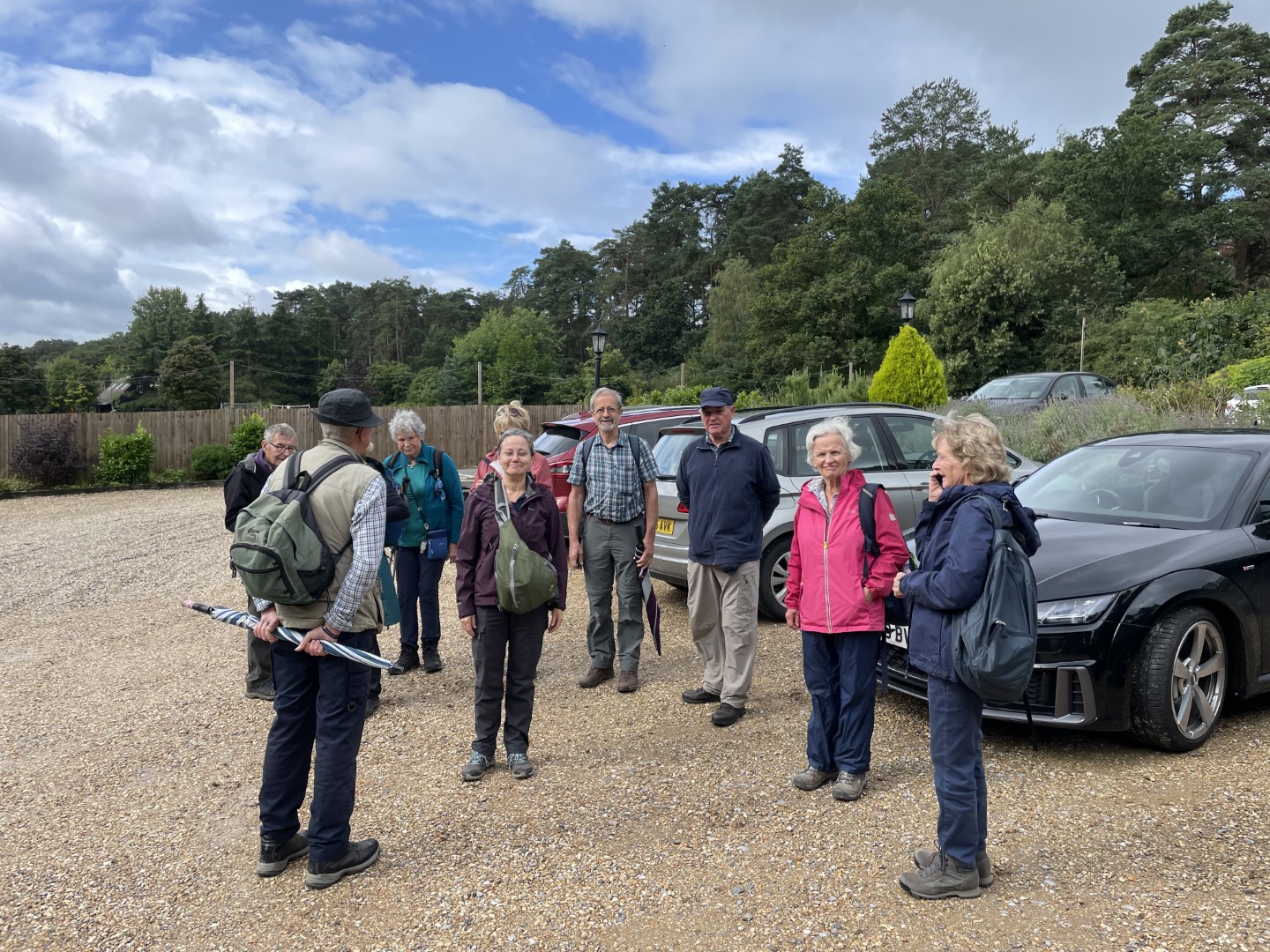
All assembled in the dry
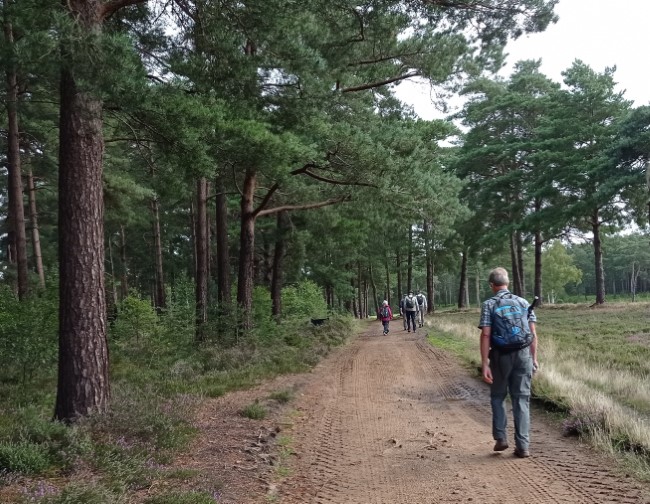
Come on, keep up!
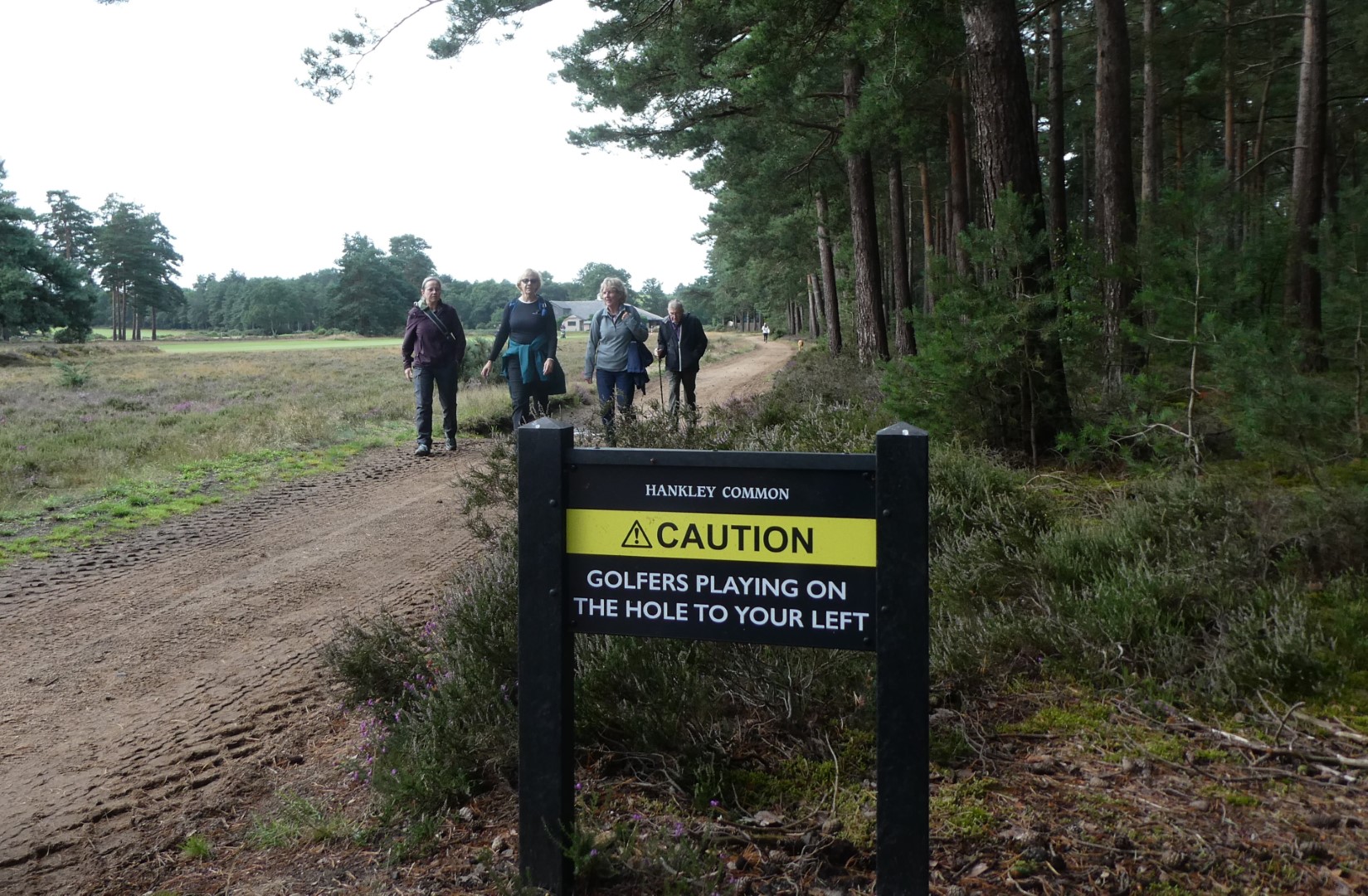
Not on our left they aren’t
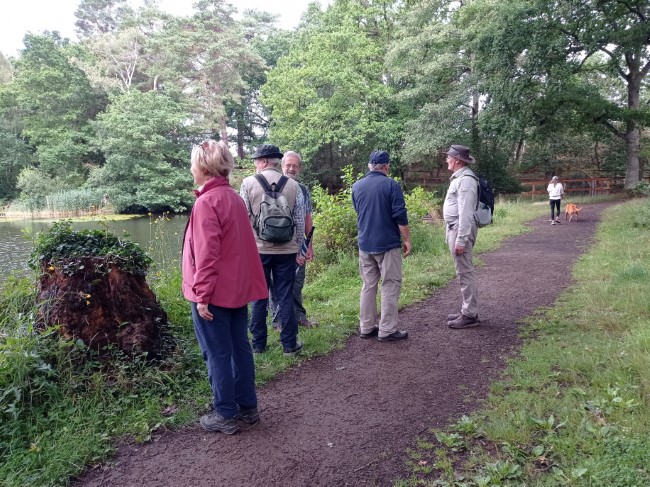
So, what's that puddle called?
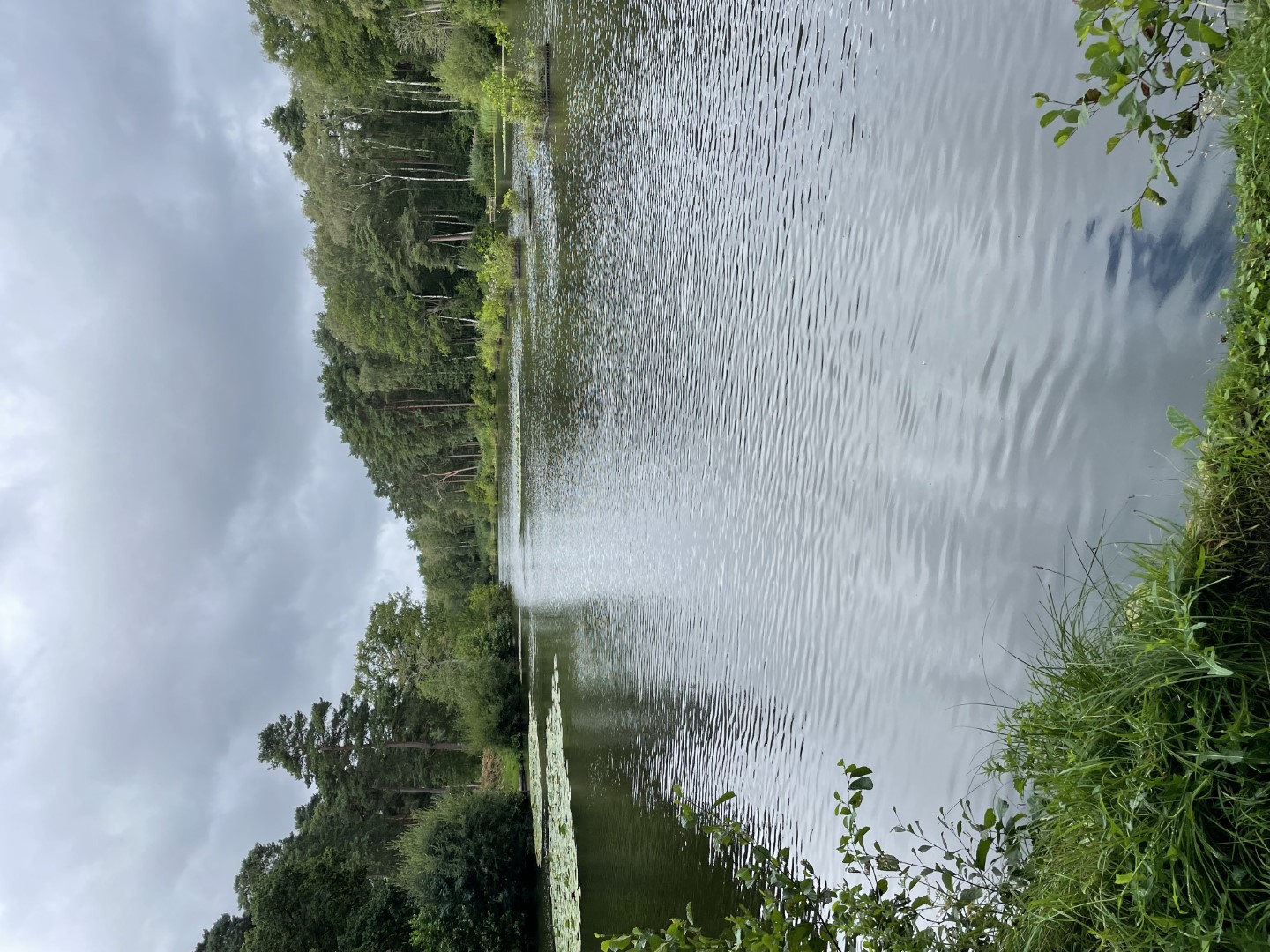
Stockbridge Pond
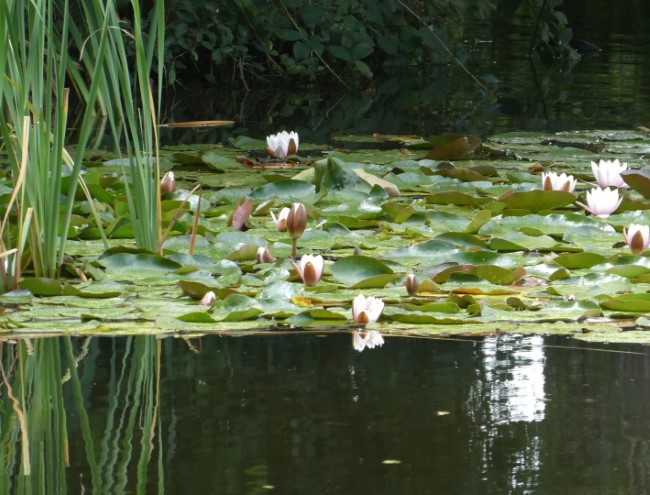
Lily pads on the pond

Making our way across Tilford Common and litter collecting too
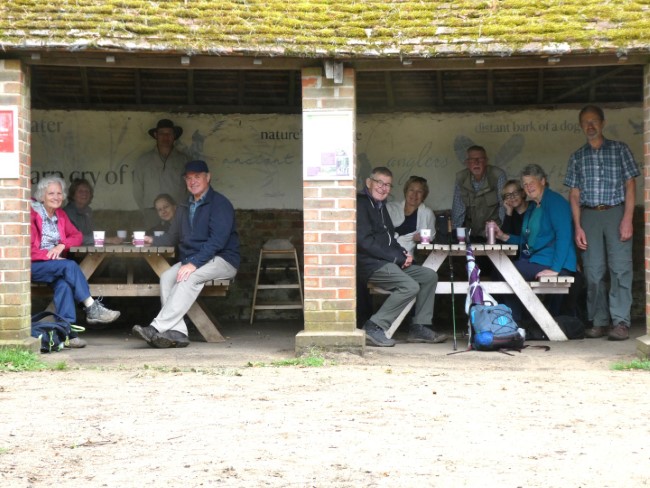
Coffee break in the dry
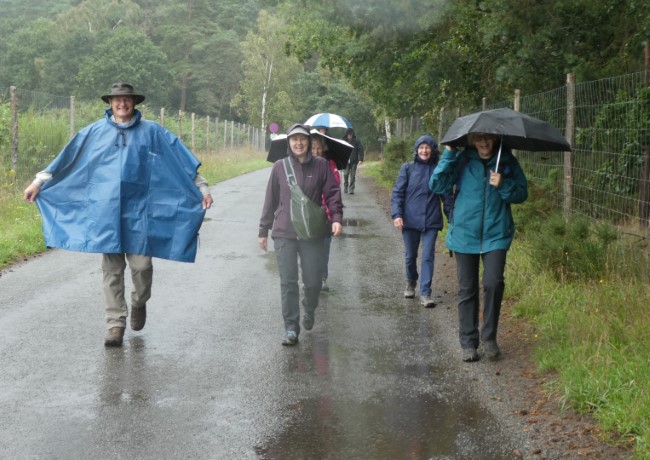
Sailing in the rain
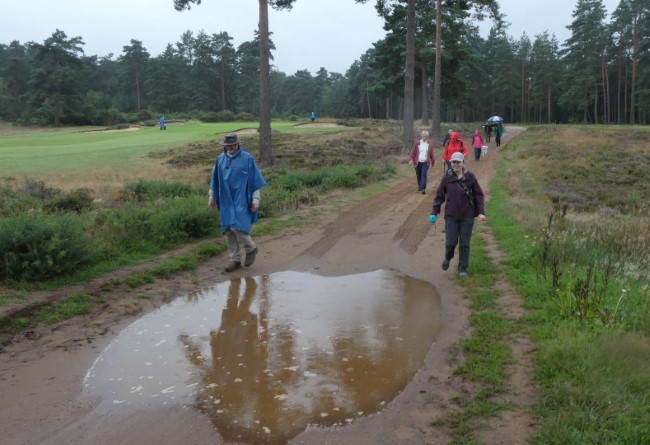
Short skirting around puddle
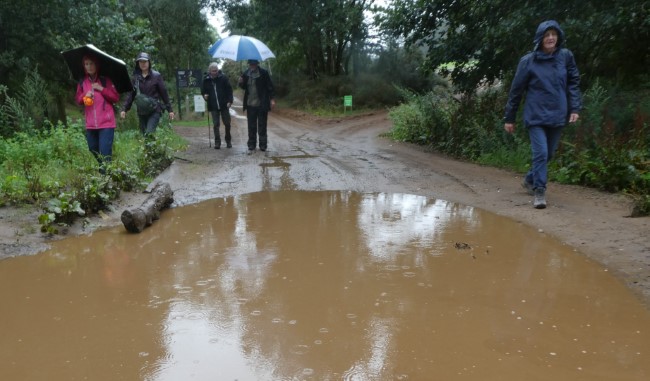
Full skirting around bigger puddle
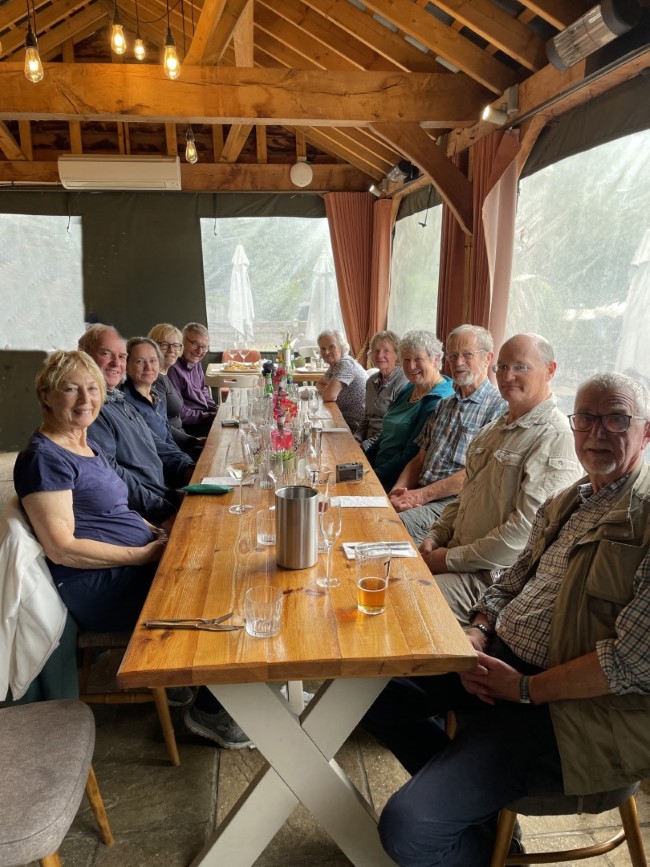
Time for lunch and birthday celebrations
t.png)
The 4.7 mile route
Selborne Walk 26th July 2023
John and Maureen led the 4.7 mile walk from Selborne, a Hampshire village just inside the Southdowns National Park and synonymous with Gilbert White, the naturalist whose book ‘The Natural History and Antiquities of Selborne’ (1789) has never been out of print and is allegedly the fourth most published book in the English language. No pressure on John and Maureen then!
We met up behind The Selborne Arms, were herded together and endured the pain of climbing uphill by straight away ascending the Selborne Hanger on the zigzag path attributed to Gilbert and his brother, we suspected there may have been some volunteers as well. The view at the top was enjoyed while we got our breath back and debated over the giant golf balls at RAF Oakhanger. On the common we encountered a tree clearing operation and recovered a warning sign that was put back up for fellow users of the common. Crossing the Common on Selborne Hill we turned right to stay on the edge of the Common and met up with some other walkers that shunned us as we were obviously not their type. The coffee break was not far from Wood Pond. Afterwards we continued to skirt the edge of the Common when we arrived at Gracious Street where some of us debated whether to continue by bus. At Grange Farm we left the road, descended to the main road, crossed over and continued to a gully where we dropped down to Hangers Way and made our way up to St Mary the Virgin church which is a Grade I listed church that dates back to the late 12th century. The church was open so we had a visit and found Gilbert White’s humble grave outside. We returned to the high street, passing the plaque for Sullivan Black, the fictional author of the rediscovered ‘Unnatural History of Selborne’, and an amoral and disreputable contemporary of Rev Gilbert White, described as a Libertine, opium eater, drunkard, duellist, gambler and wastrel. This provided a challenge for us as we headed back to the Selborne Arms to wine and dine and fail miserably to attain any of Mr Black’s attributes.
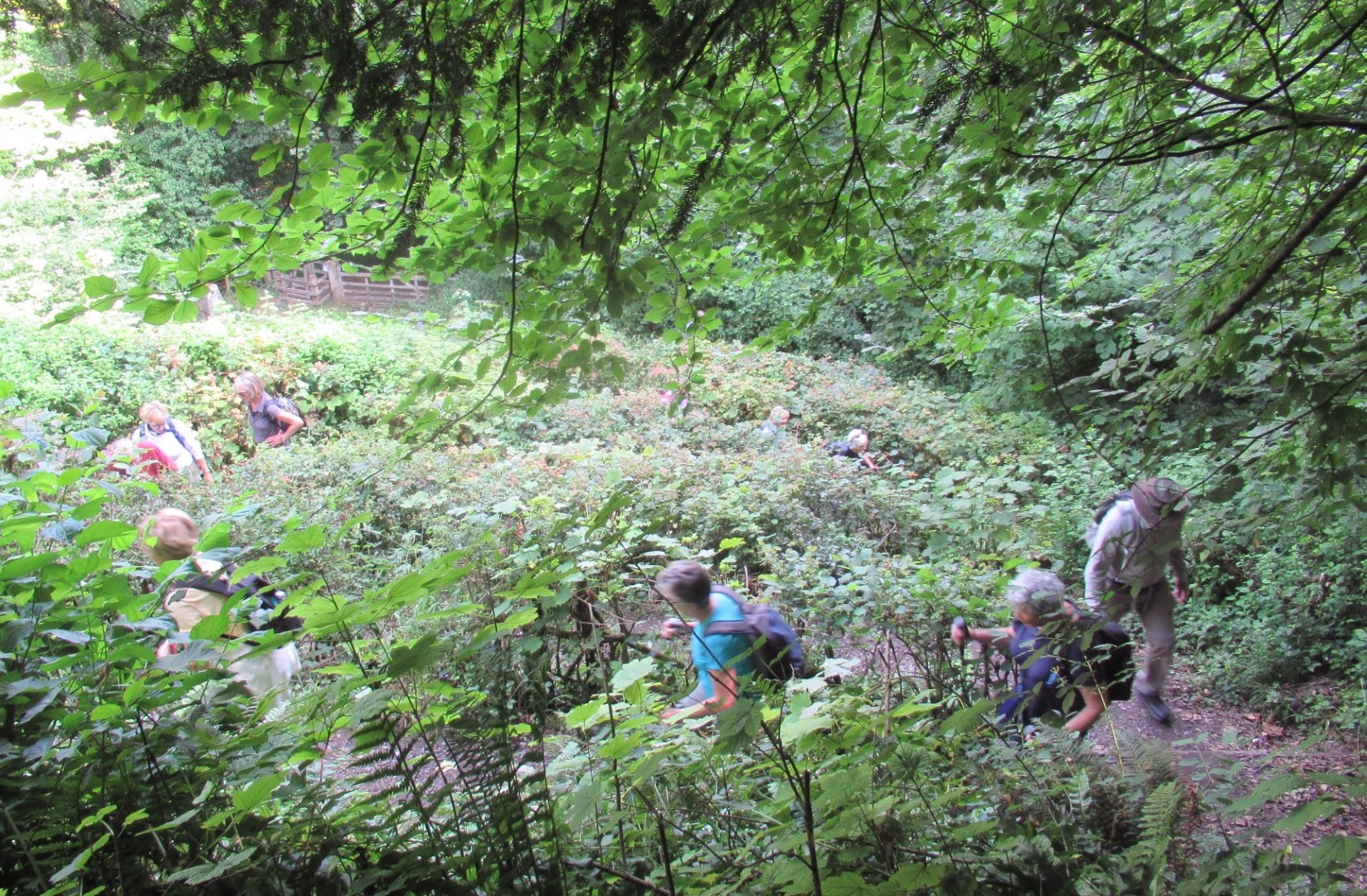
Zigging and Zagging up Selborne Hanger.
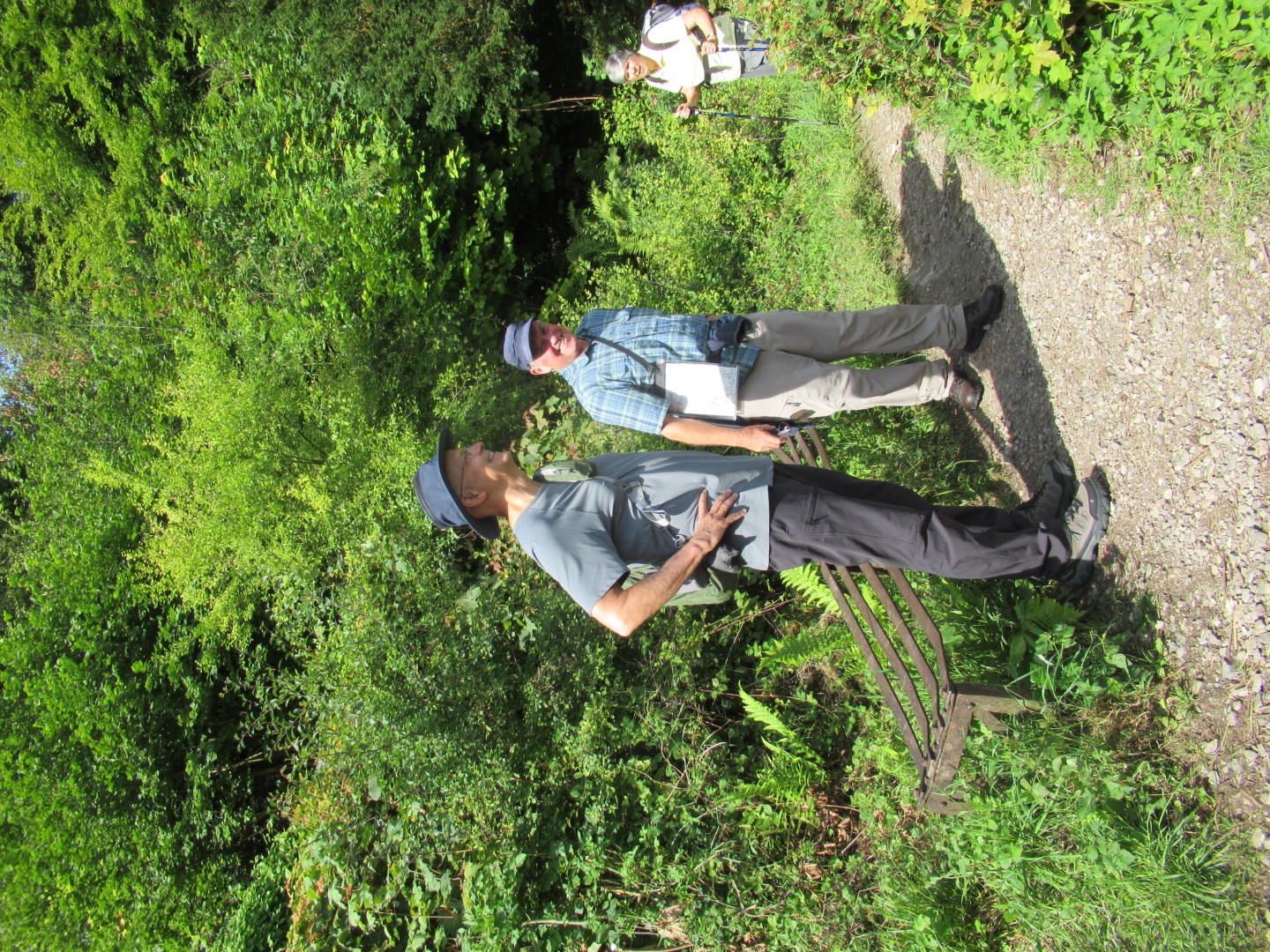
The fittest waiting for the rest to catch up at the halfway zag.
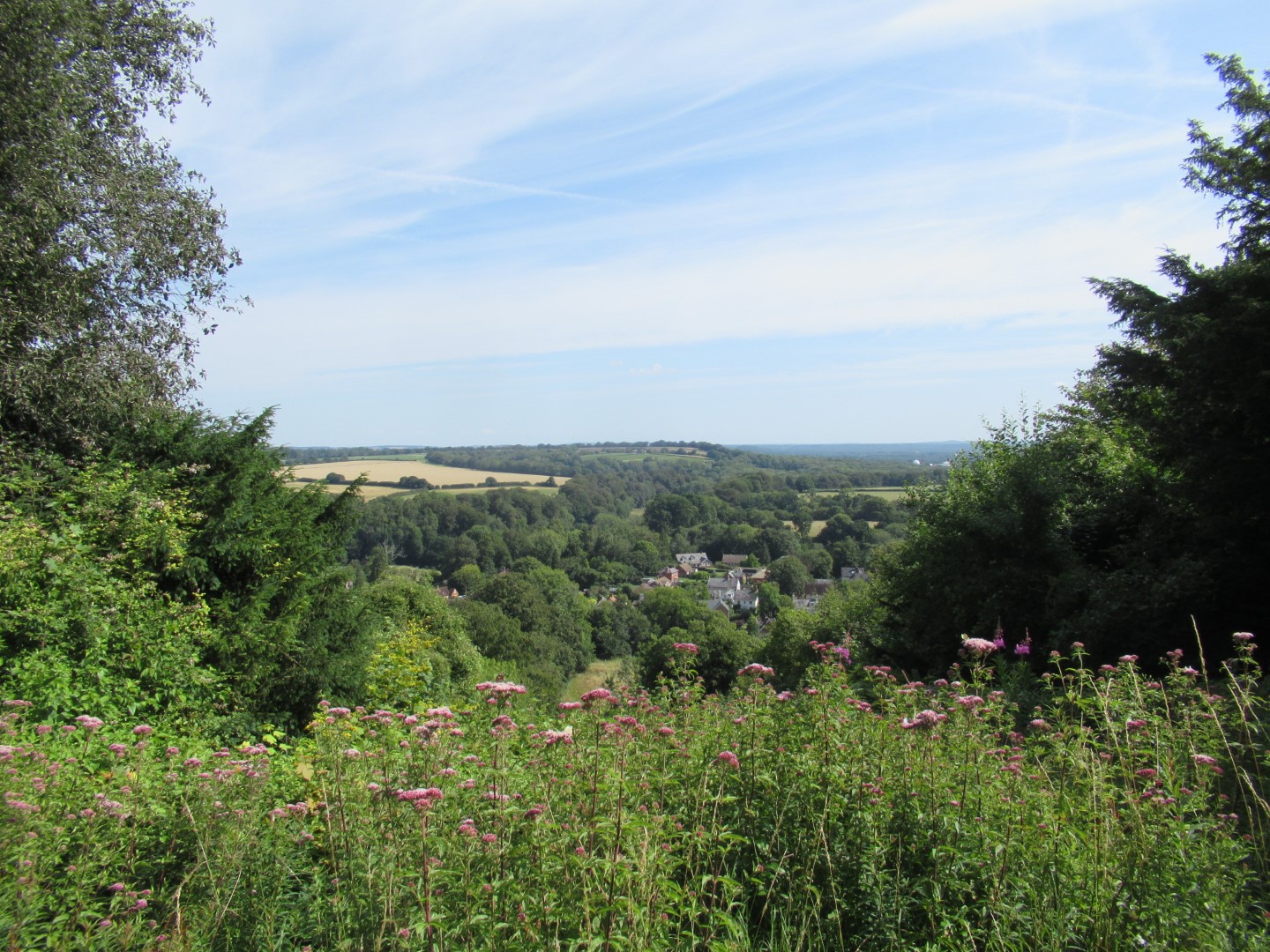
View from the top of Selborne Hanger.
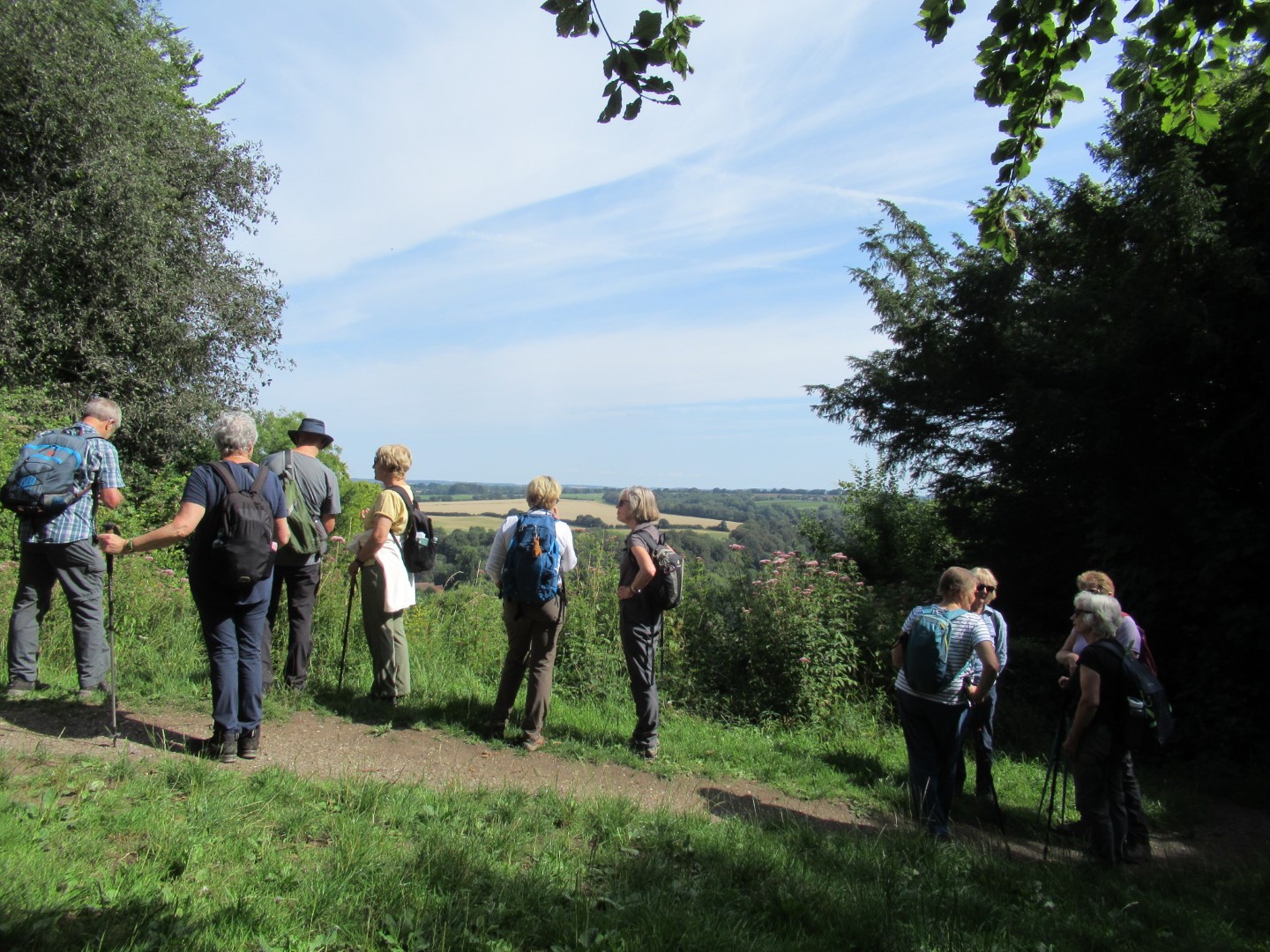
Never mind the view, we just want our breath back.
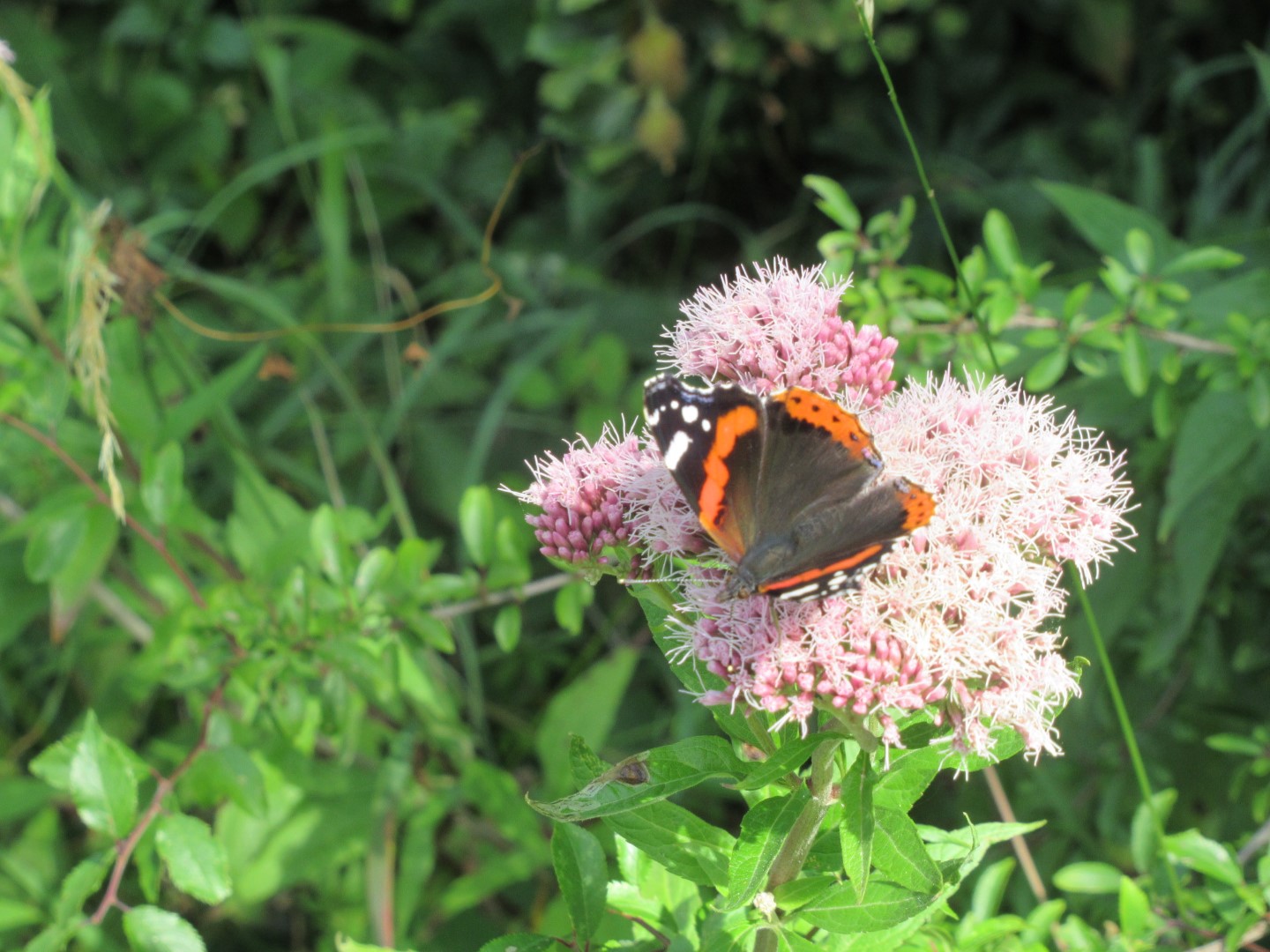
One of the multitude of butterflies on the Zig Zag.
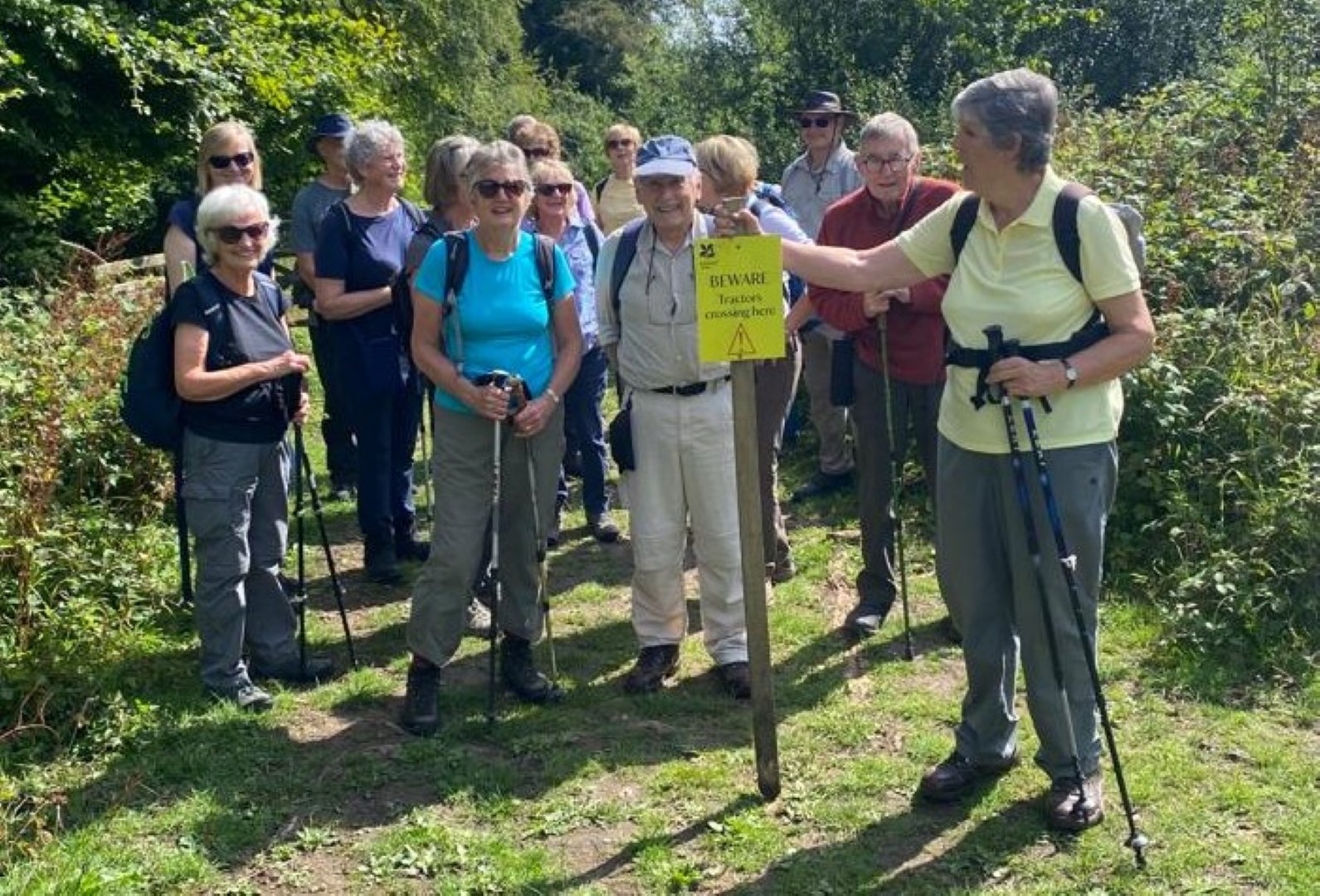
Funny looking tractors.
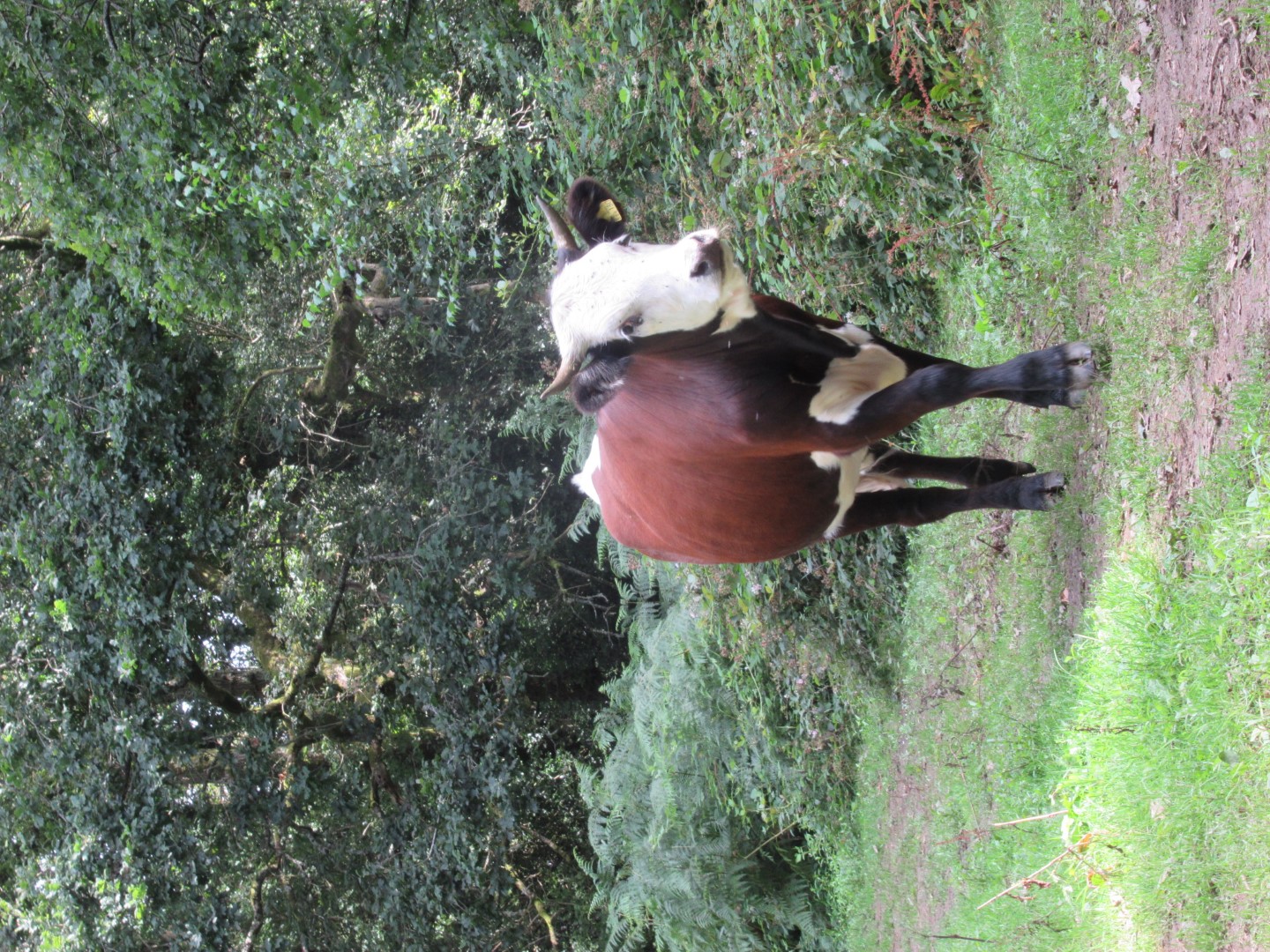
An aloof walker.
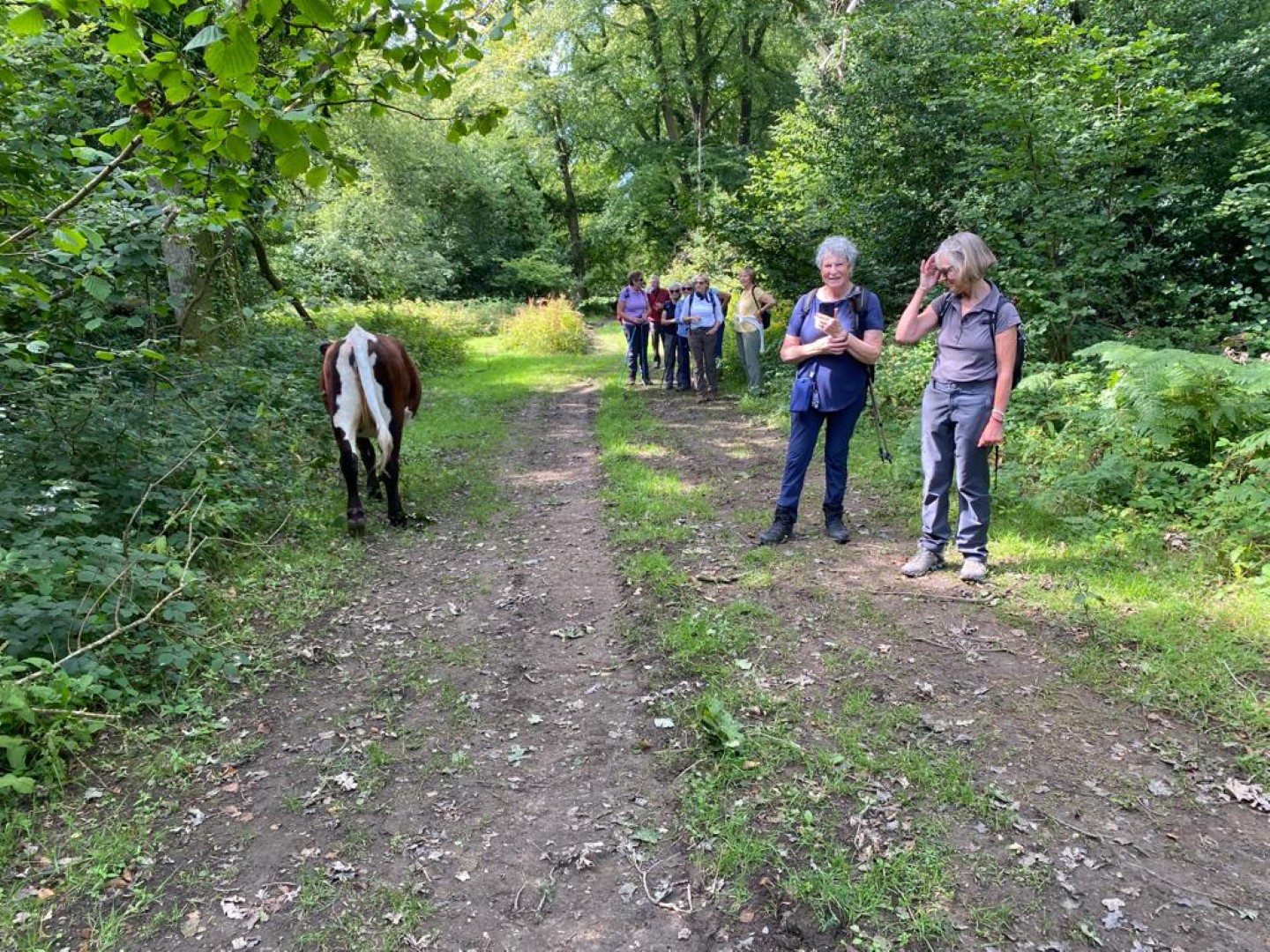
You’re not my type so I’m going to ignore you lot.
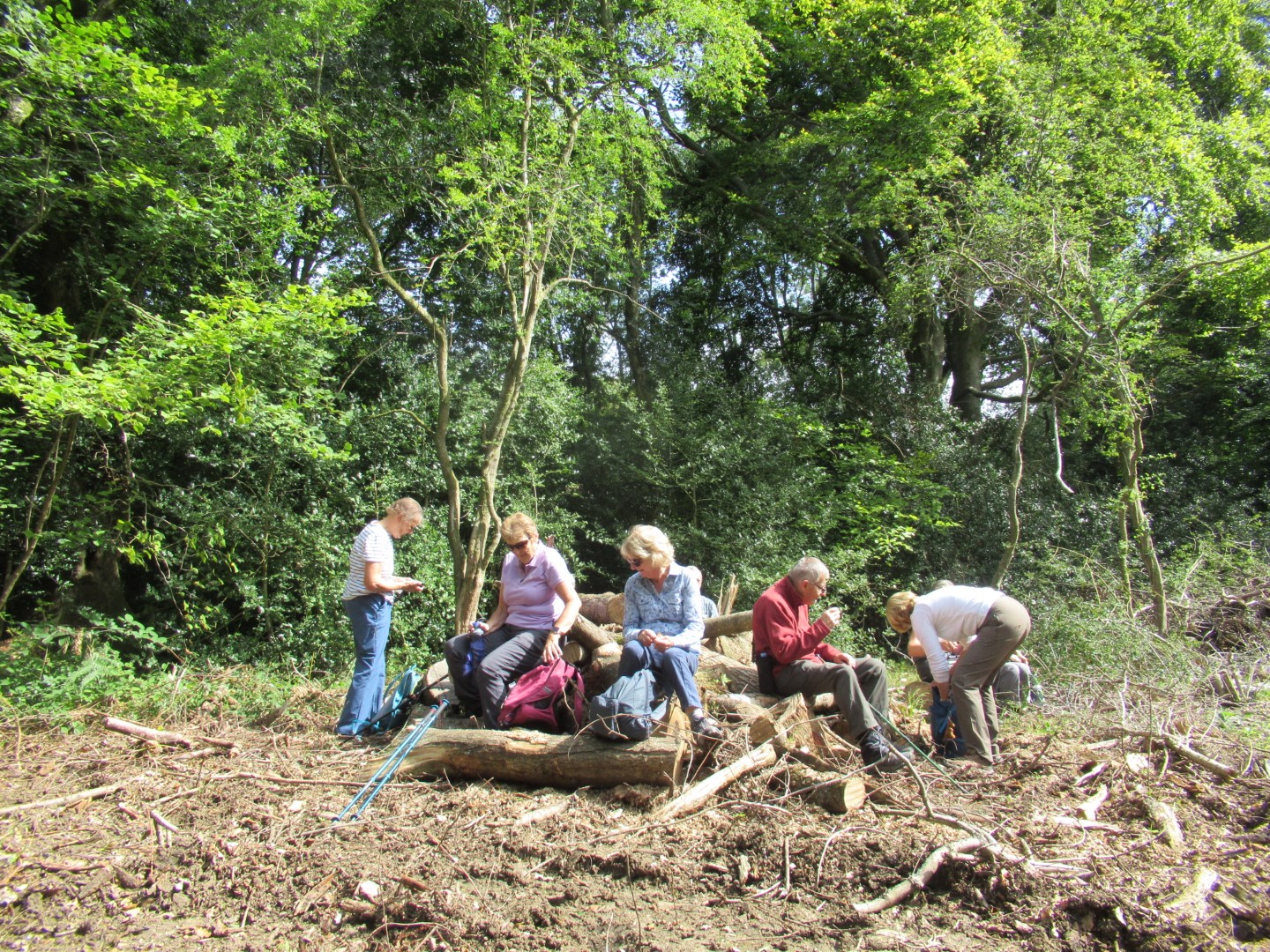
Roughing it for our coffee stop.
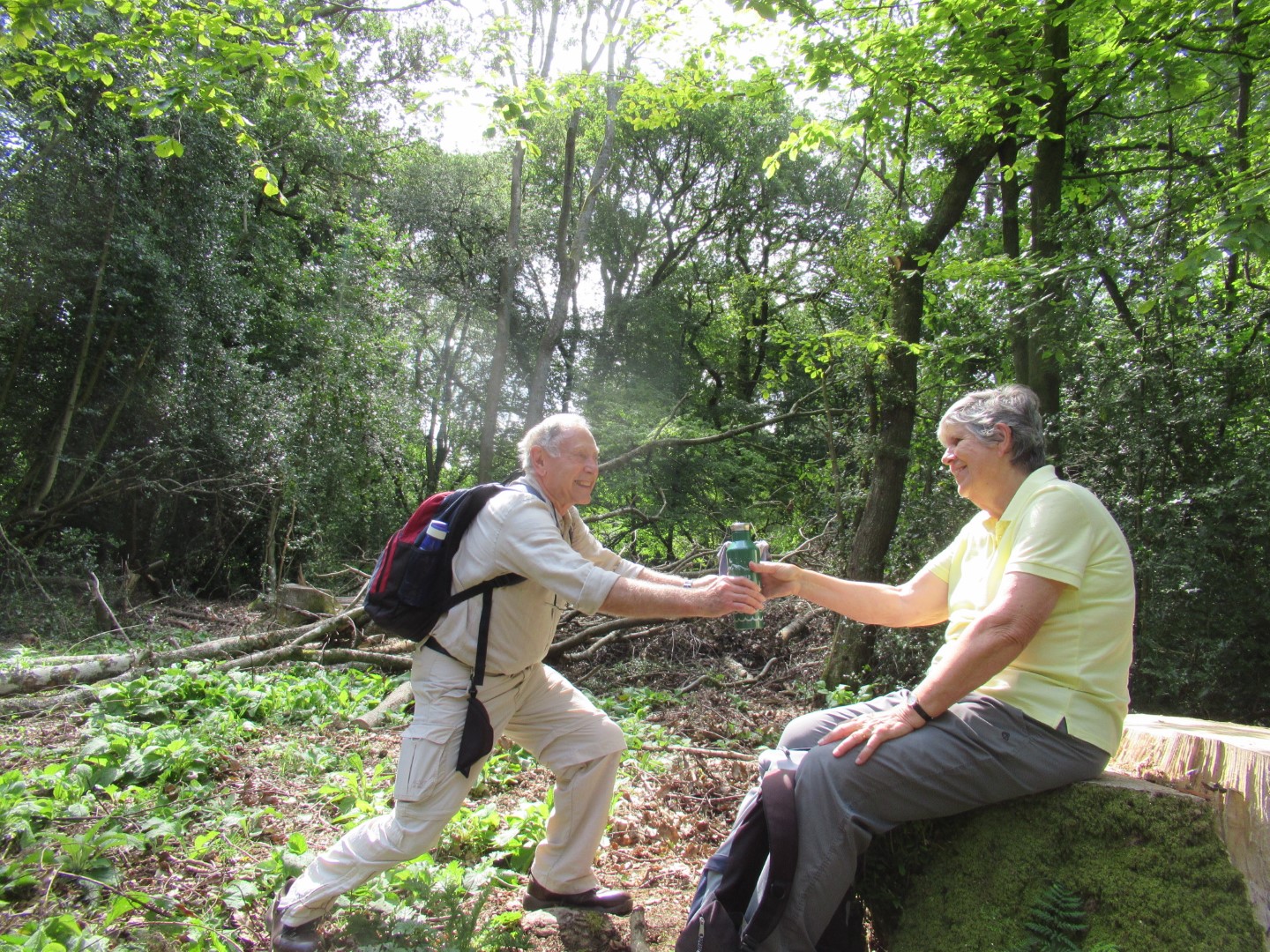
None of that self-service malarkey. This is how it should be done.
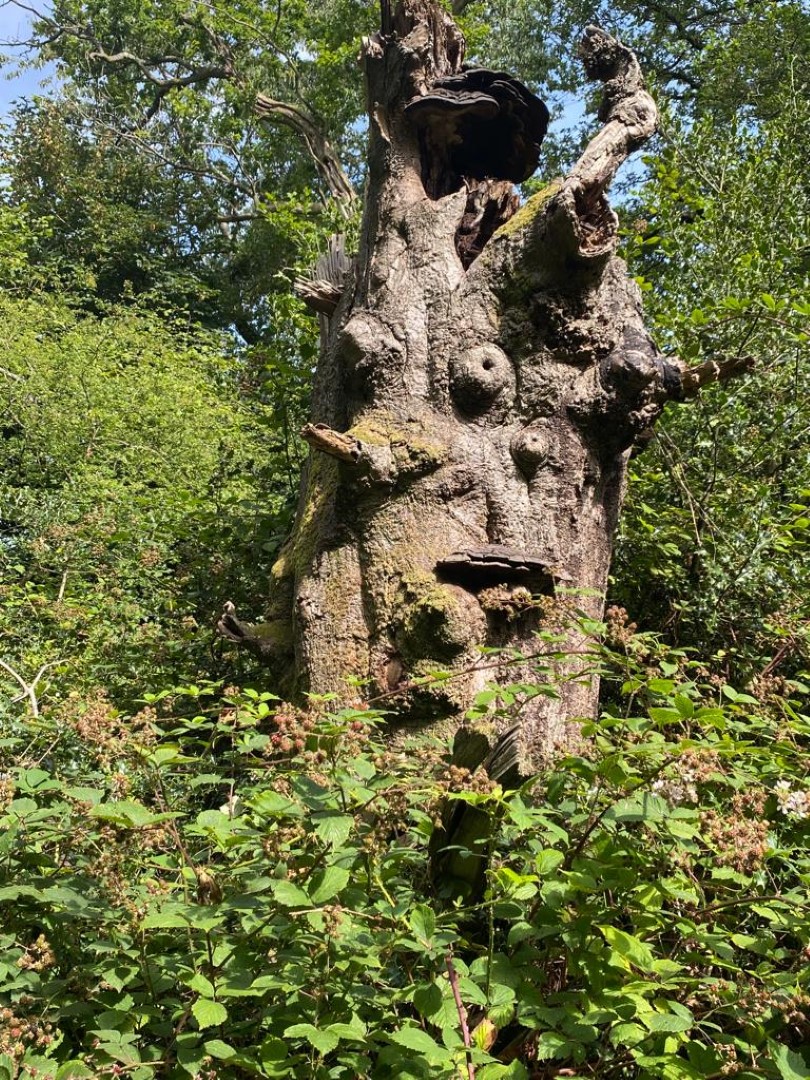
Met this Ent who pulled a funny face.
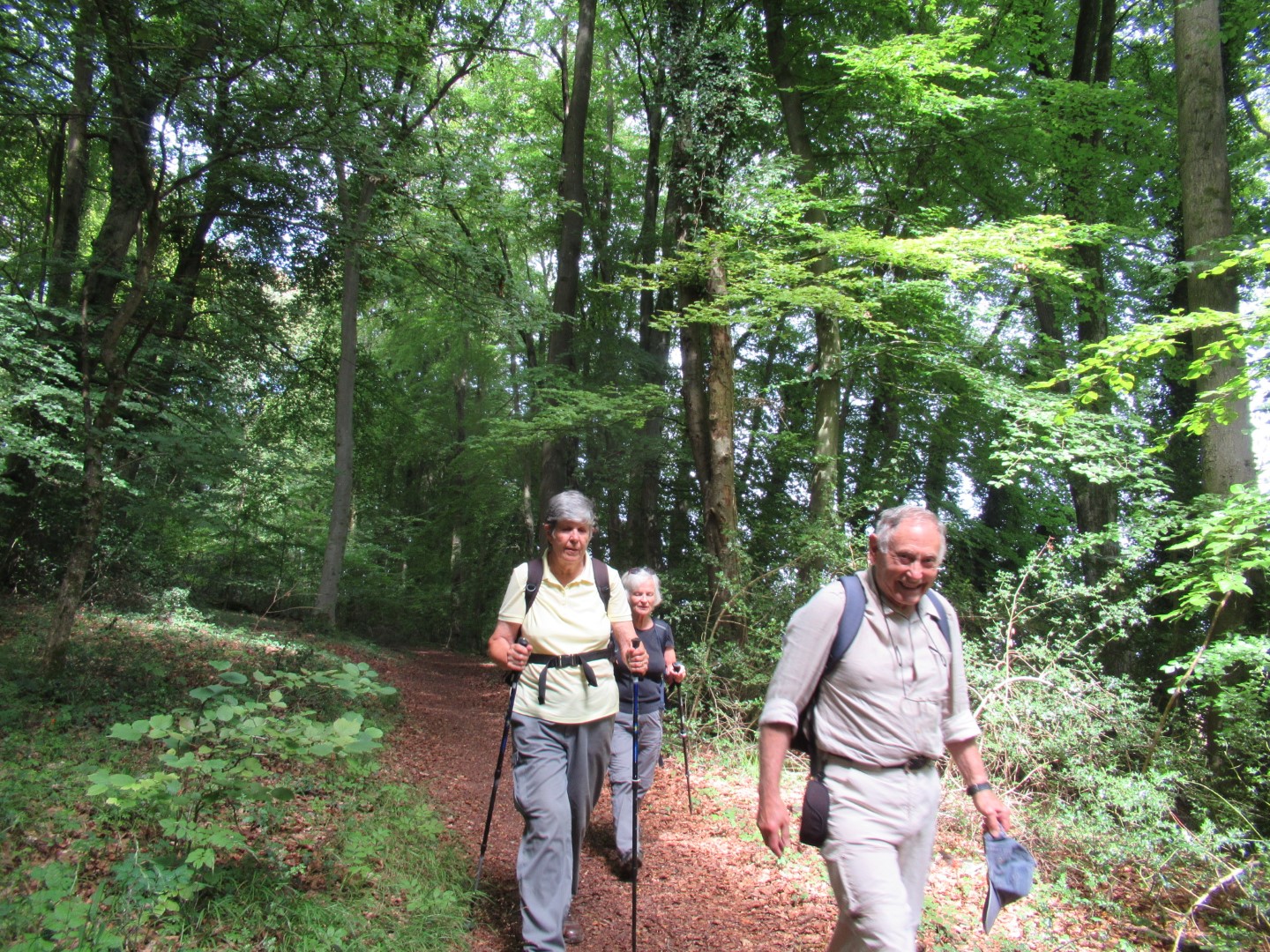
Strolling through woods.
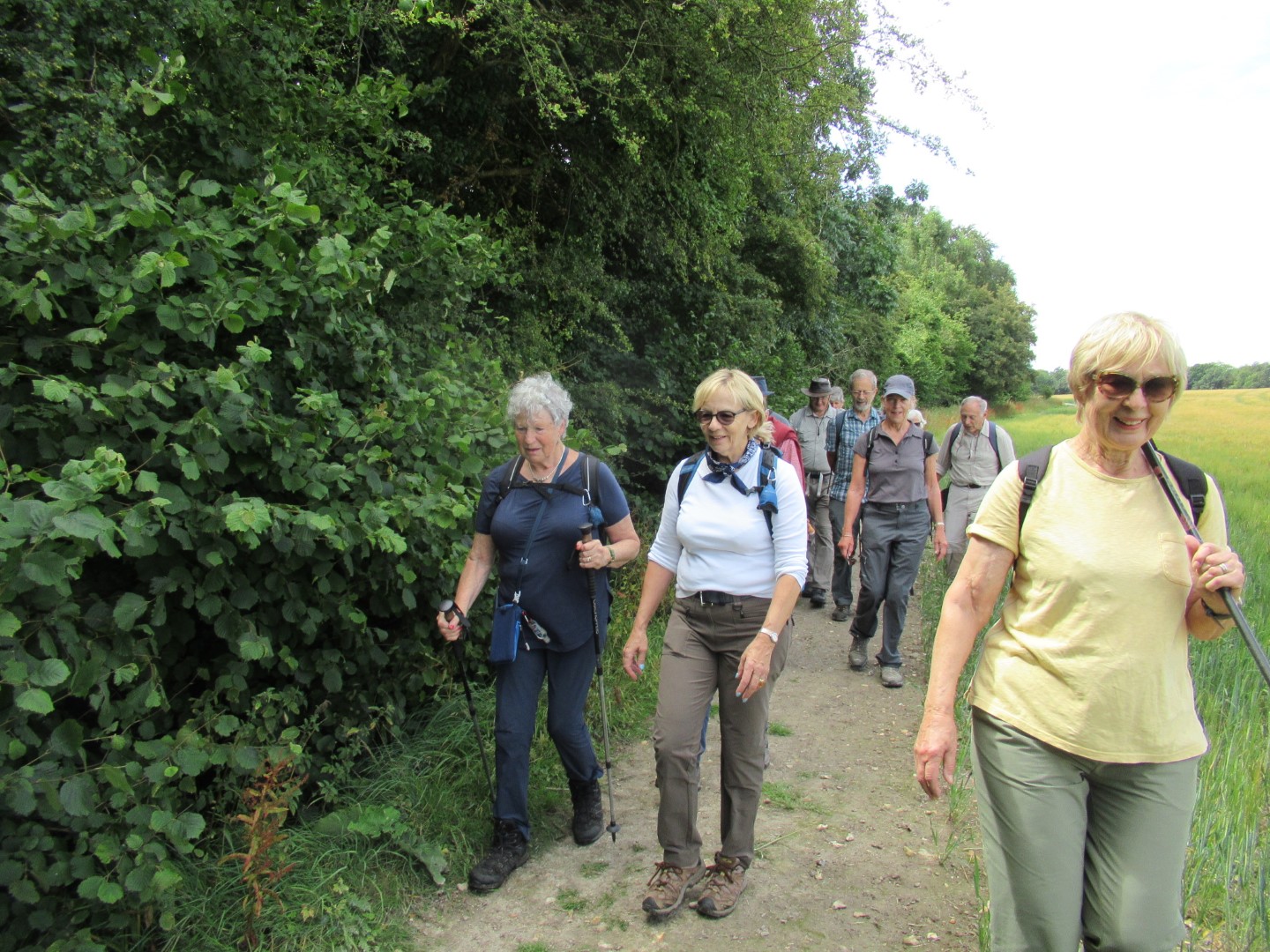
Enjoying the talking while walking.
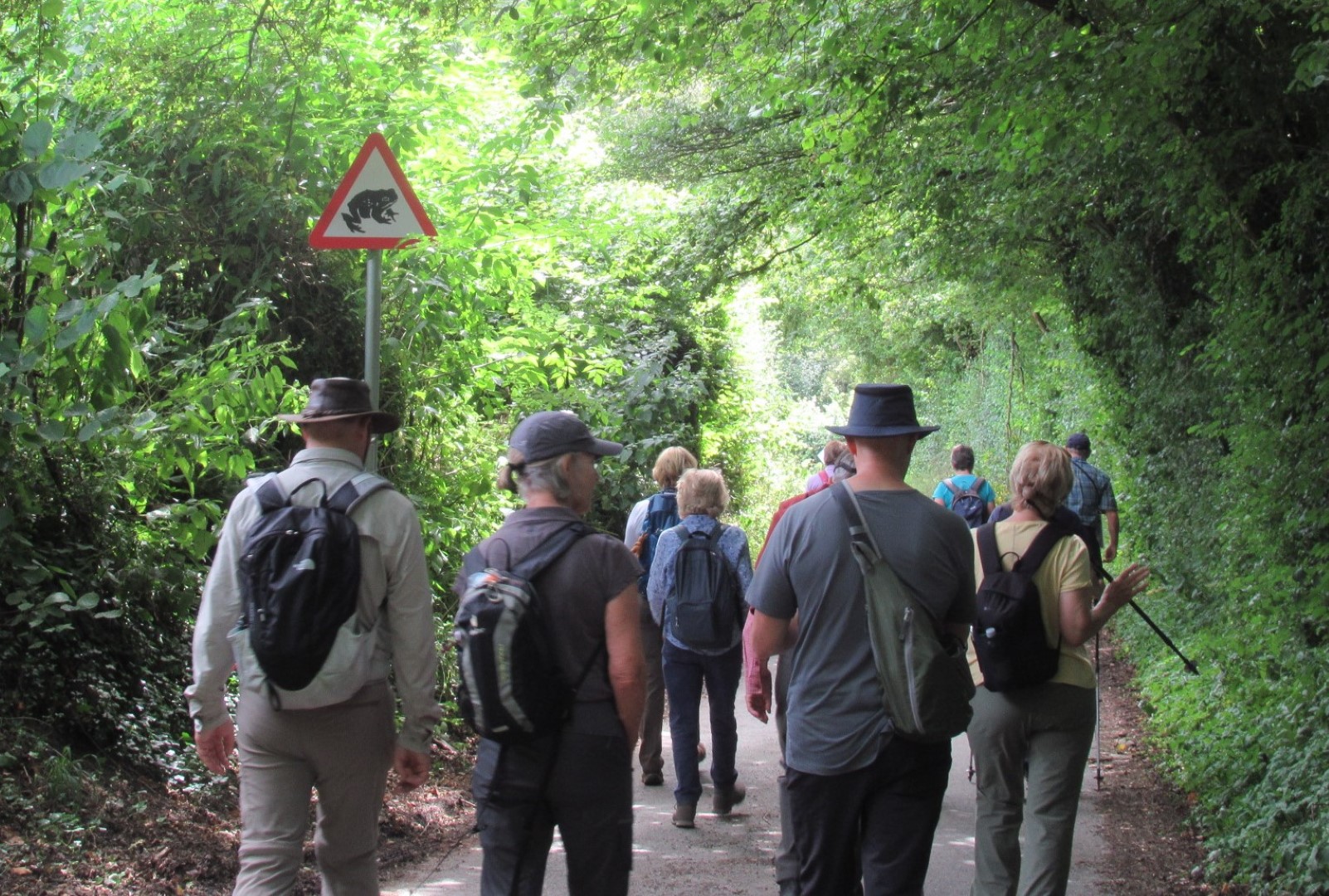
Time to hop along now..
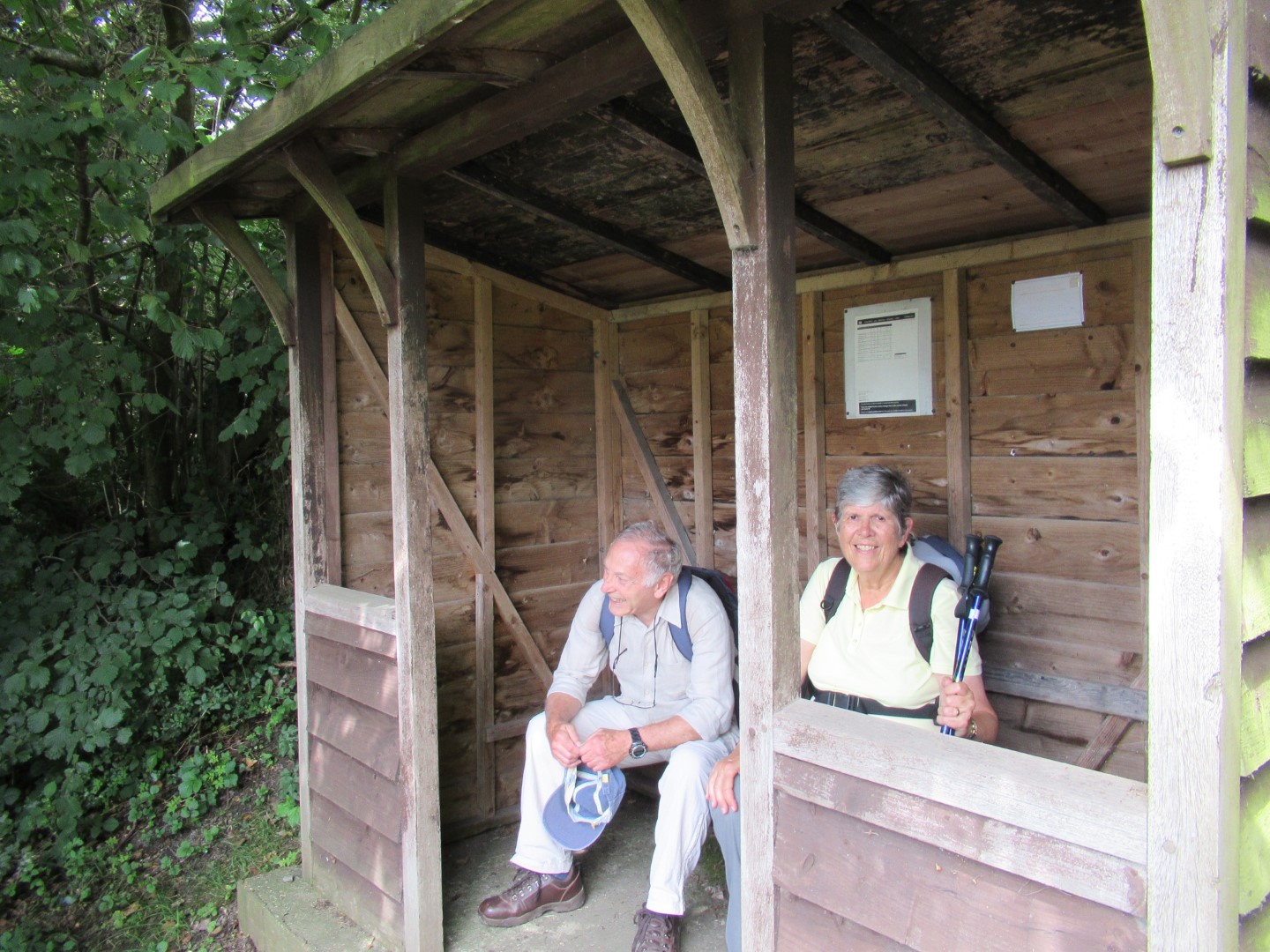
Shall we catch the bus?
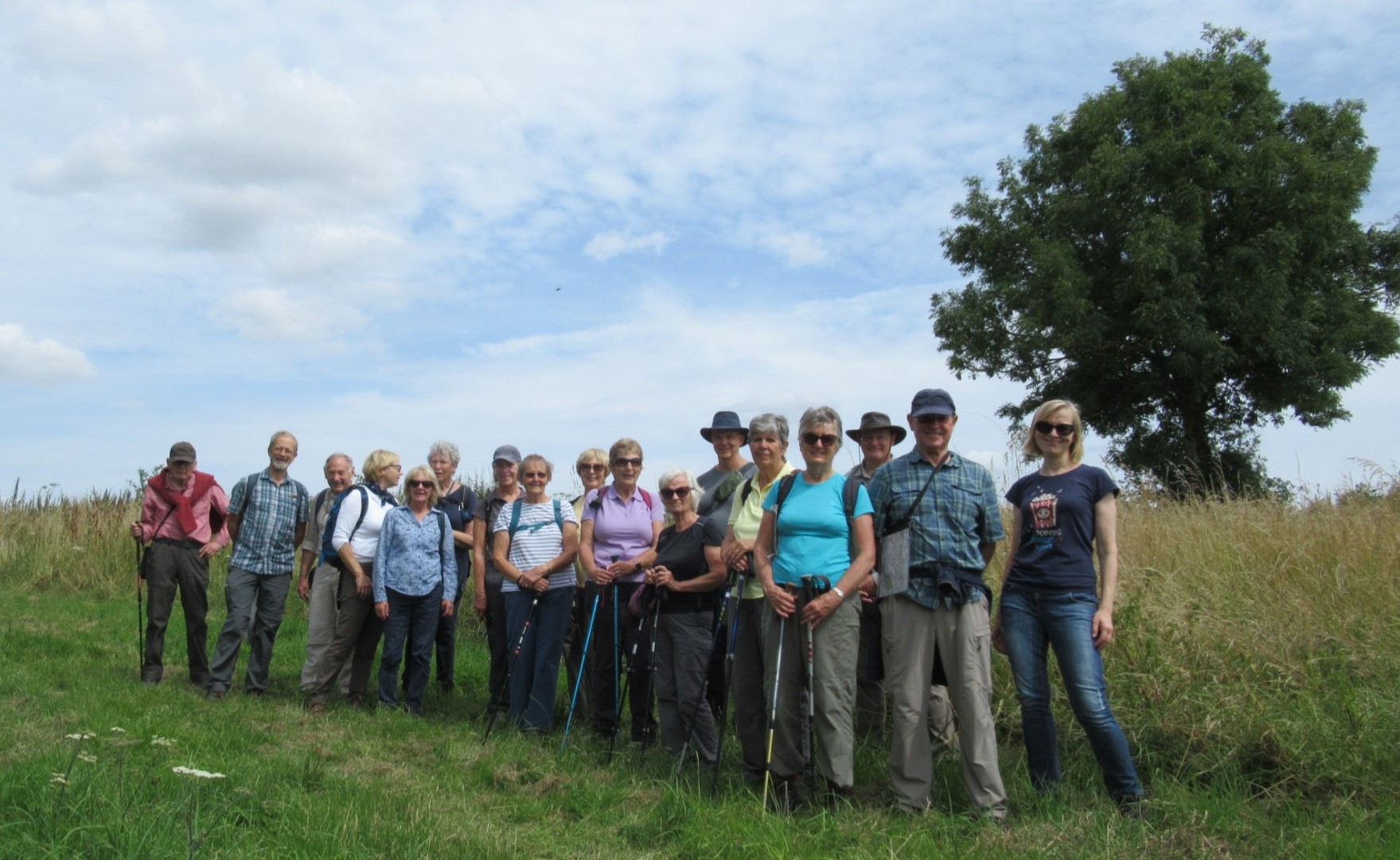
A good turn out
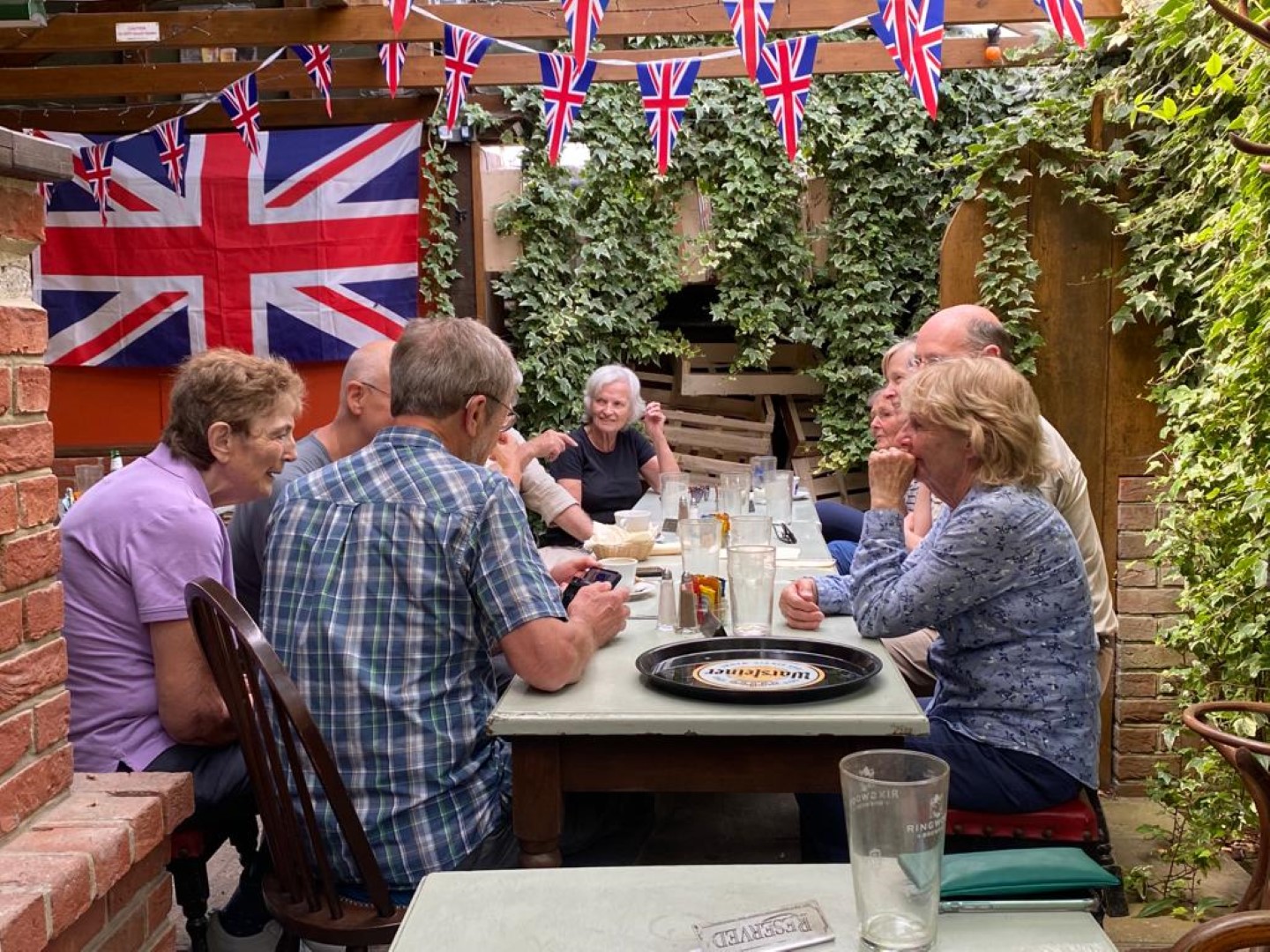
Wining and dining at The Selborne Arms.
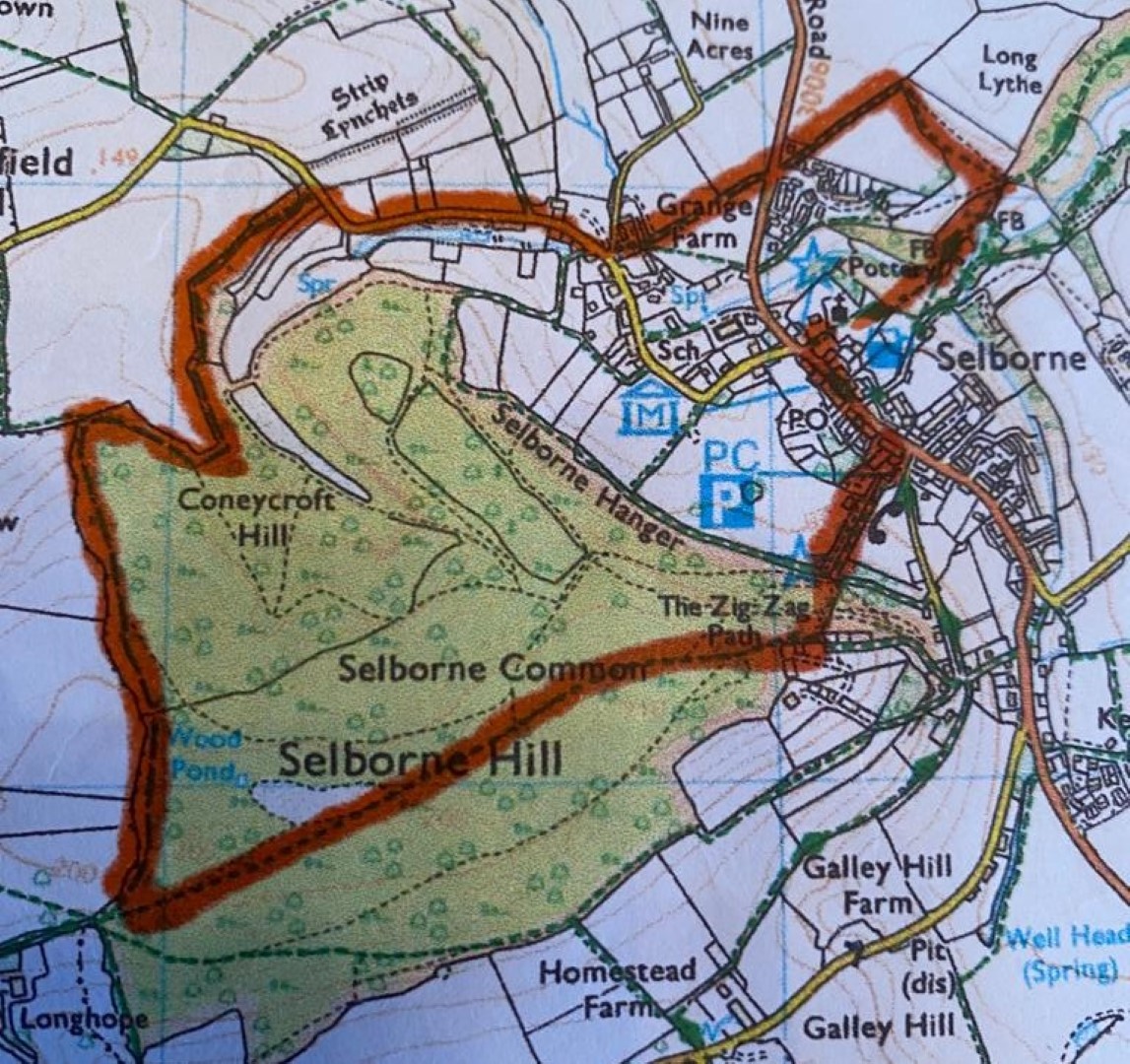
The 4.7 mile route.
Halnaker walk on 19th July 2023
The 5.7 mile gentle stroll started in the car park of The Anglesey Arms in Halnaker starting on the main road, admiring some of the houses before heading up Mill Lane track where some of us were more interested in the rolling stone than the information board telling us all about Halnaker Hill and The Windmill Trail. A short climb brought us to the path up to the refurbished Halnaker Windmill. Halnaker Mill was first mentioned in 1540 as belonging to the manor of "Halfnaked". It was built for the Duke of Richmond as the feudal mill of the Goodwood Estate. The surviving mill is thought to date from the 1740s and is known to have been standing c.1780. Halnaker Mill was working until struck by lightning in 1905, damaging the sails and windshaft. The derelict mill was restored in 1934 as a memorial to the wife of Sir William Bird. Returning to Mill Lane track we took footpaths beside vineyards, then back onto the main road before turning east into woodland where we stopped for our coffee break. The location was unanimously voted for. Once fed and watered the troup marched through a wheatfield towards Eartham but turned south west before getting there. The route through Thicket Beeches needed some secateur wielding to clear the path while some demonstrated dressage techniques for elegantly stepping over the brambles. Arriving on Thicket Lane we turned south and then into Dyer’s Copse to come onto Tinwood Lane. A slight shimmy off the Lane took us into Tinwood’s vineyard coming close to the Church and ruins of Boxgrove Priory and back to The Anglesey Arms for a great lunch.
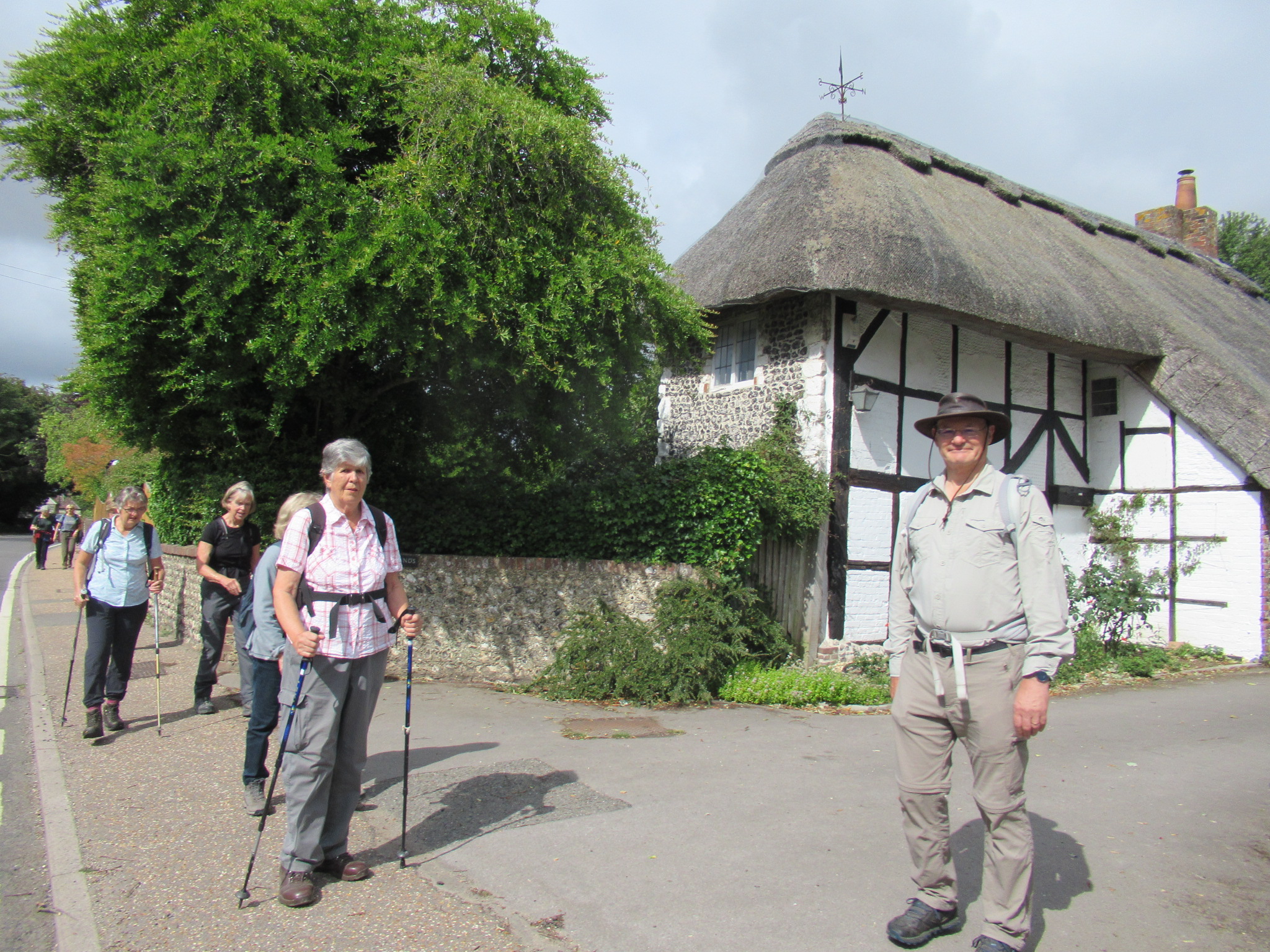
Admiring thatched houses in Halnaker
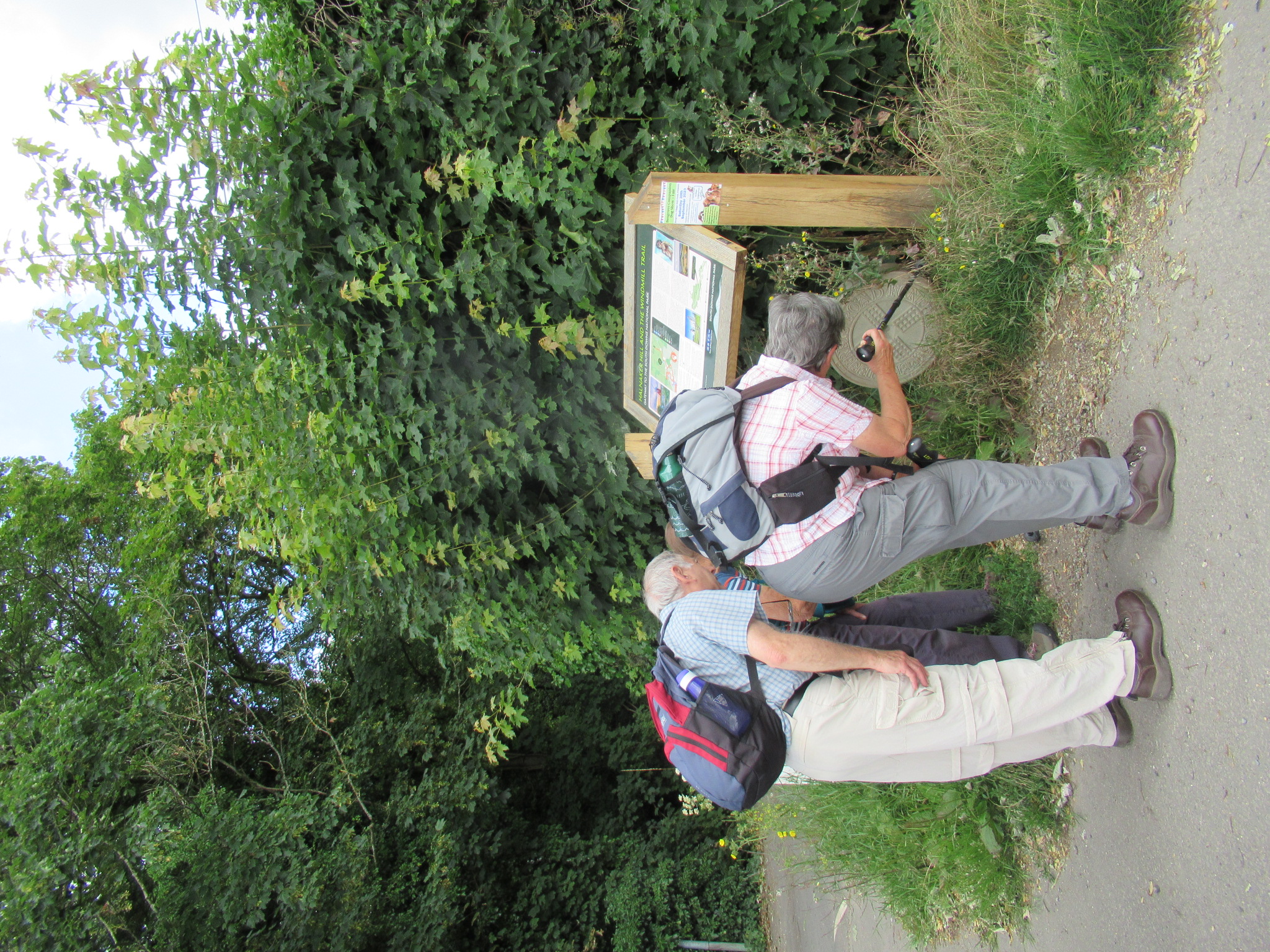
We are The Rolling Stones!
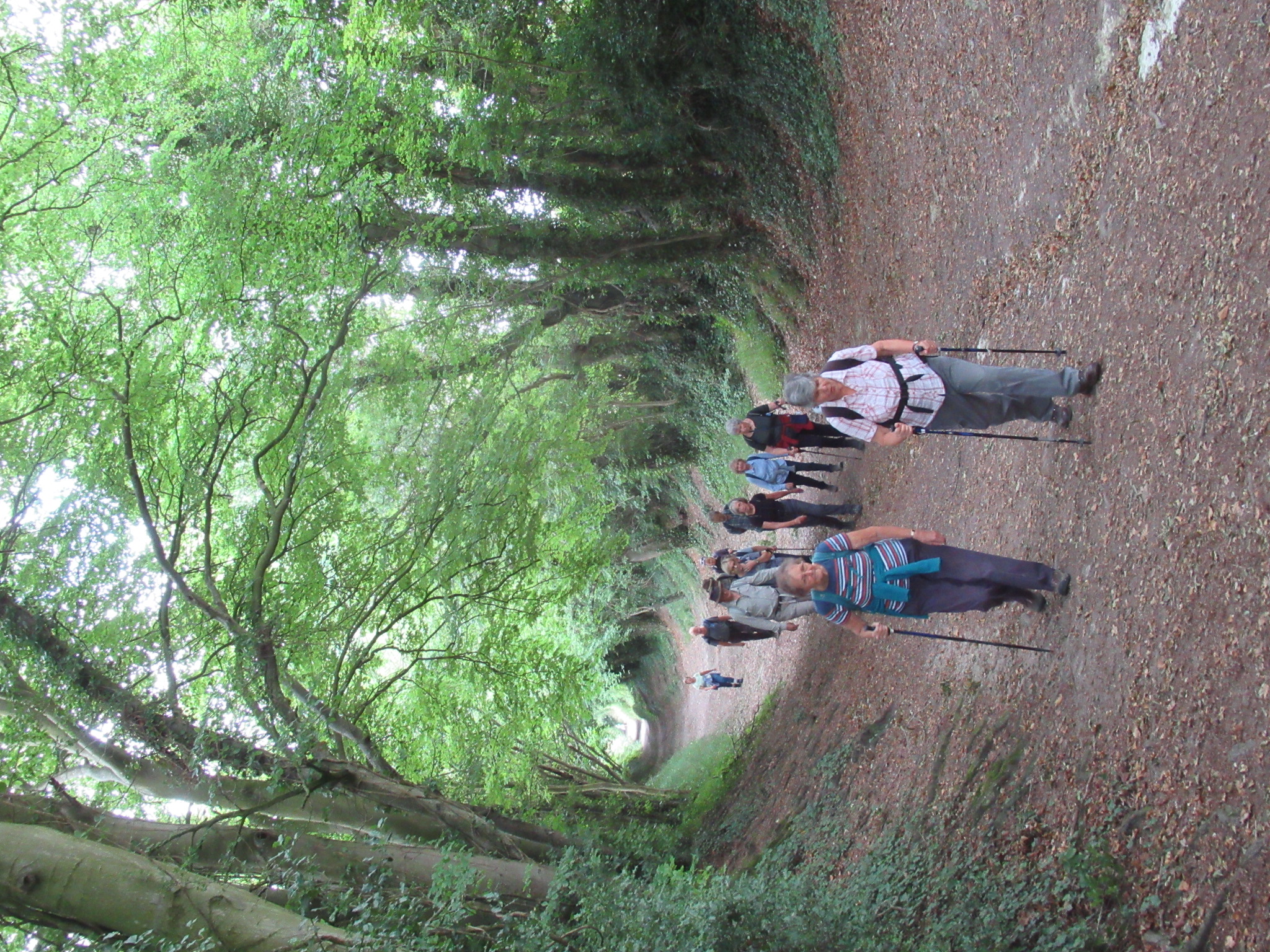
Walking up the tree tube
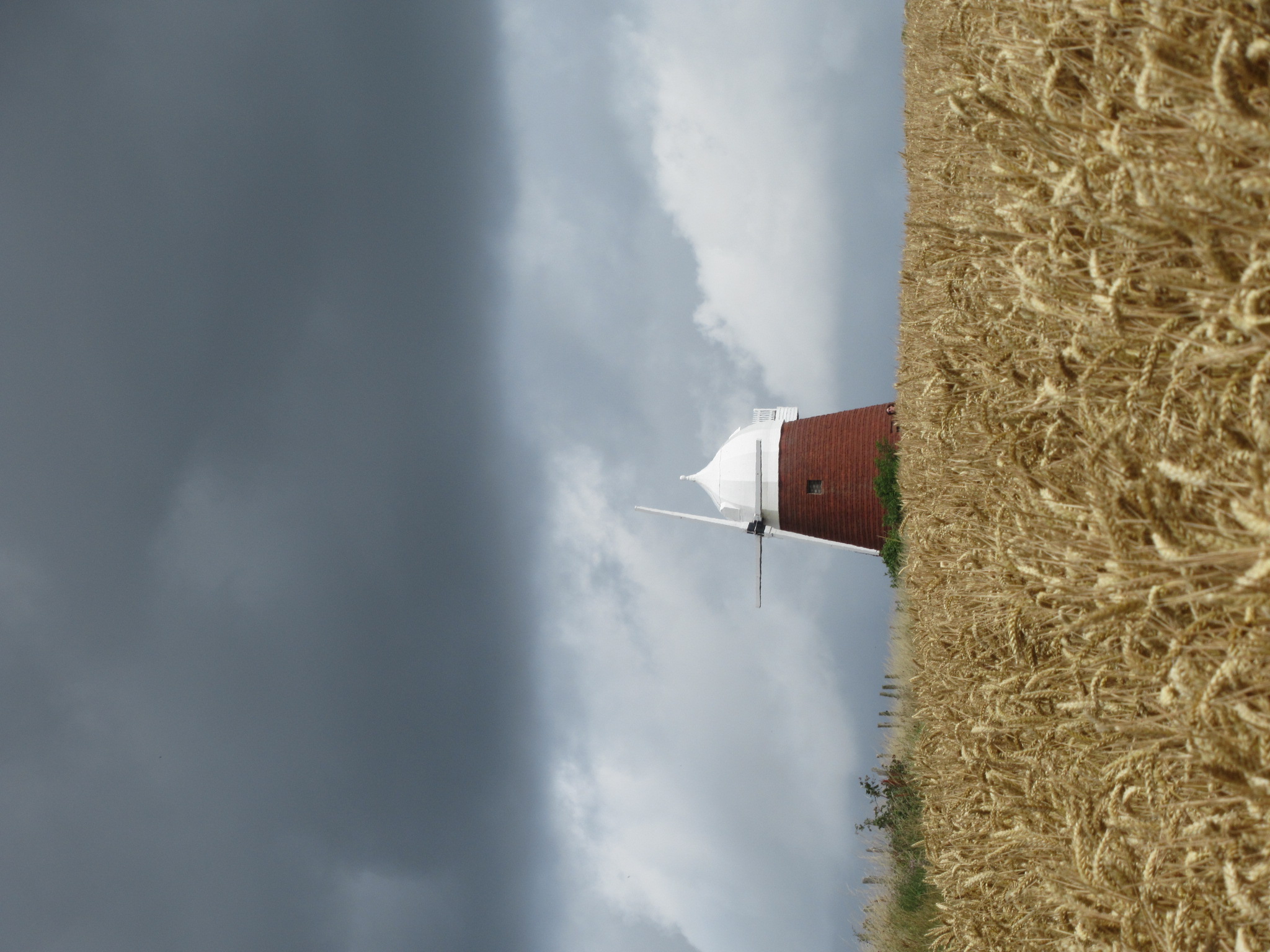
A moody Halnaker windmill
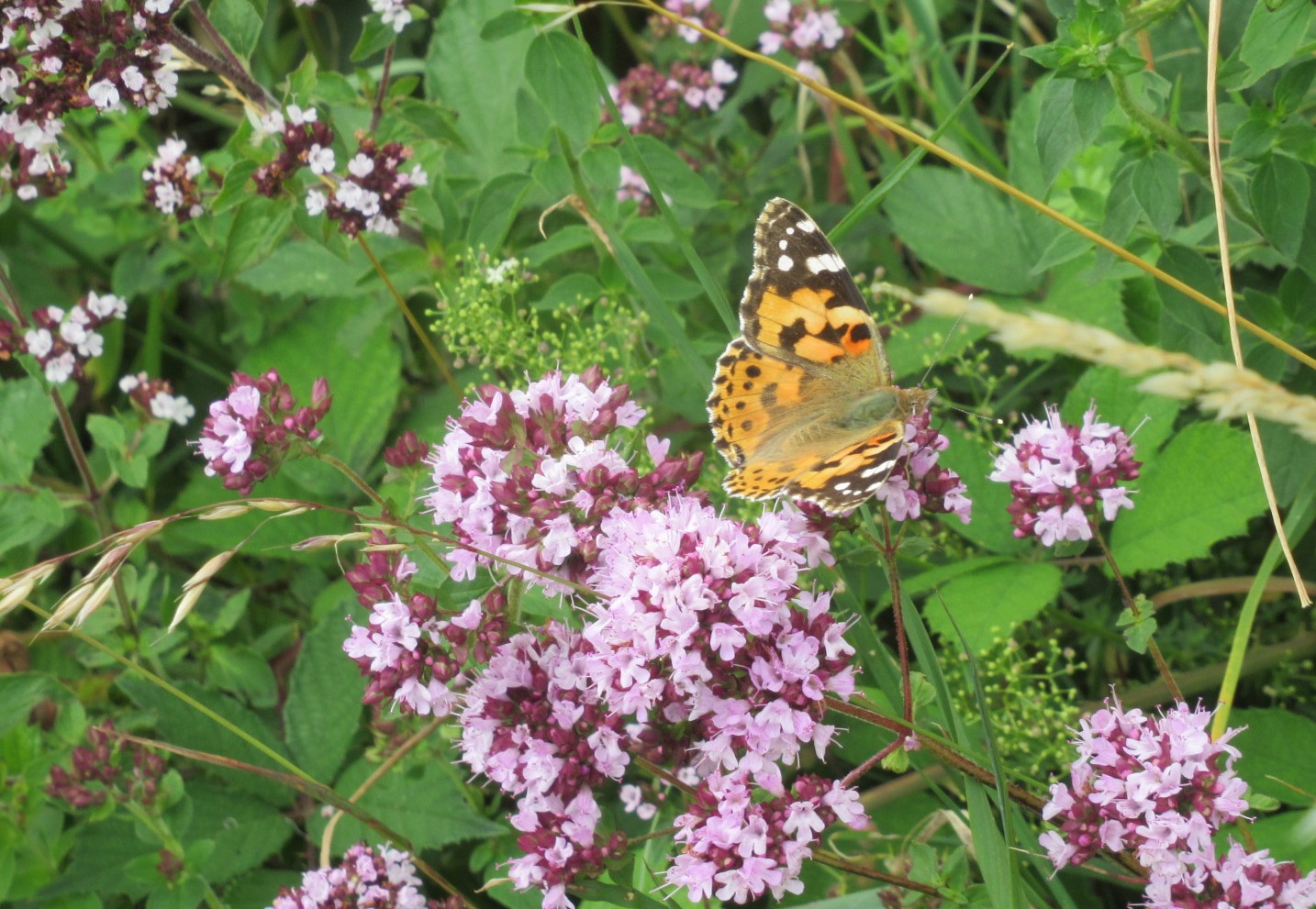
Butterfly enjoying a wild herb
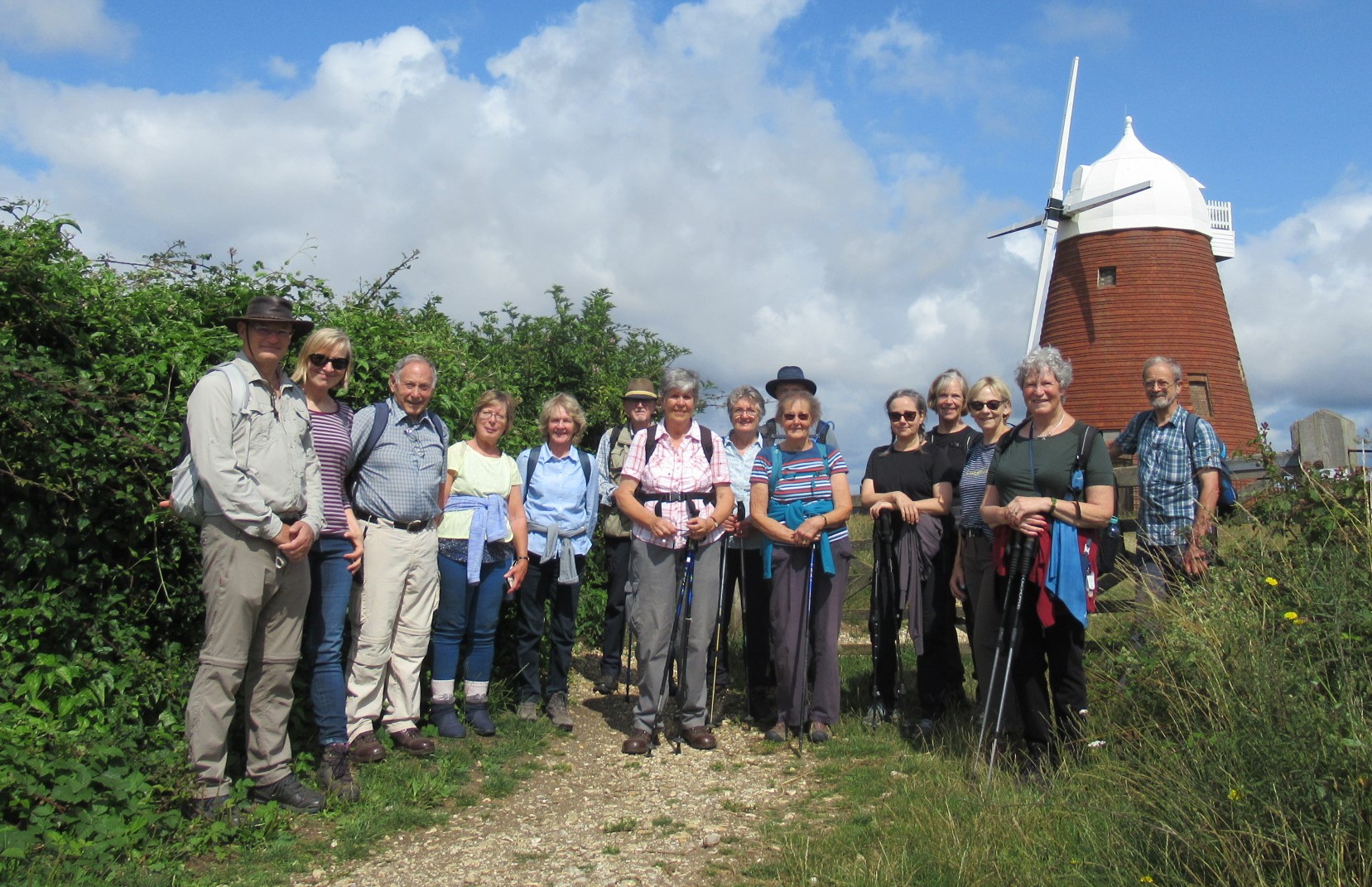
The weather cleared, must be time for the team photo
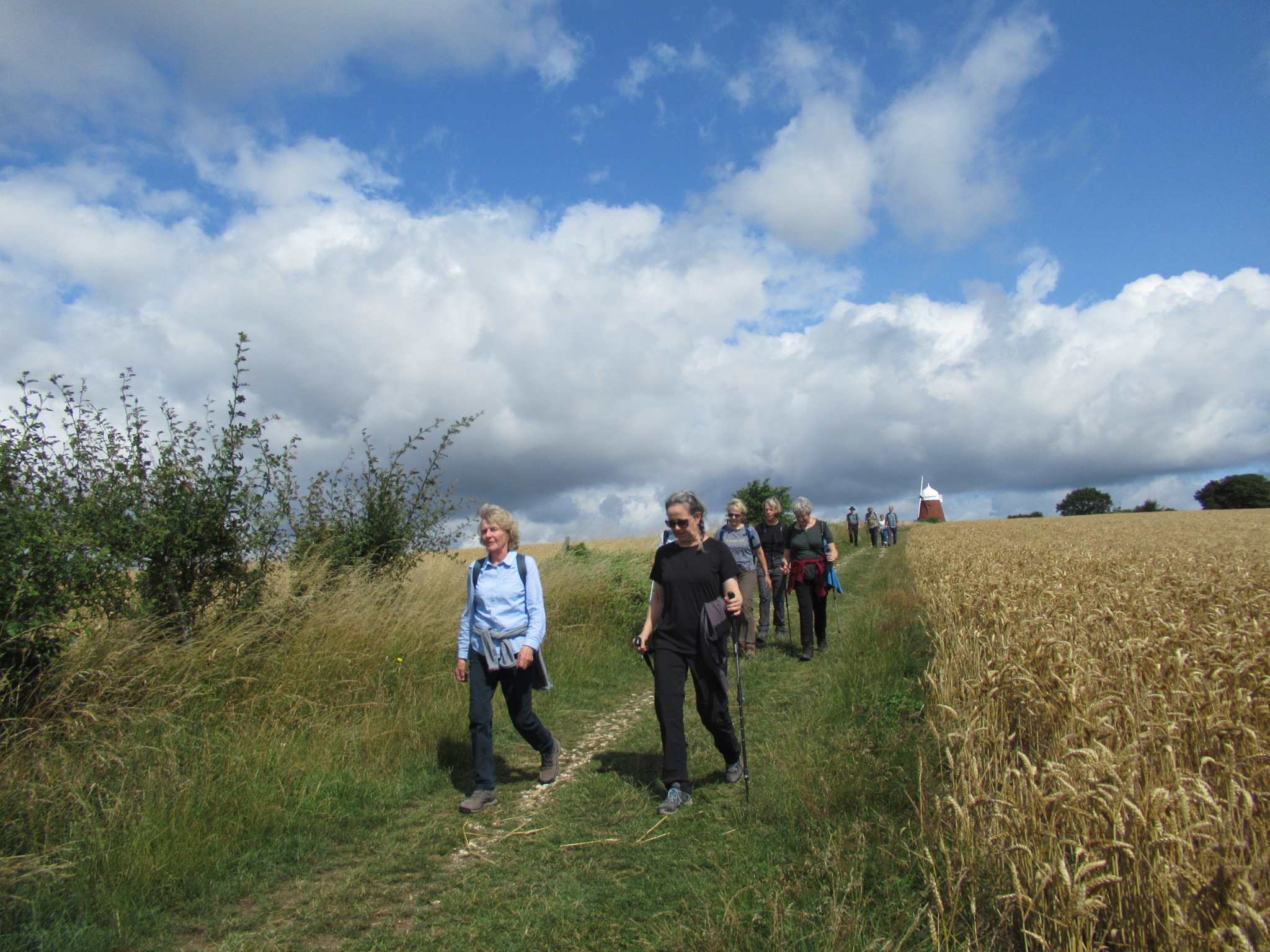
In best Duke of York fashion, having been marched up the hill...
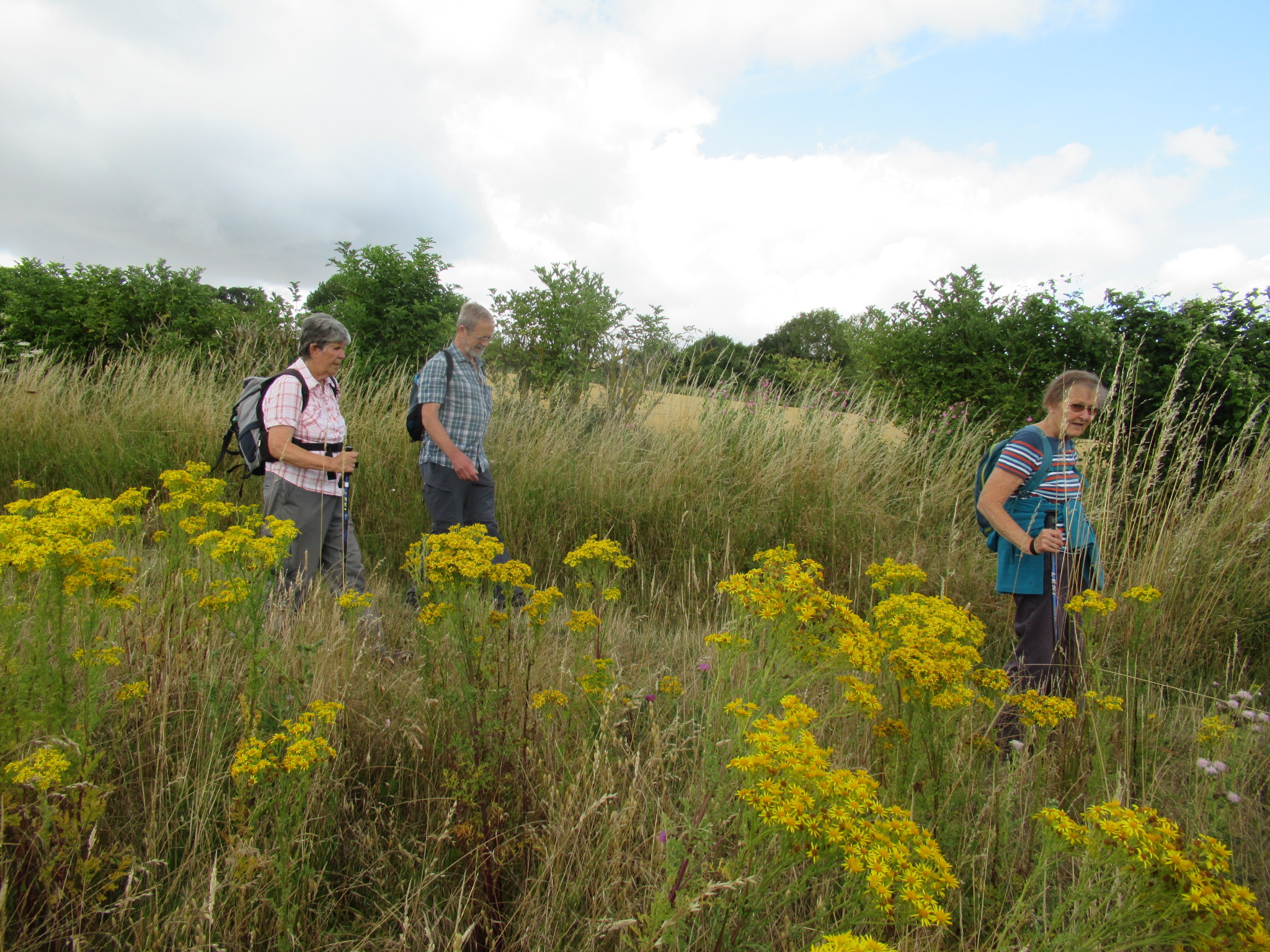
Admiring the wild flowers
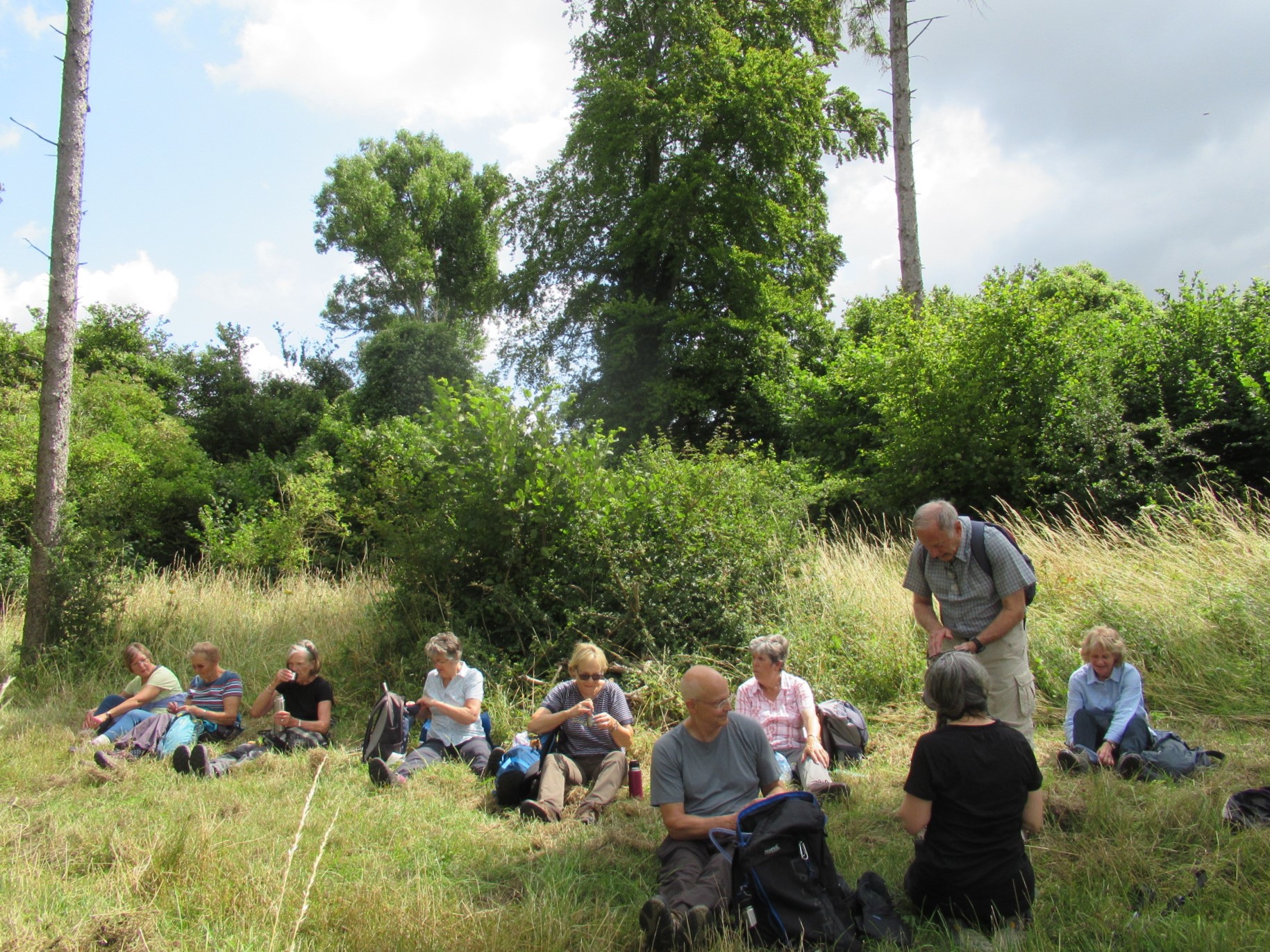
The welcome break, venue selected democratically
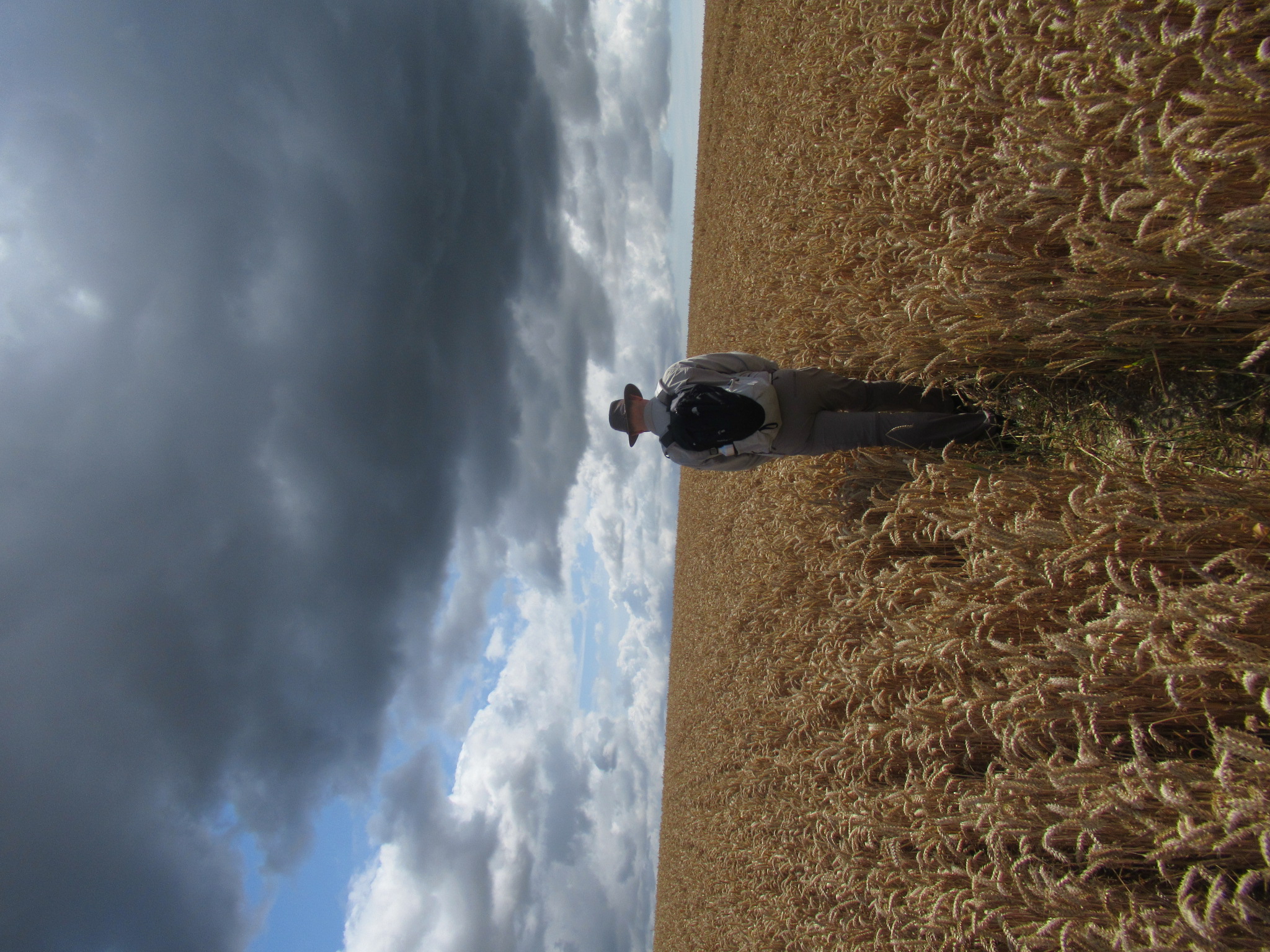
'Billy no mates' leading the walk
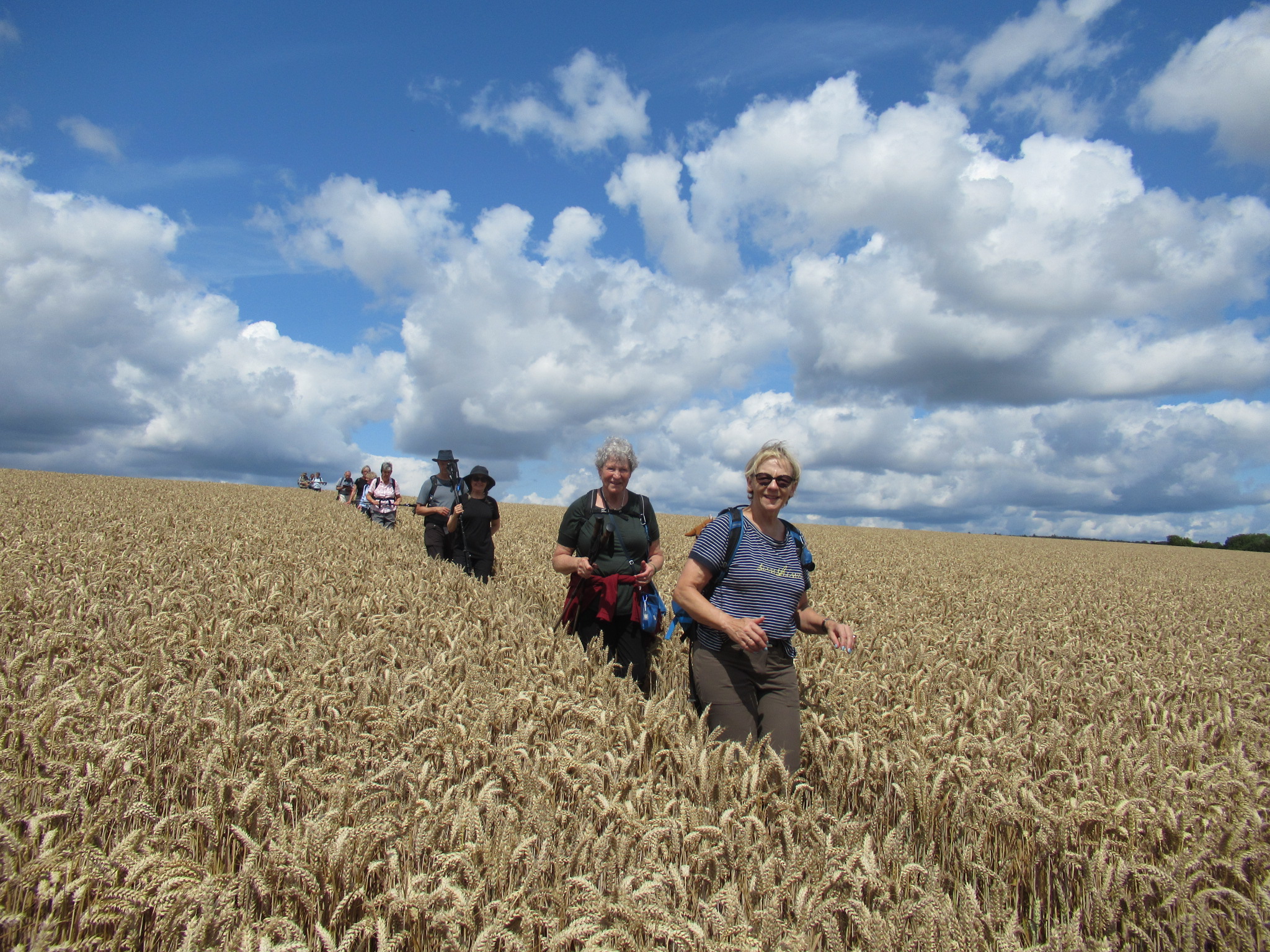
Single file in the wheat
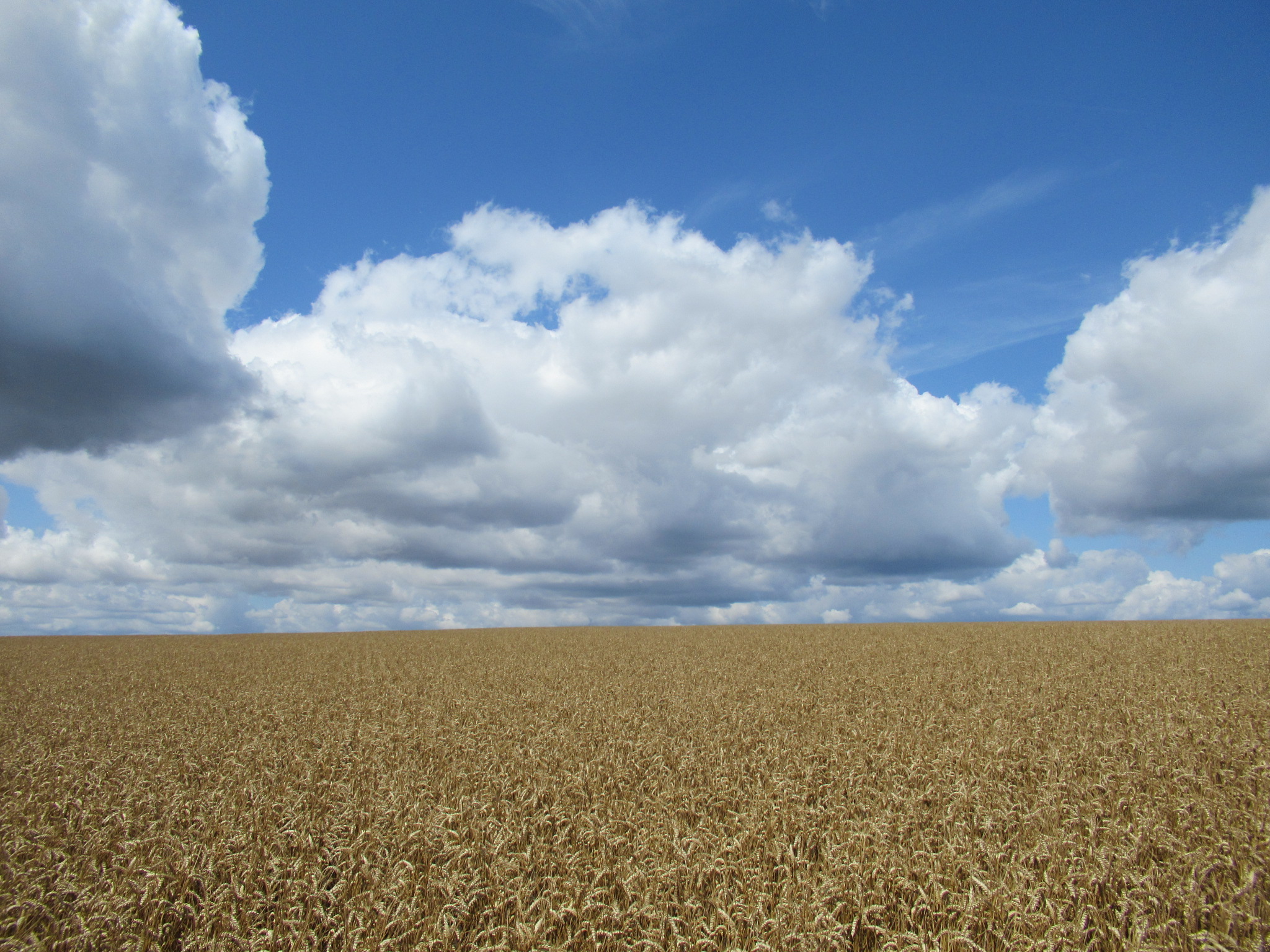
Views like this are why we walk...
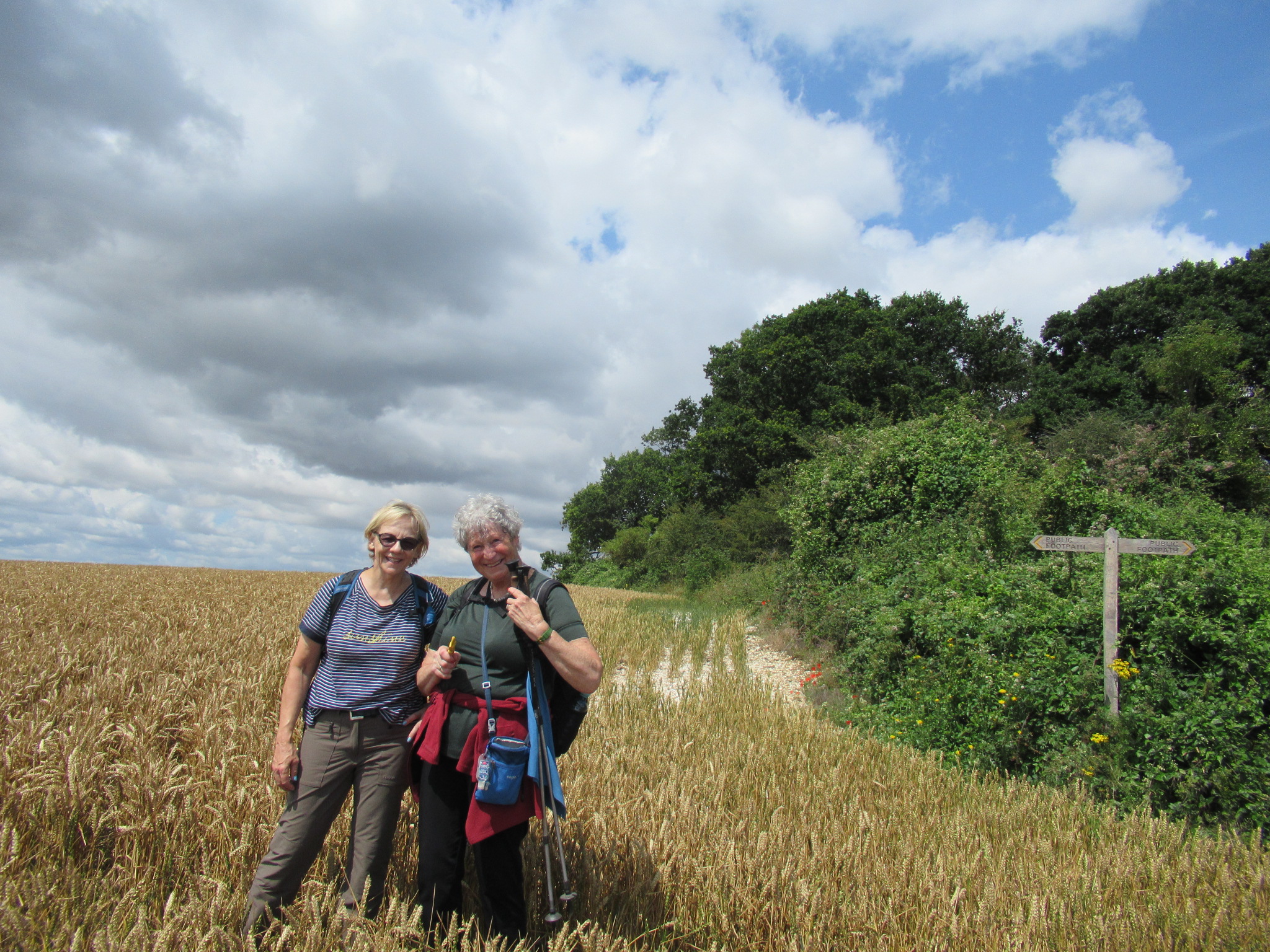
...and with good friends
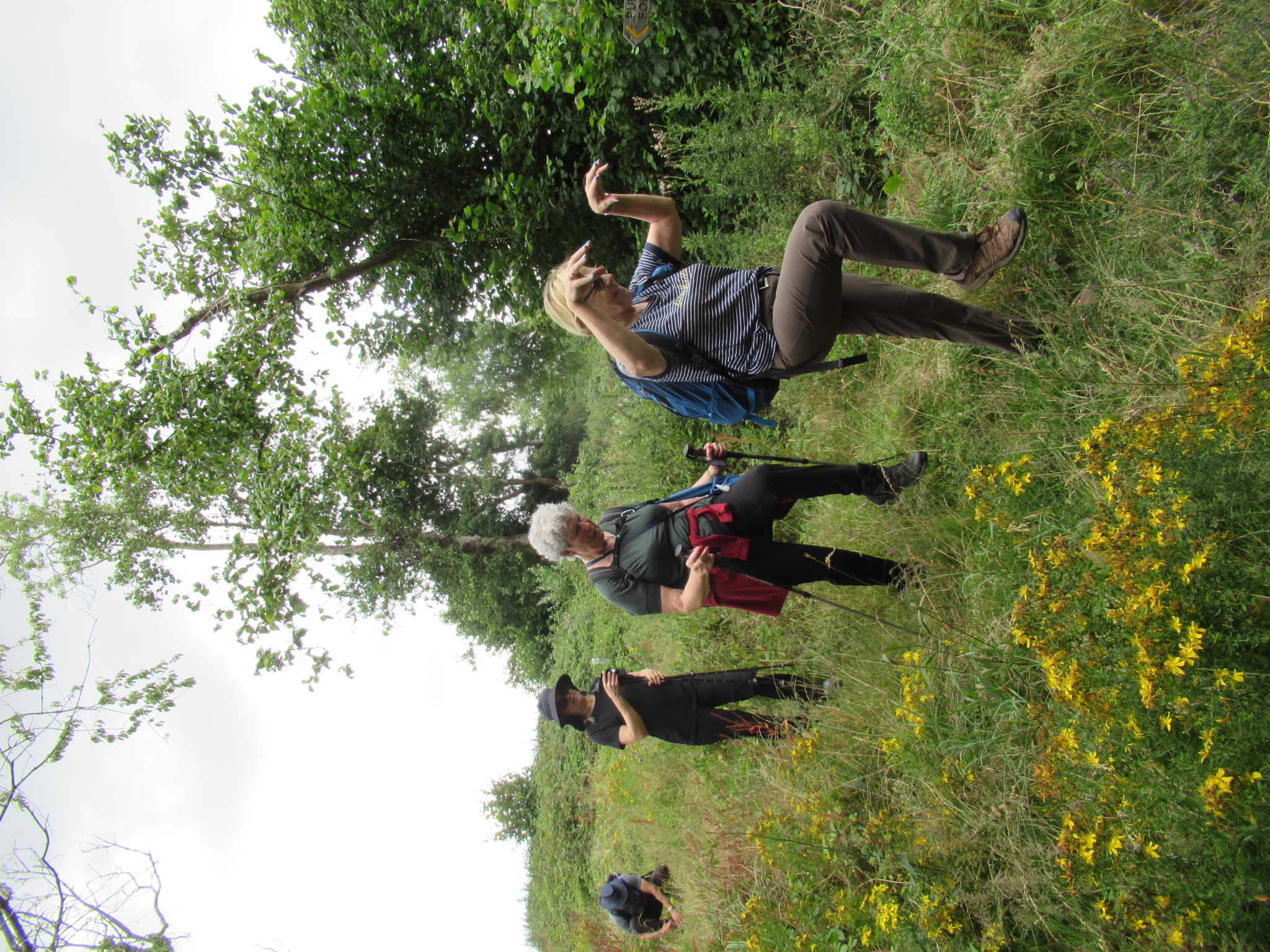
Dressage or horsing around?
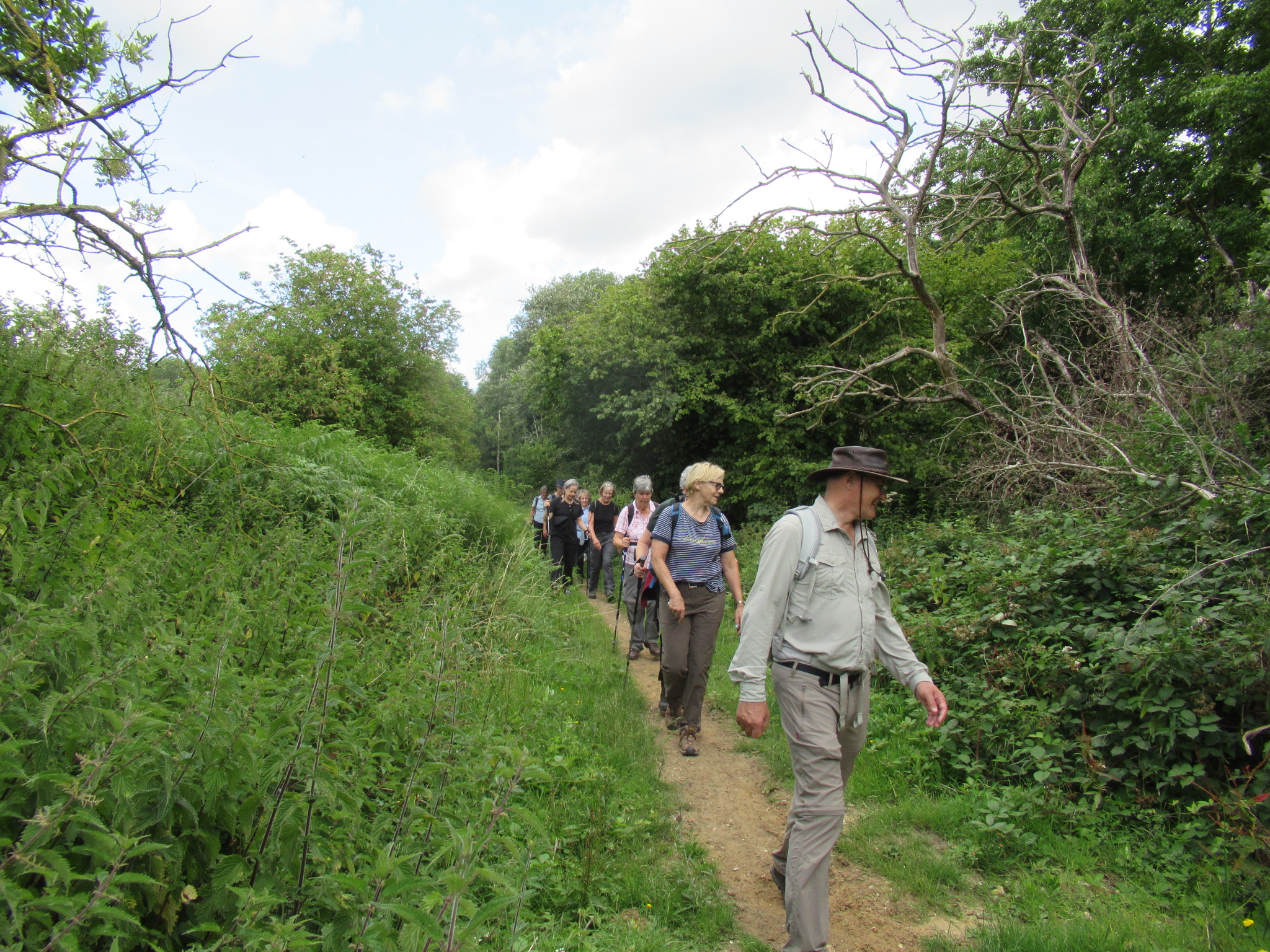
Eyes left
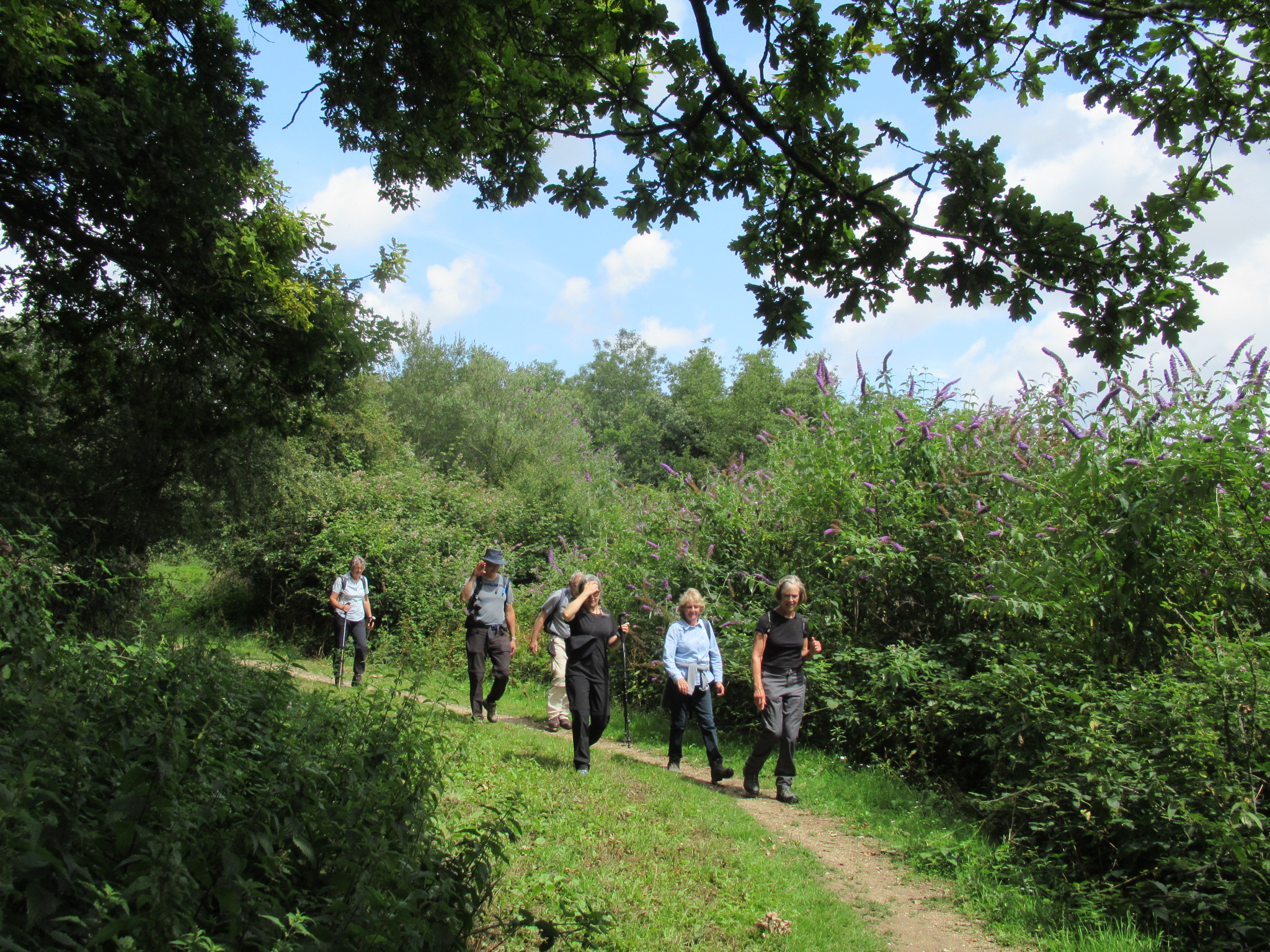
In the light, heading for the shade
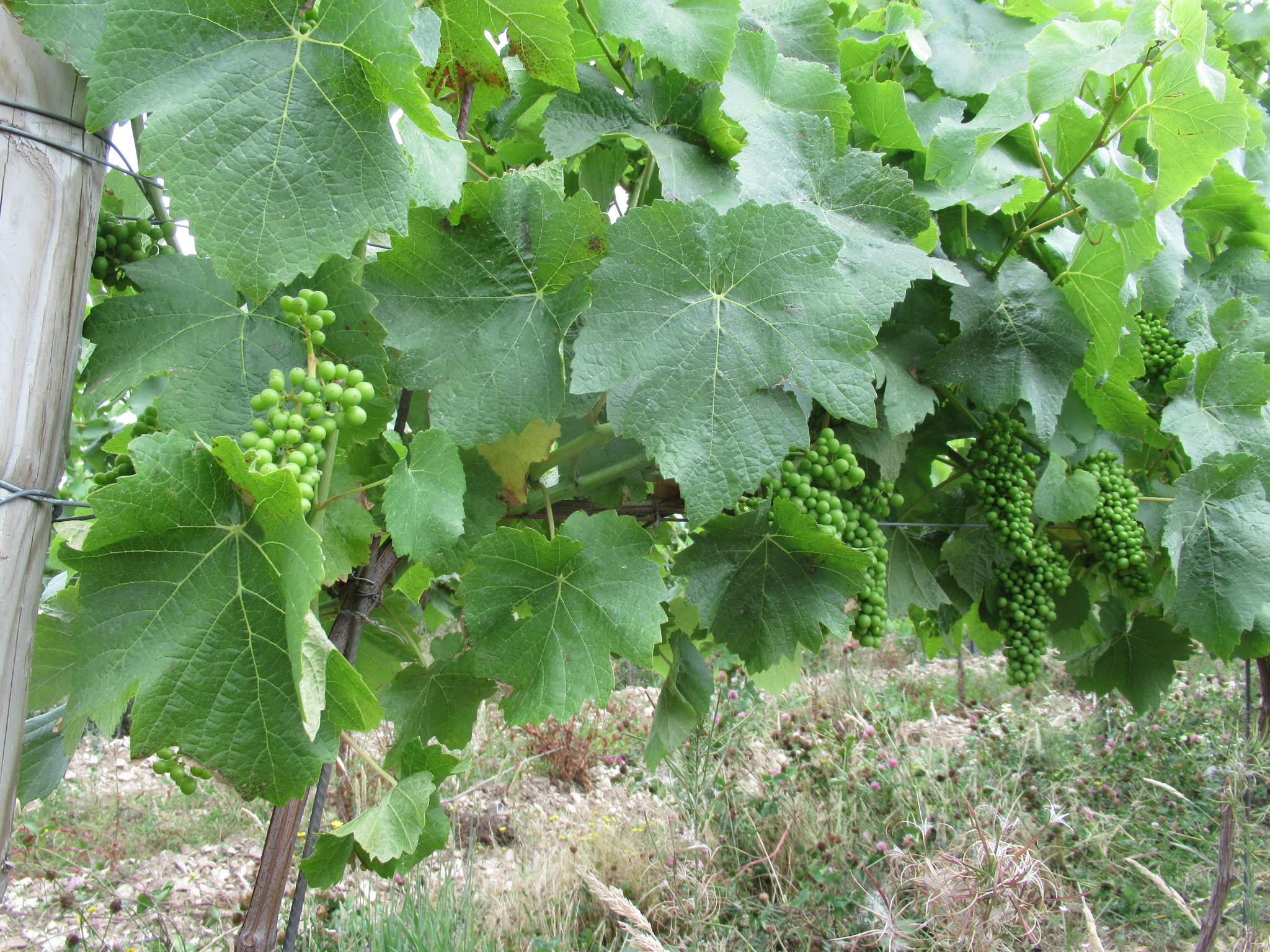
Grapes in the vineyard coming on
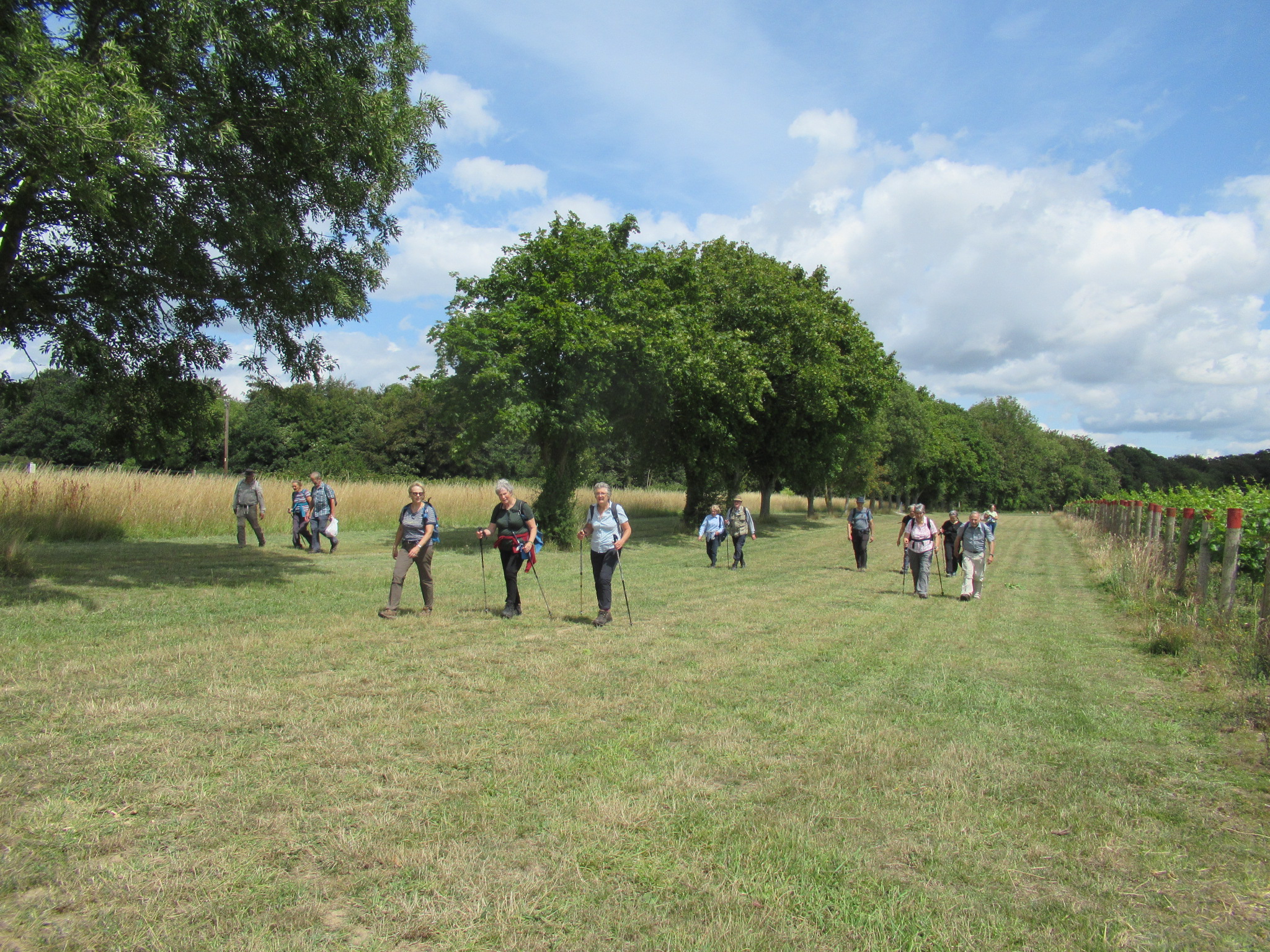
The magnificent 15
.png)
About 5.7 miles, incidentally about 2 of those miles were on the exact route of Stane Street.
Built by the Romans to take traffic from Chichester to London, it only deviates by a maximum of 6 miles from a precisely straight line and then only to use a gap in the North Downs. How could they do that without a sat-nav?!
.
Stoughton walk on 12th July 2023
We gathered at the Hare and Hounds in Stoughton for Pauline's 5.4 mile walk before haring off around the countryside on the road to East Marden then crossing fields and through Inholmes Wood. As we turned off the path we were treated to a display of a variety of butterflies, so we stopped and marvelled. Looking across the valley we could see the Farm we would walk through towards the end of our walk. Passing Wildham Barn we returned to the road we had left, but in the opposite direction to the Lamdown Hill car park. The bridleway lead us uphill at the edge of the woods towards Chilgrove where we stopped for coffee at a convenient felled tree trunk. A birthday celebration box of chocolates was passed around several times before a full rendition of Happy Birthday was sung. We turned south on another bridleway and passed Blackbush House. The property was built in the 18th Century by the Sir James Peachey, who moved in Royal circles. He was Groom of the Bedchamber in 1751 of George II in 1751 and built it as a smallpox isolation hospital. A local Chichester surgeon, Mr. Newland, was also at this time inoculating some of his patients at St. James Hospital, the former leper house. It was he who carried out the inoculations at Blackbush House. A rare photo of the house, taken in the 1950s, shows that it had no windows on the side facing towards West Dean House, two miles to the east. This was to prevent any possibility of infection escaping from a window and being blown to West Dean by the prevailing wind. As we broke out into open countryside, some ragwort was found being denuded of leaves by black and yellow striped caterpillars of the Cinnabar Moth. They had not eaten all the leaves so we missed their demonstration of cannibalistic tendencies. A path to the right put us on the Monarch’s Way which is a 625-mile (1,006 km) long-distance footpath in England that approximates the escape route taken by King Charles II in 1651 after being defeated in the Battle of Worcester to escape capture and made his way to France. This path led us back to the road to Stoughton and a communal lunch at The Hare and Hounds.
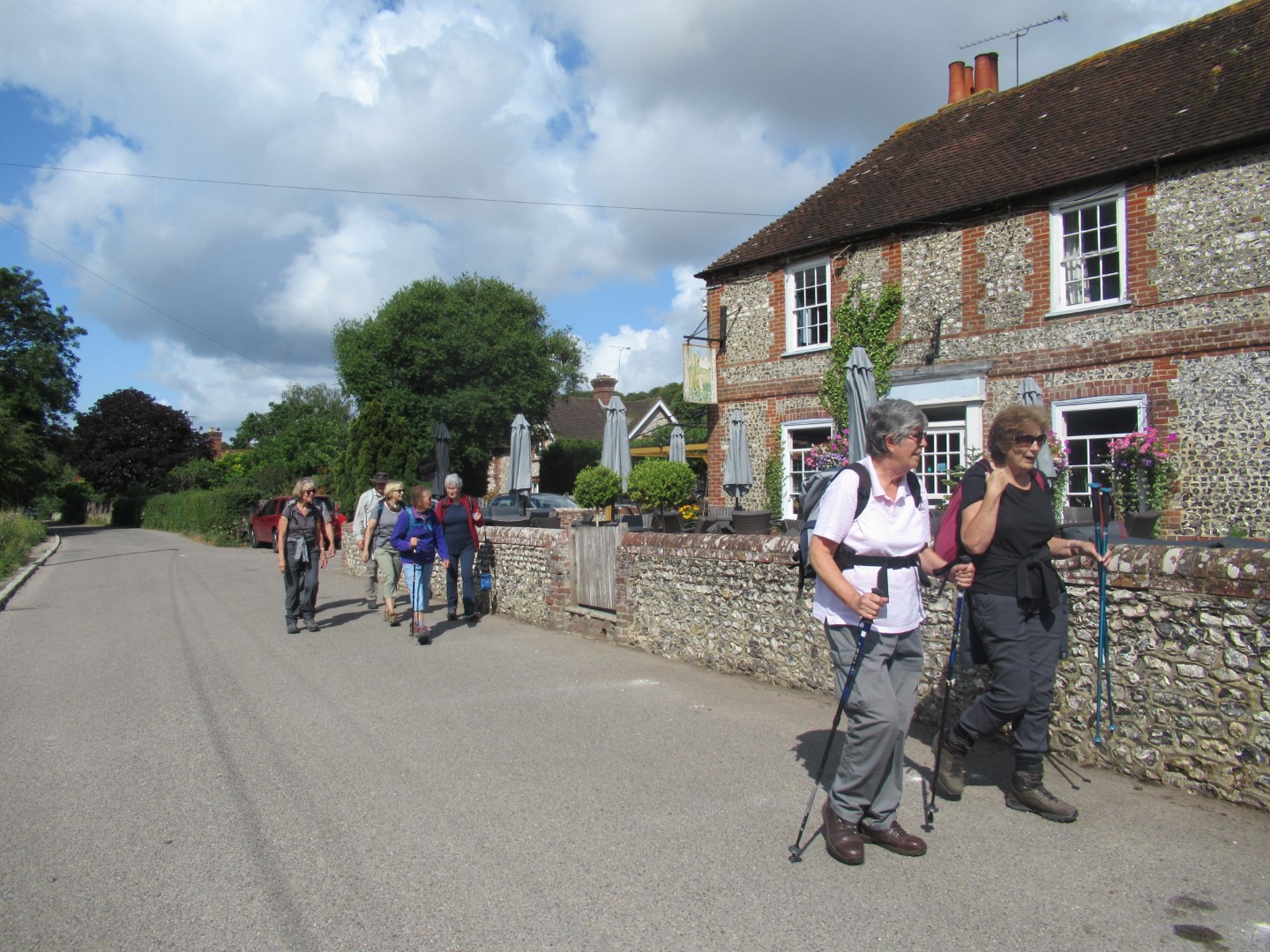
Hares and Tortoises at the start
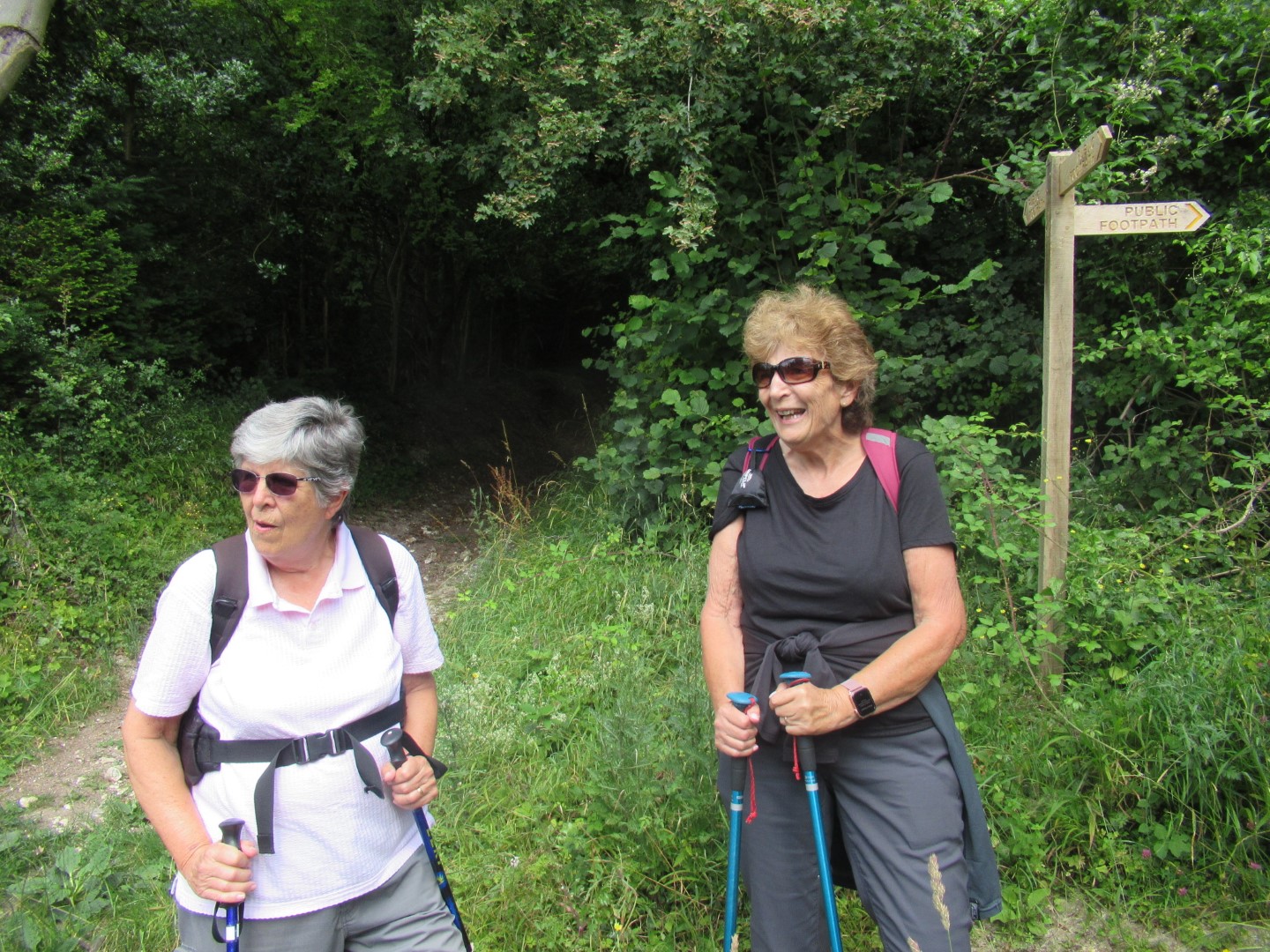
Come you lot, you’re going to miss the butterflies
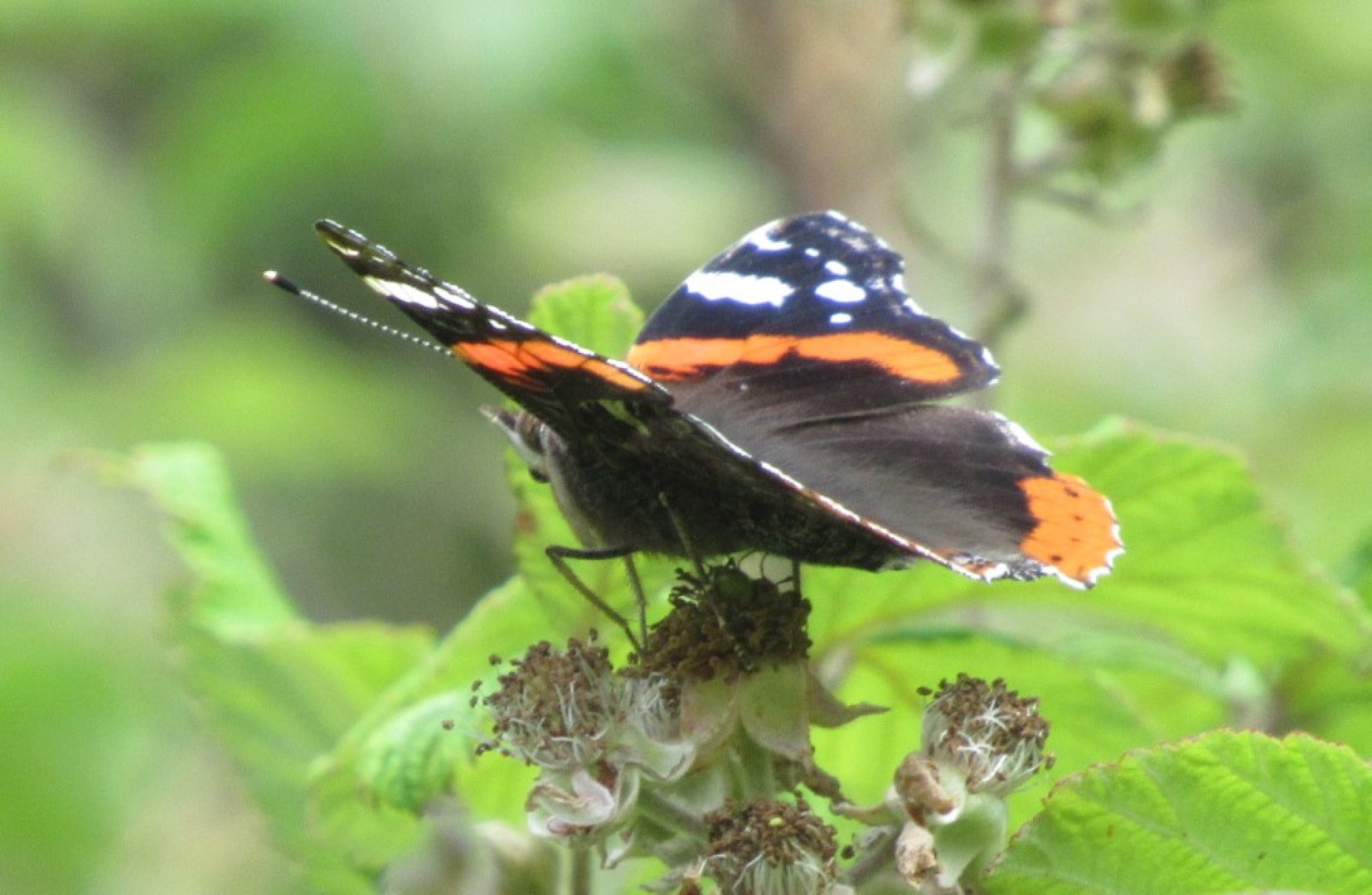 .
.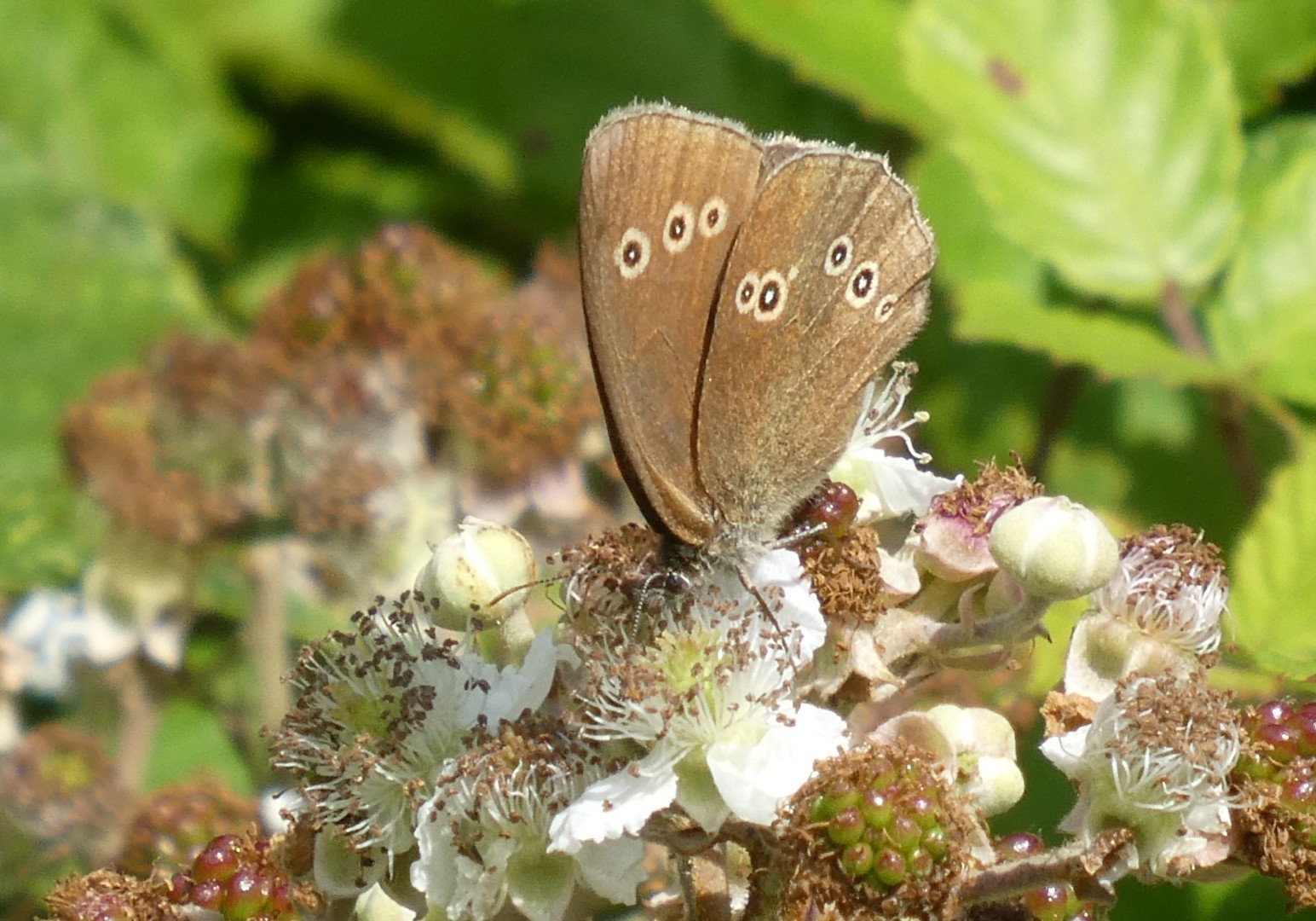 .
.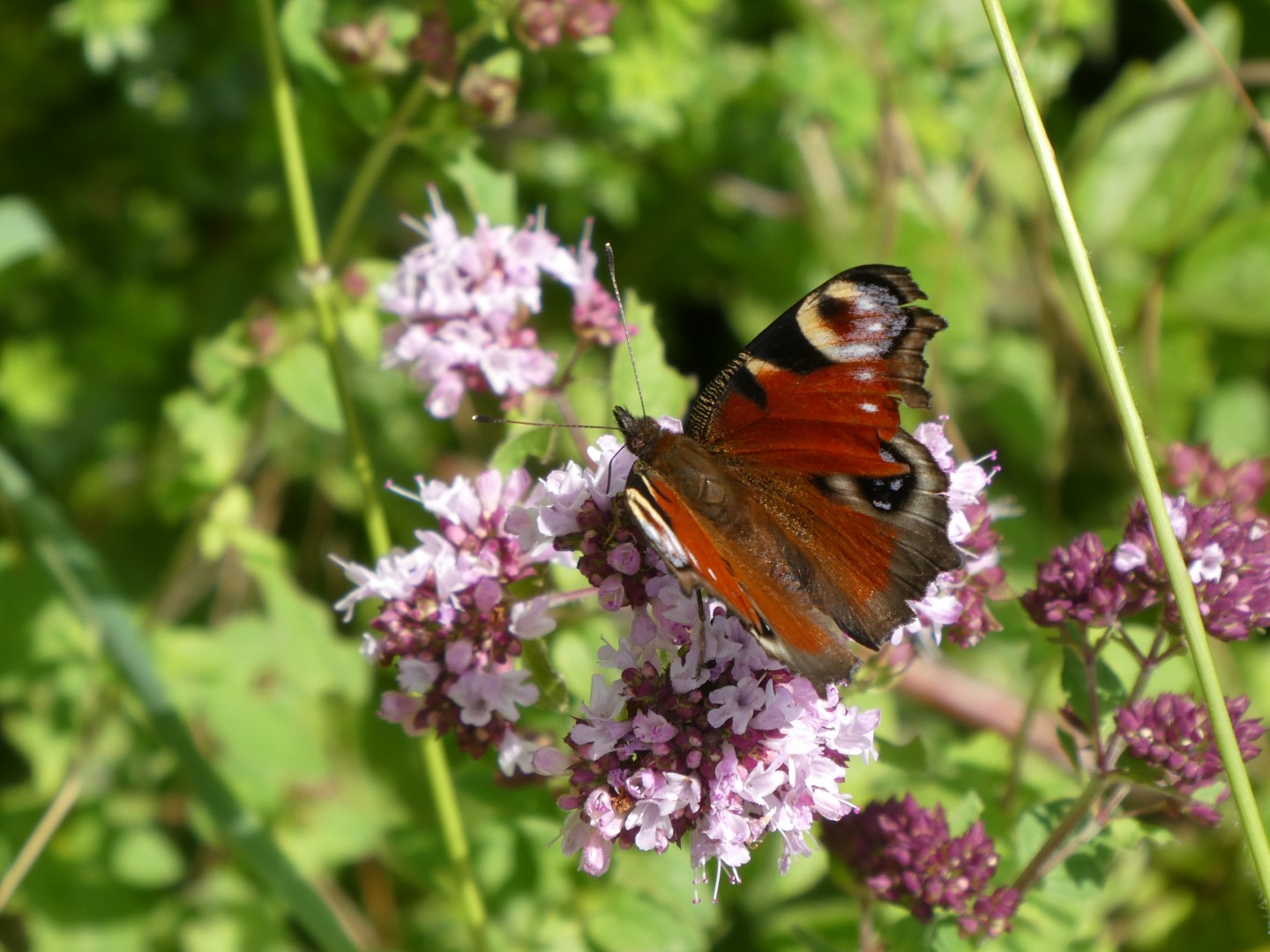
Here we are
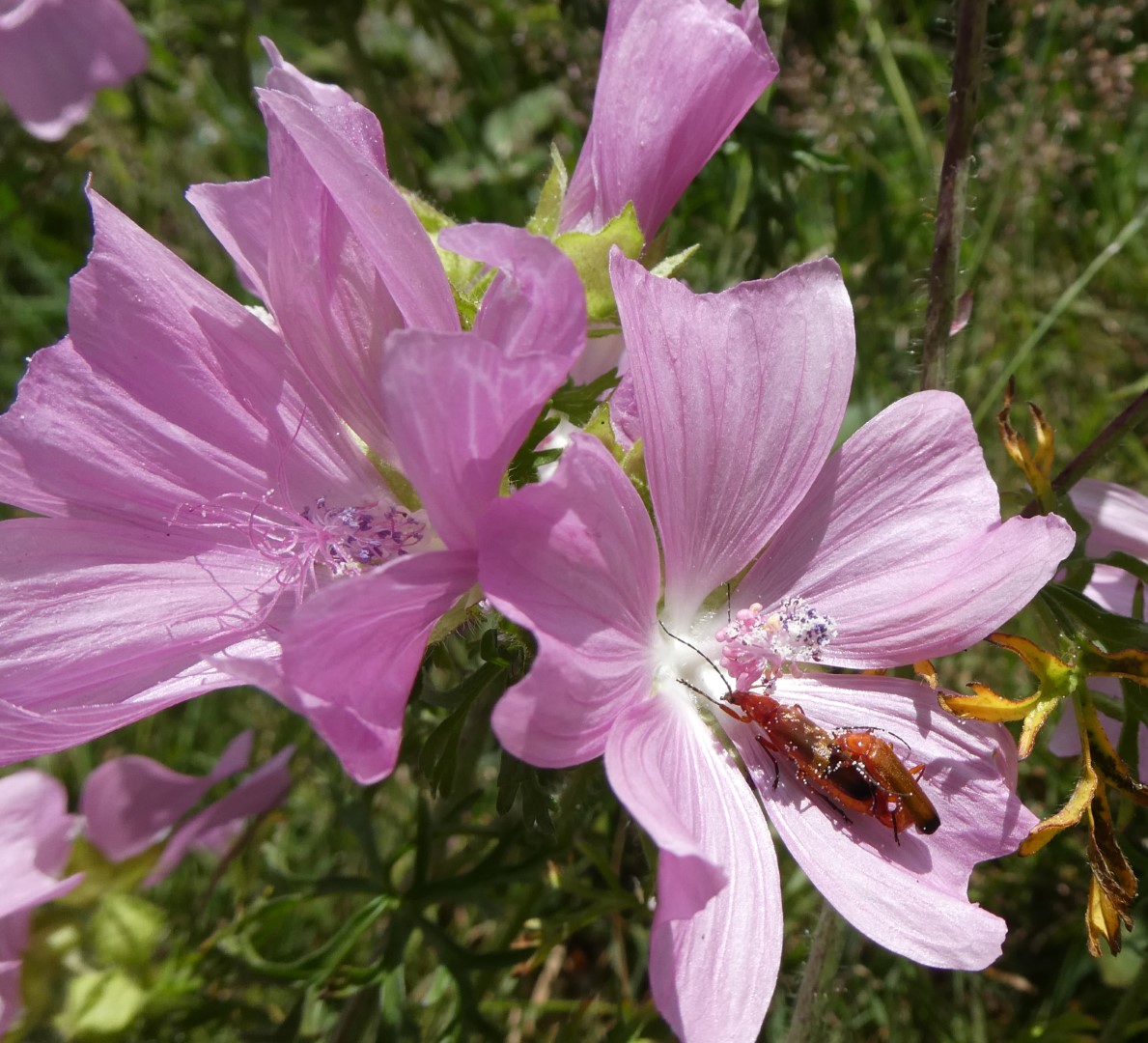
and insects pollinating....

View looking over to Stoughton Down
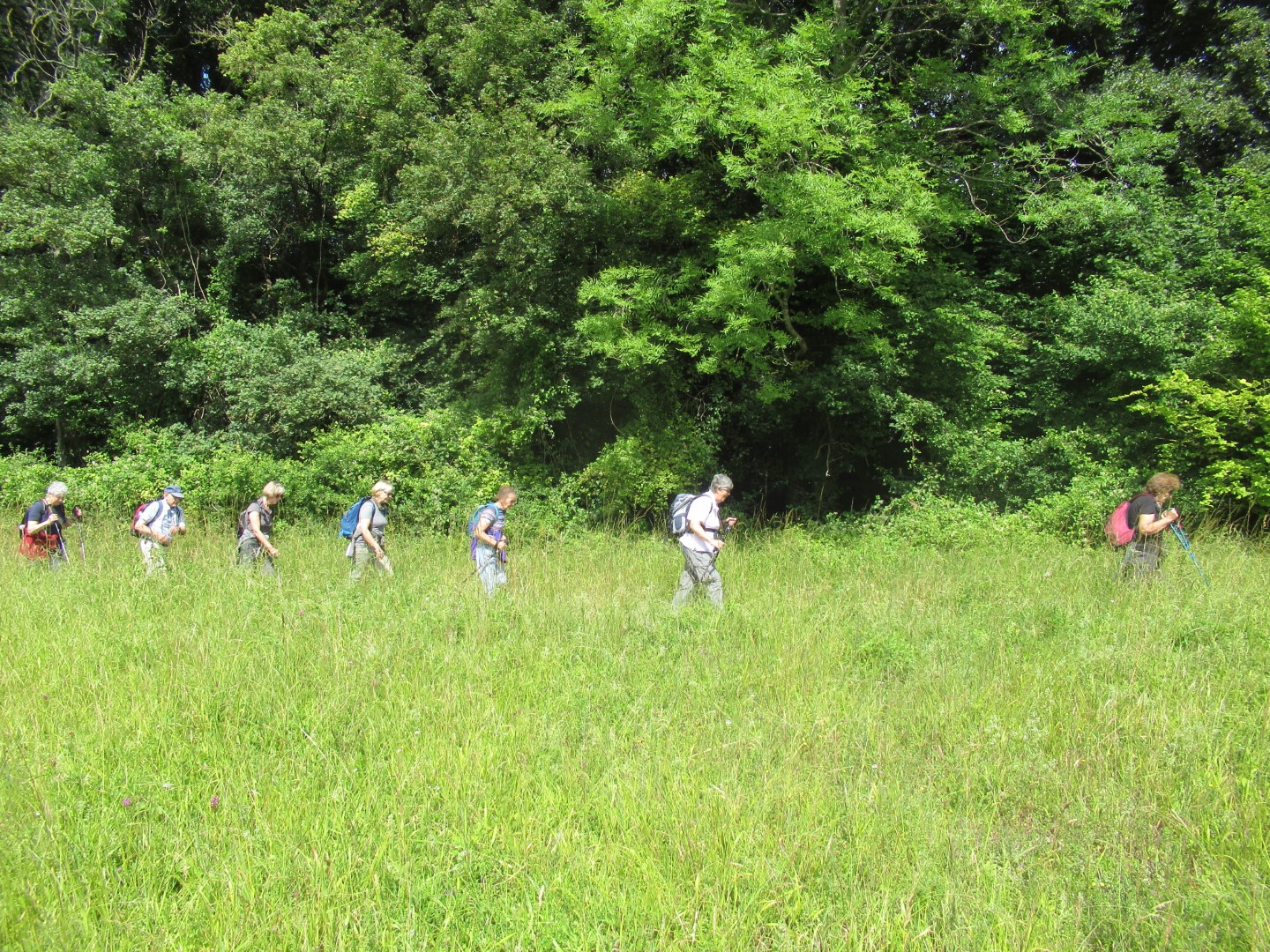
The butterfly watchers march on
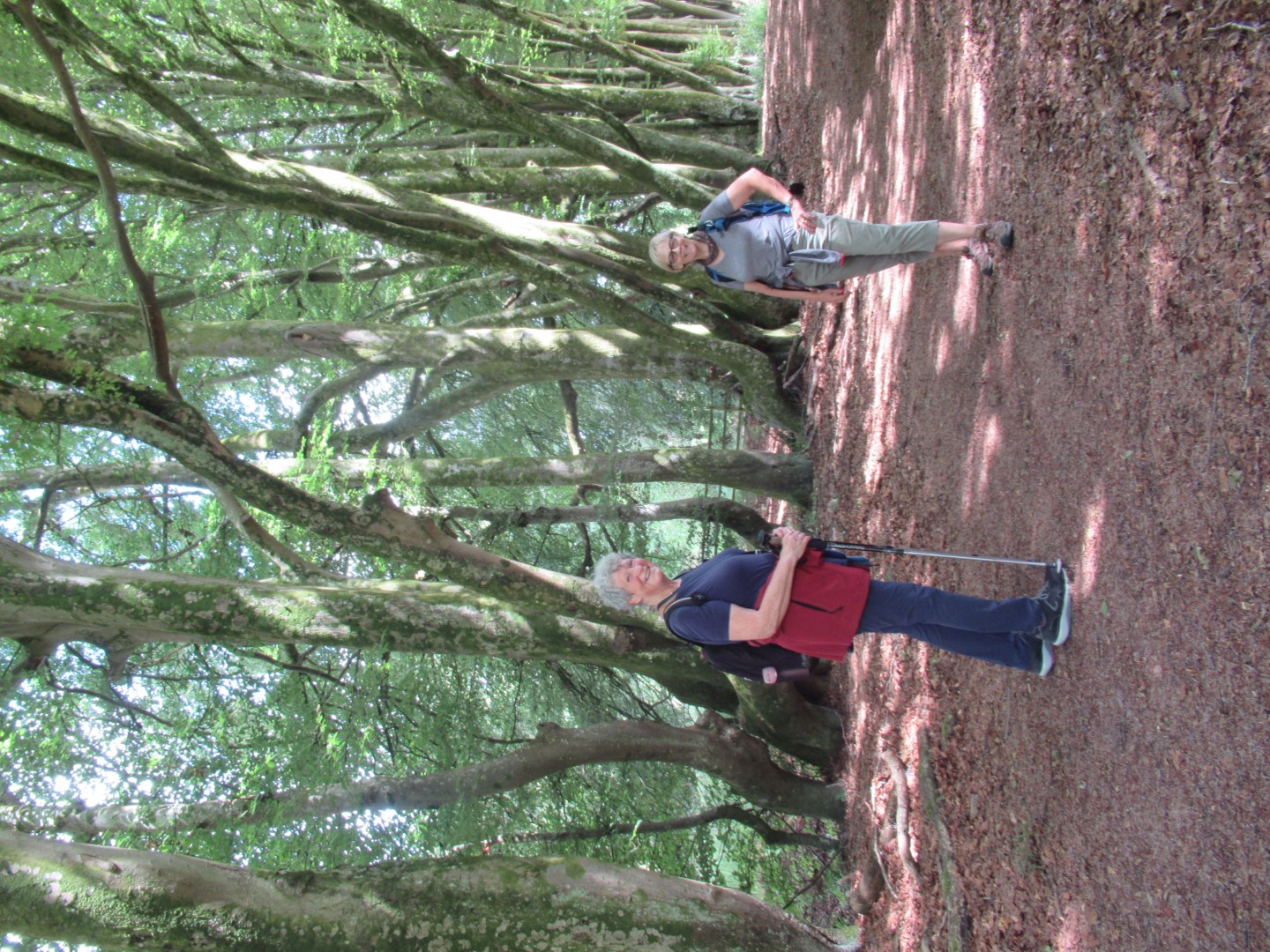
Admiring the trees by Lambdown Hill
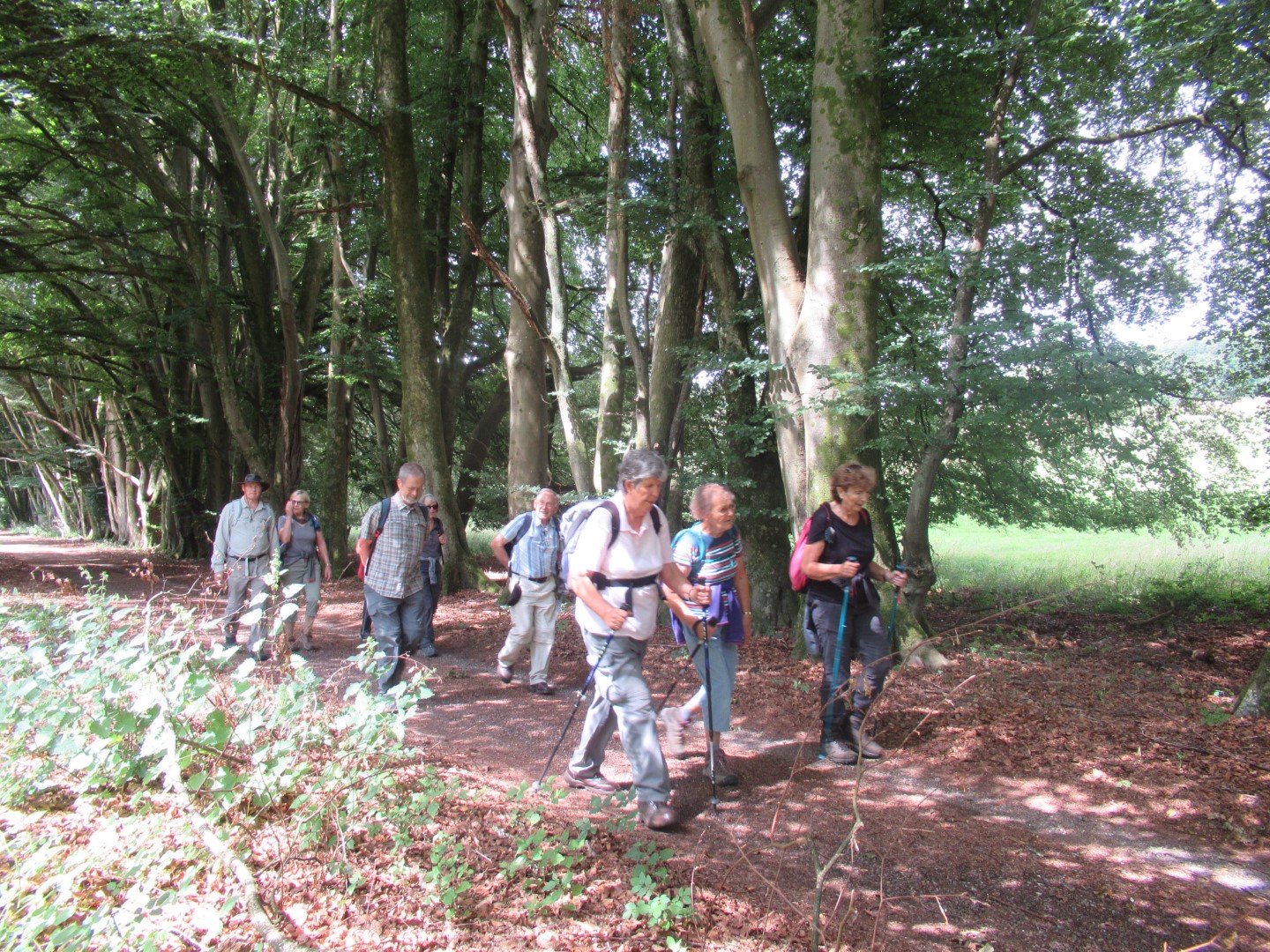
Bunching up as the coffee break approaches
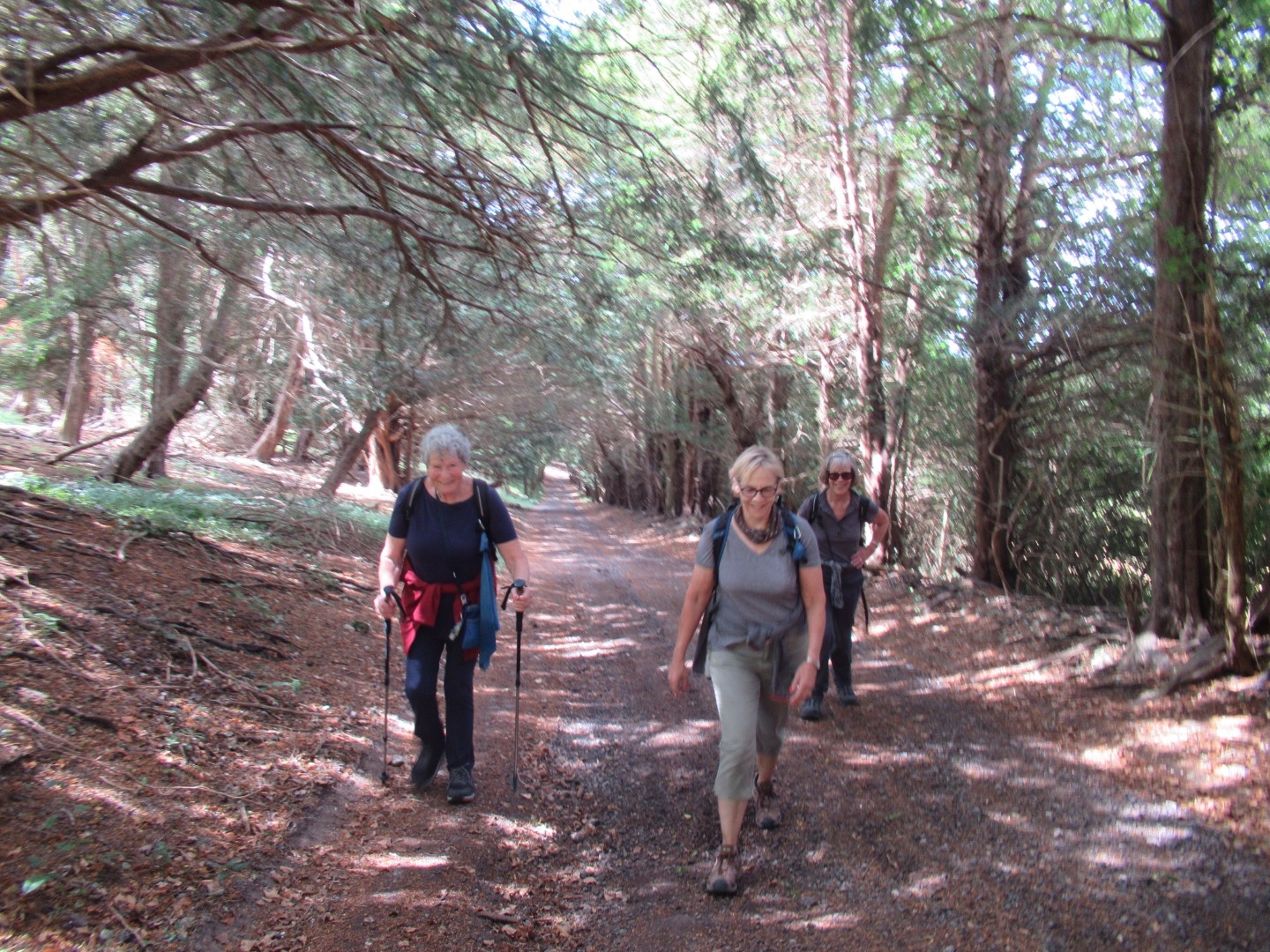
This hill is longer than we were led to believe
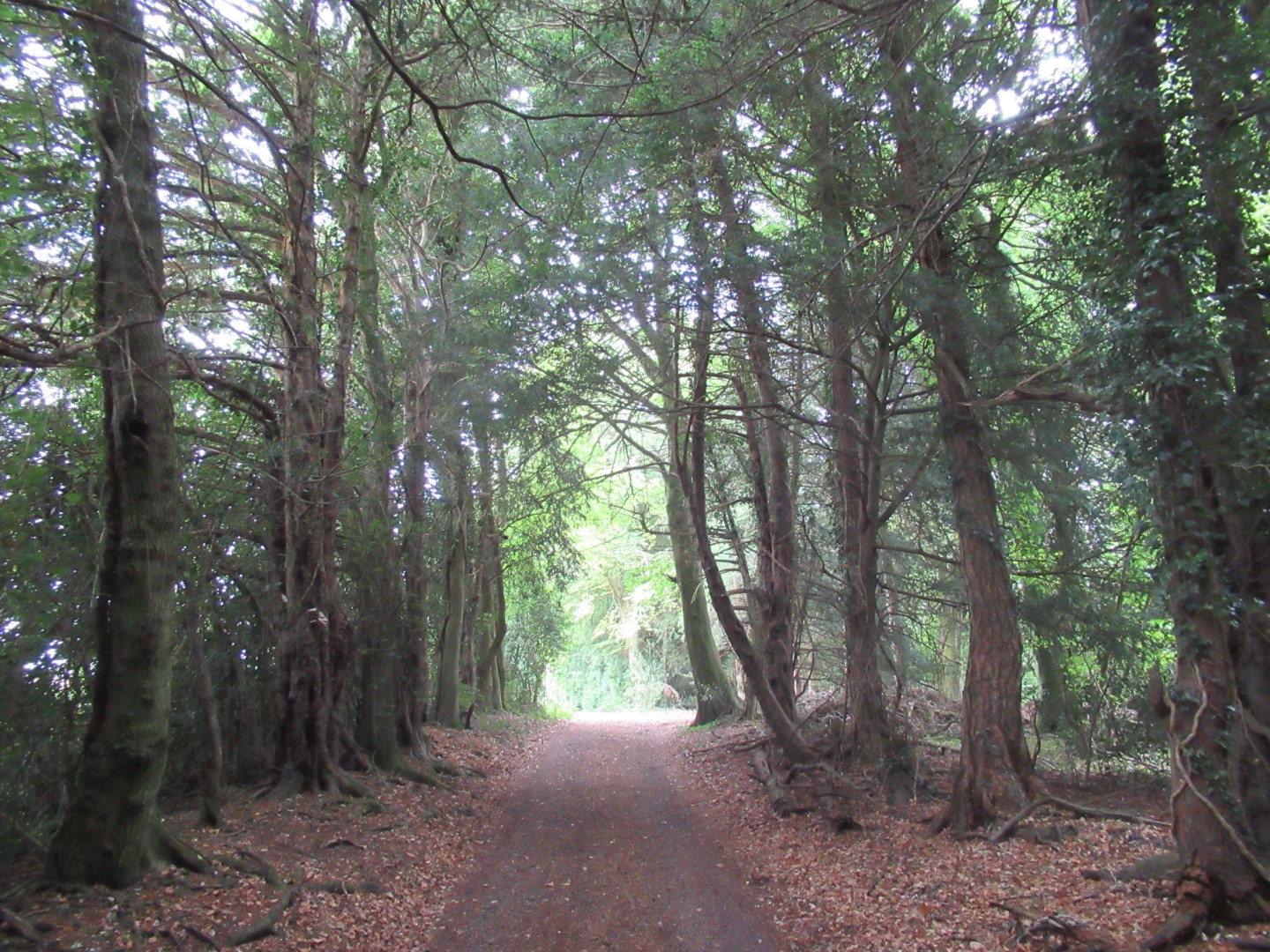
Light at the end of the tunnel
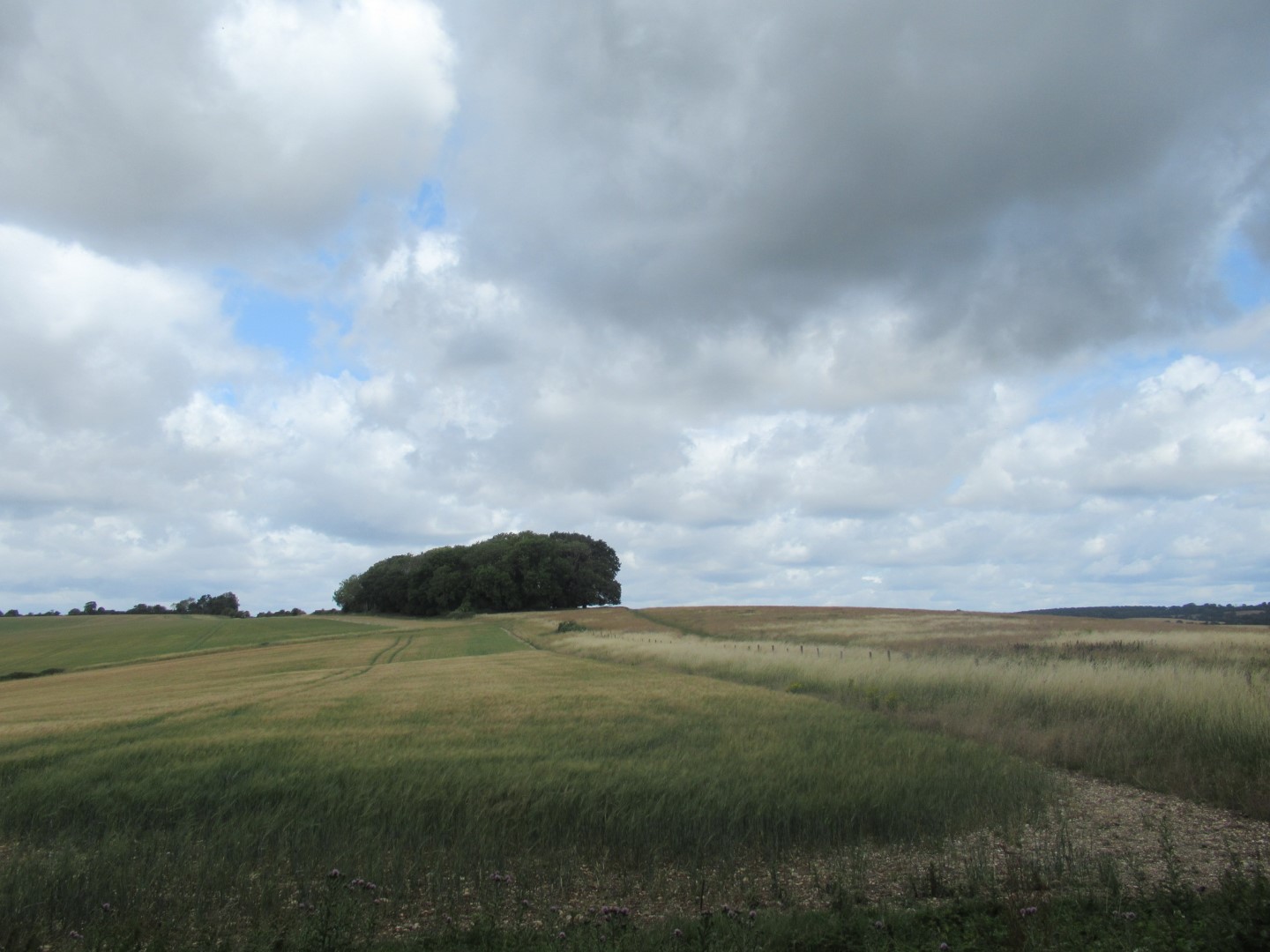
Storms clouds threaten
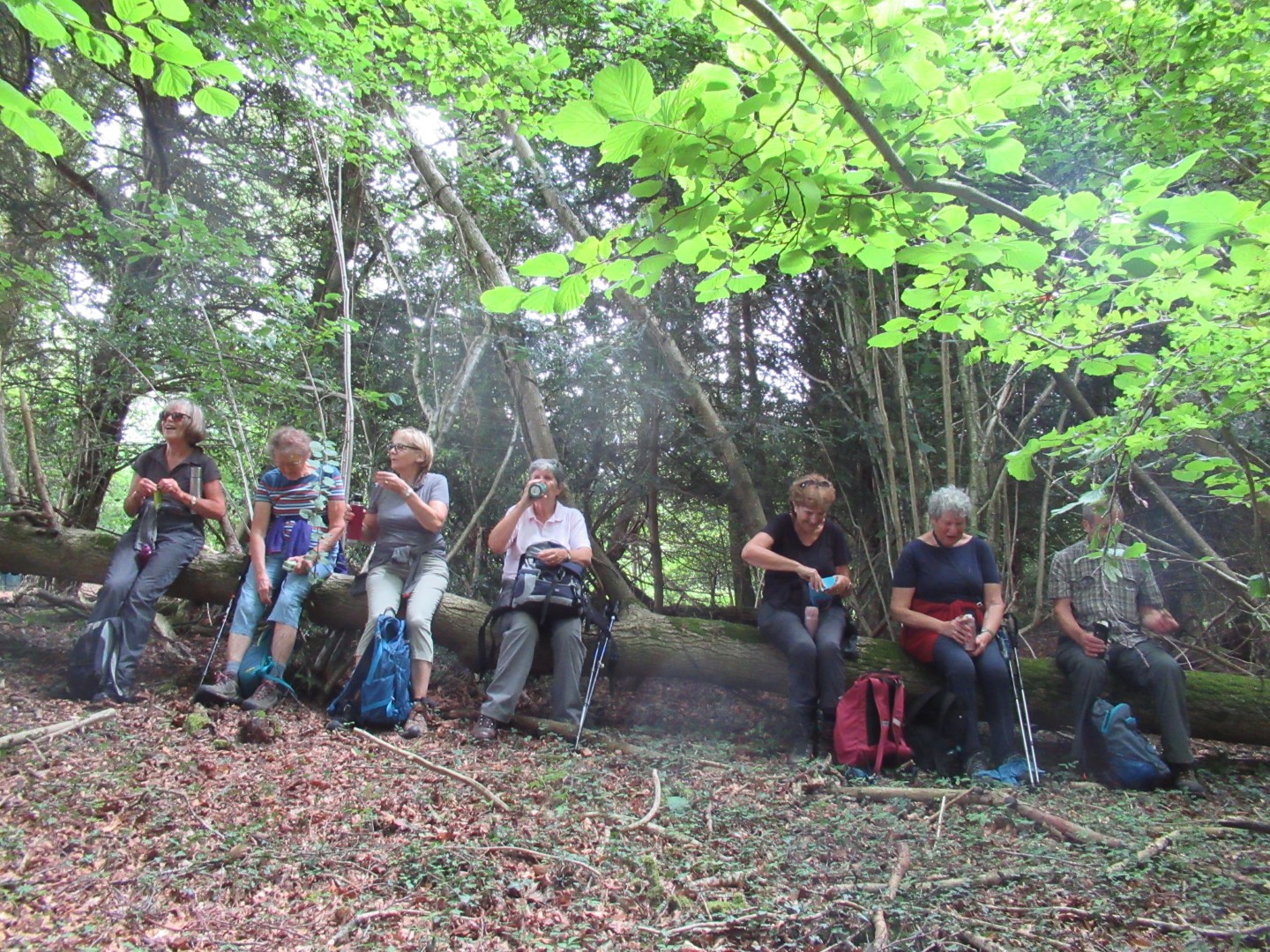
Coffee stop and time to break out the birthday chocolates
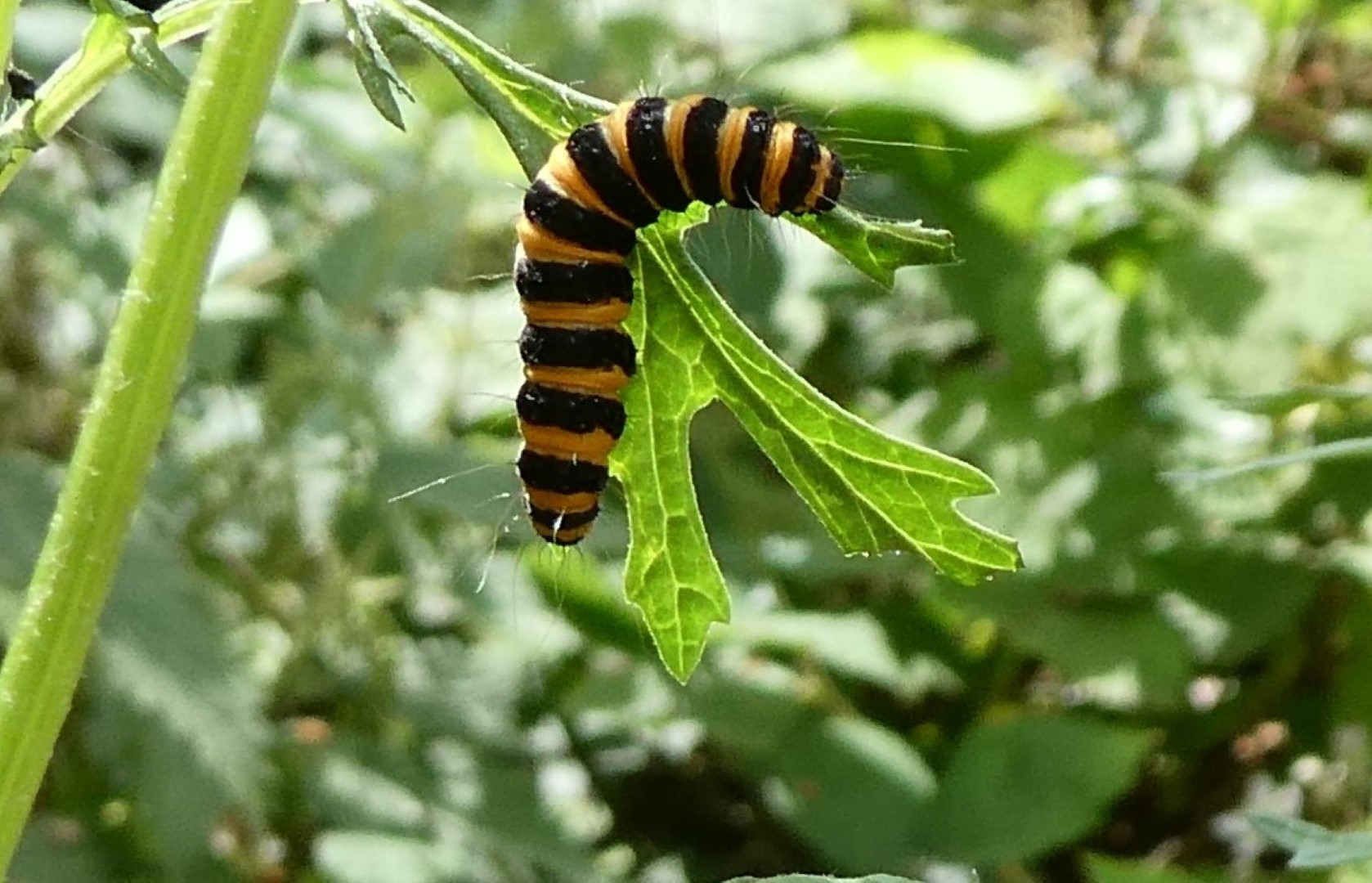 .
.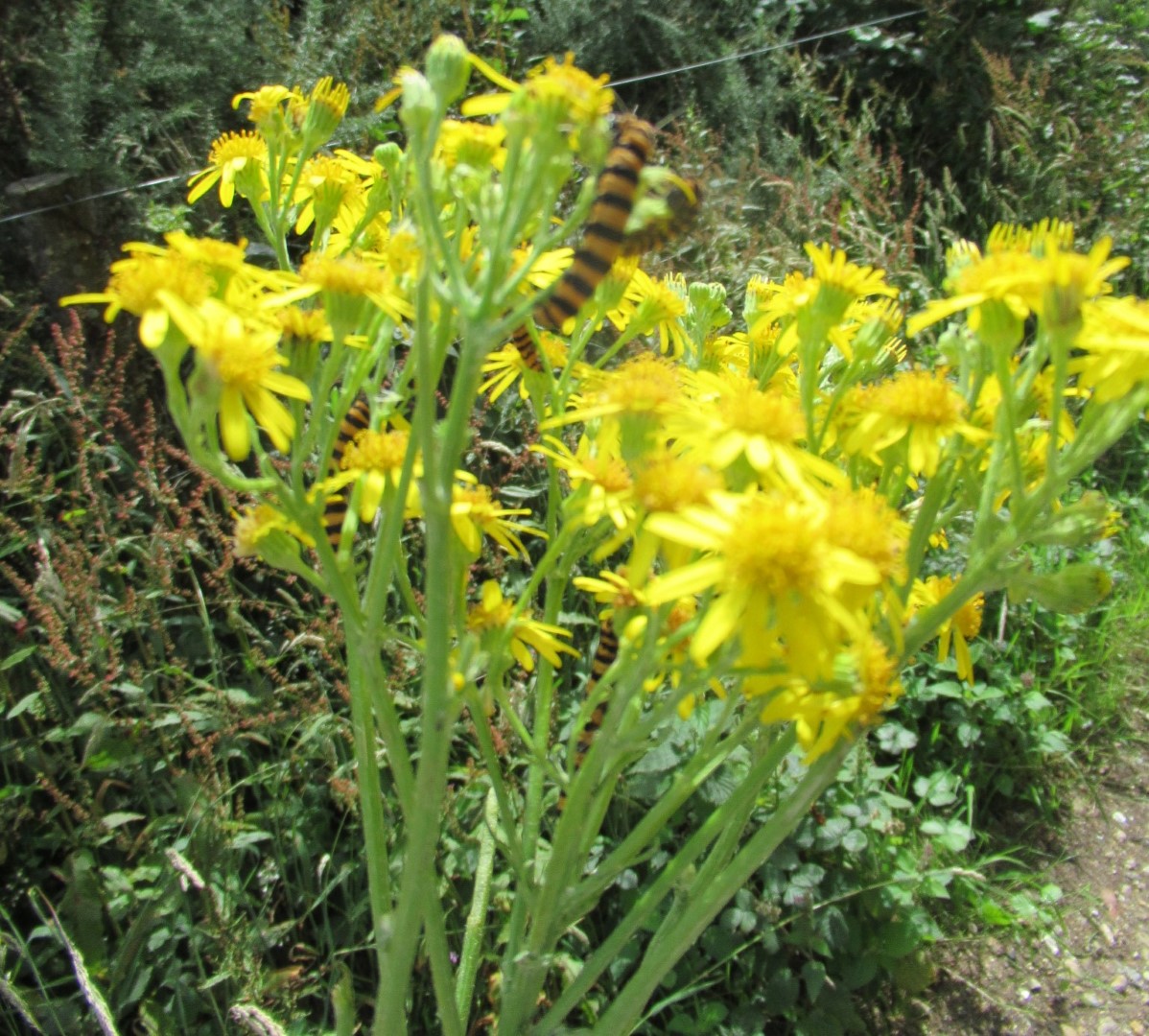
Cinnabar Moth enjoying lunch
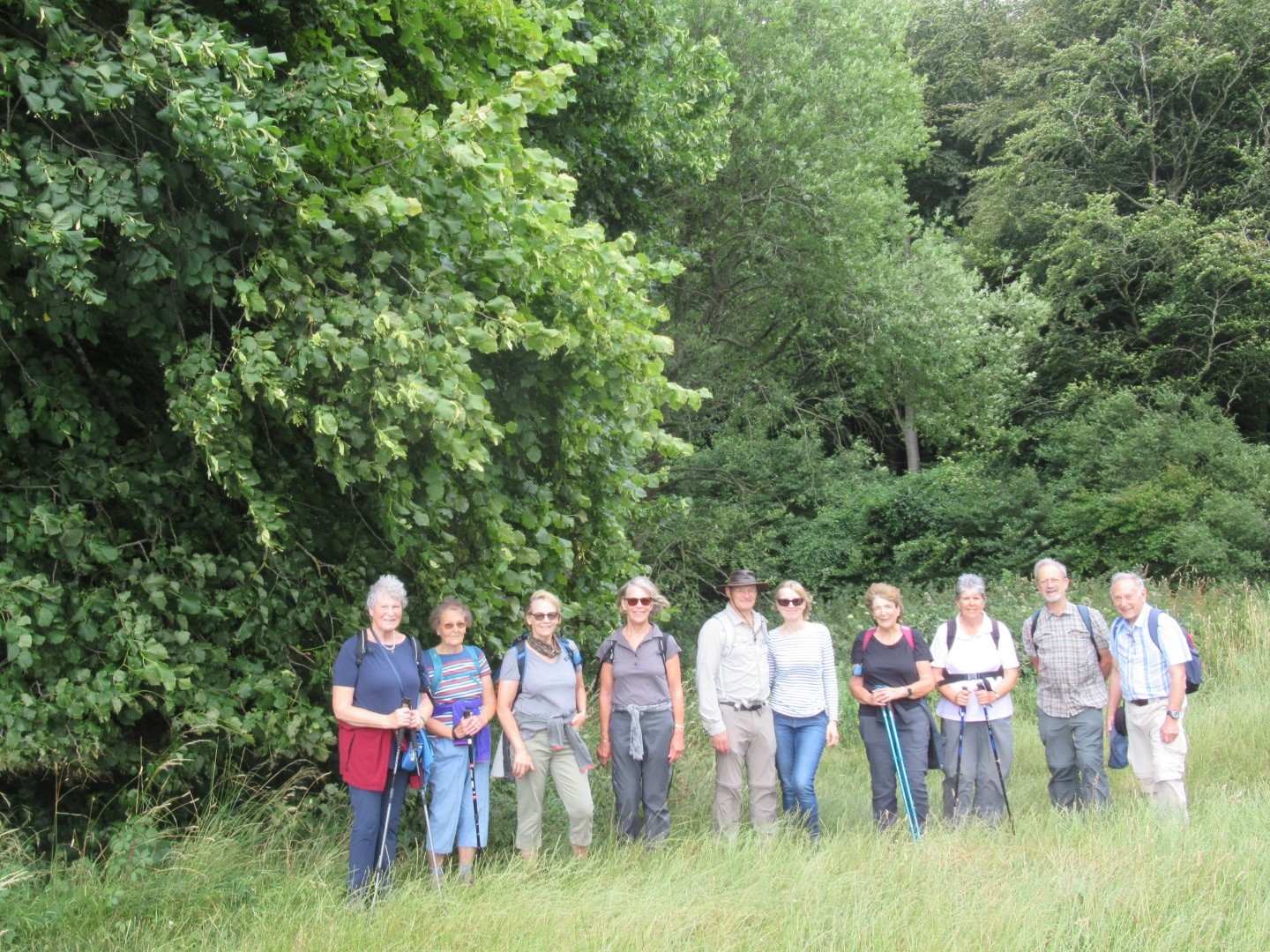
Meet the team
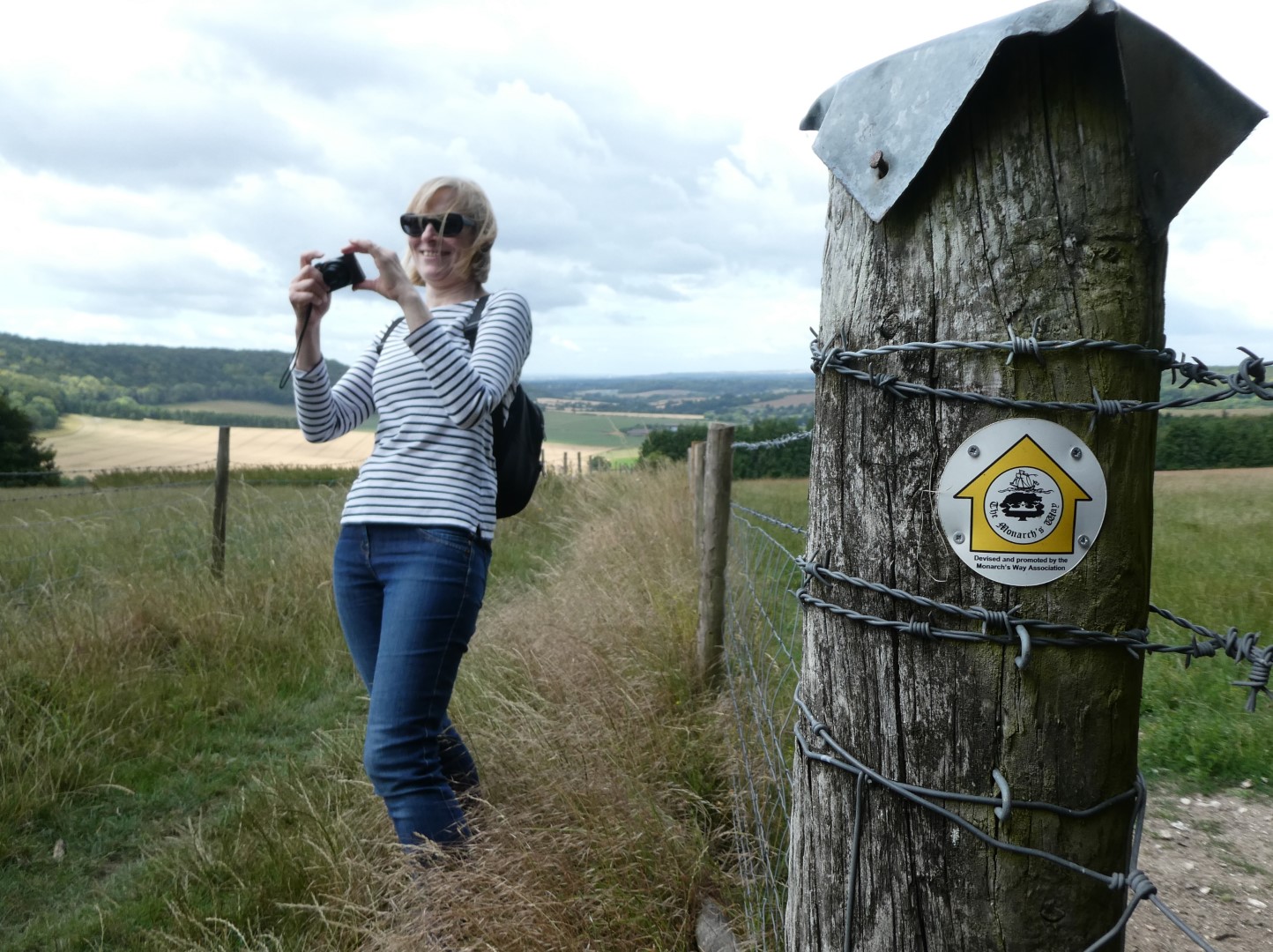
Meet the photographer!
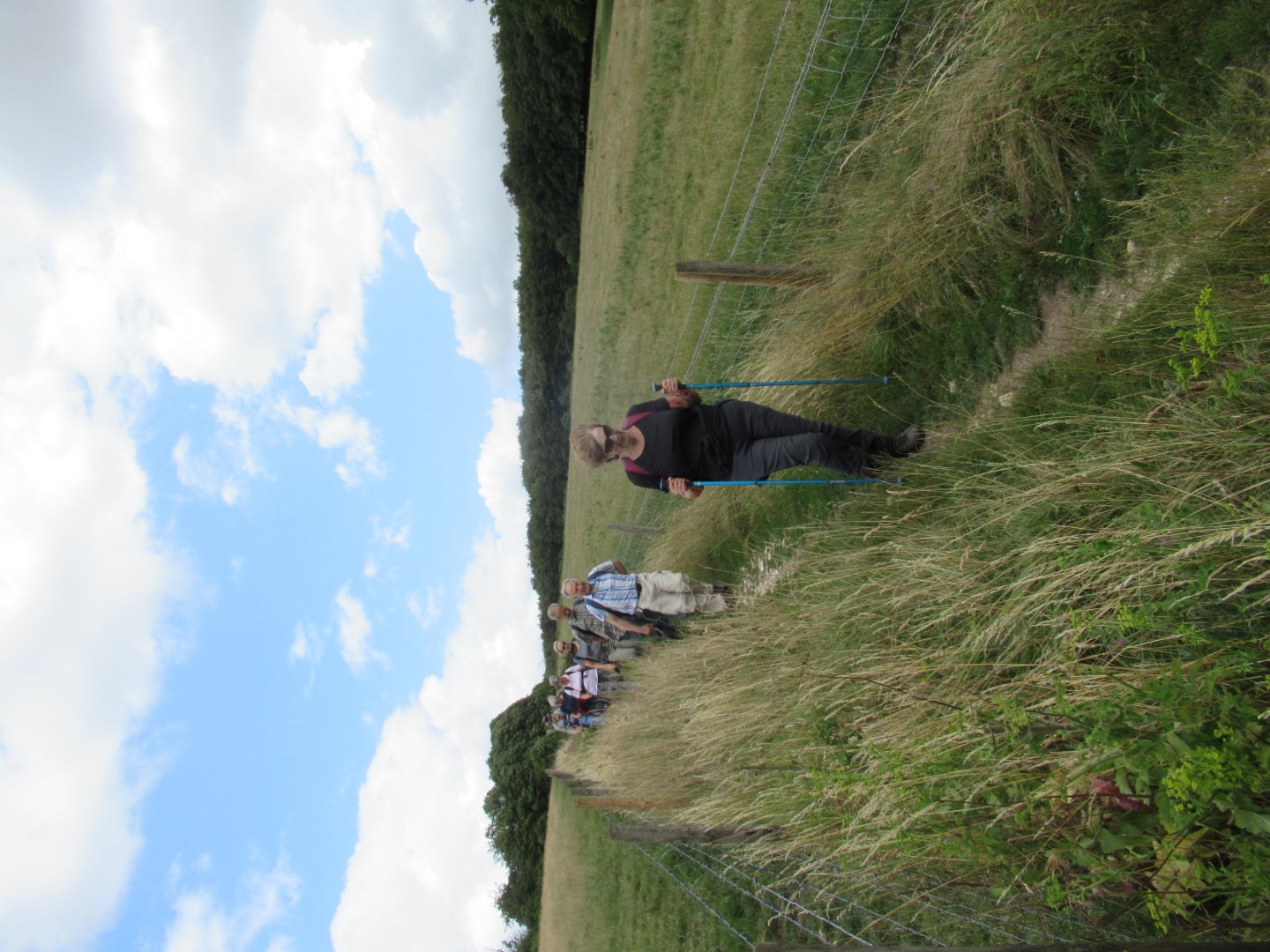
On the homeward stretch
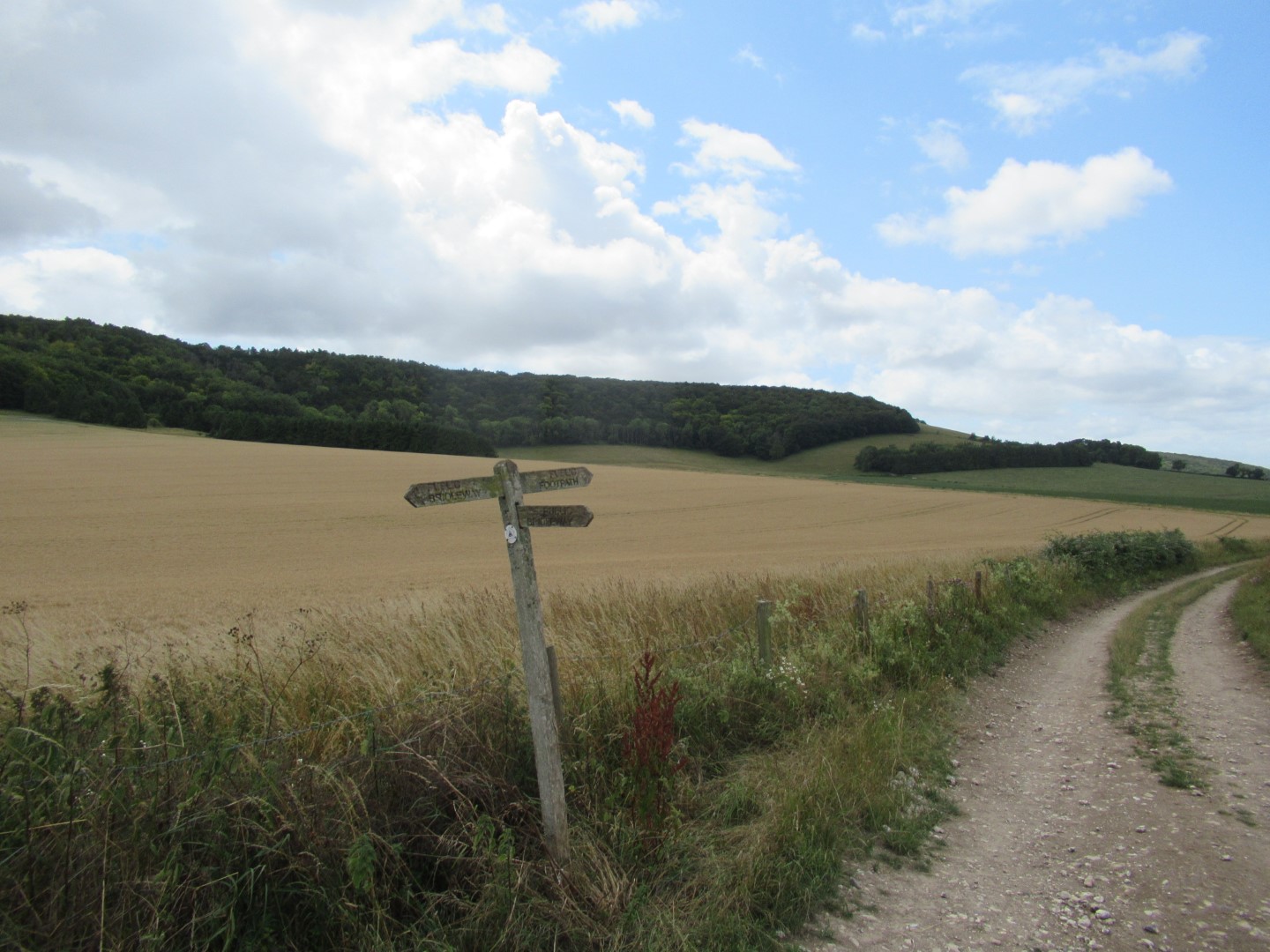
Almost at the pub, which route is the shortcut?
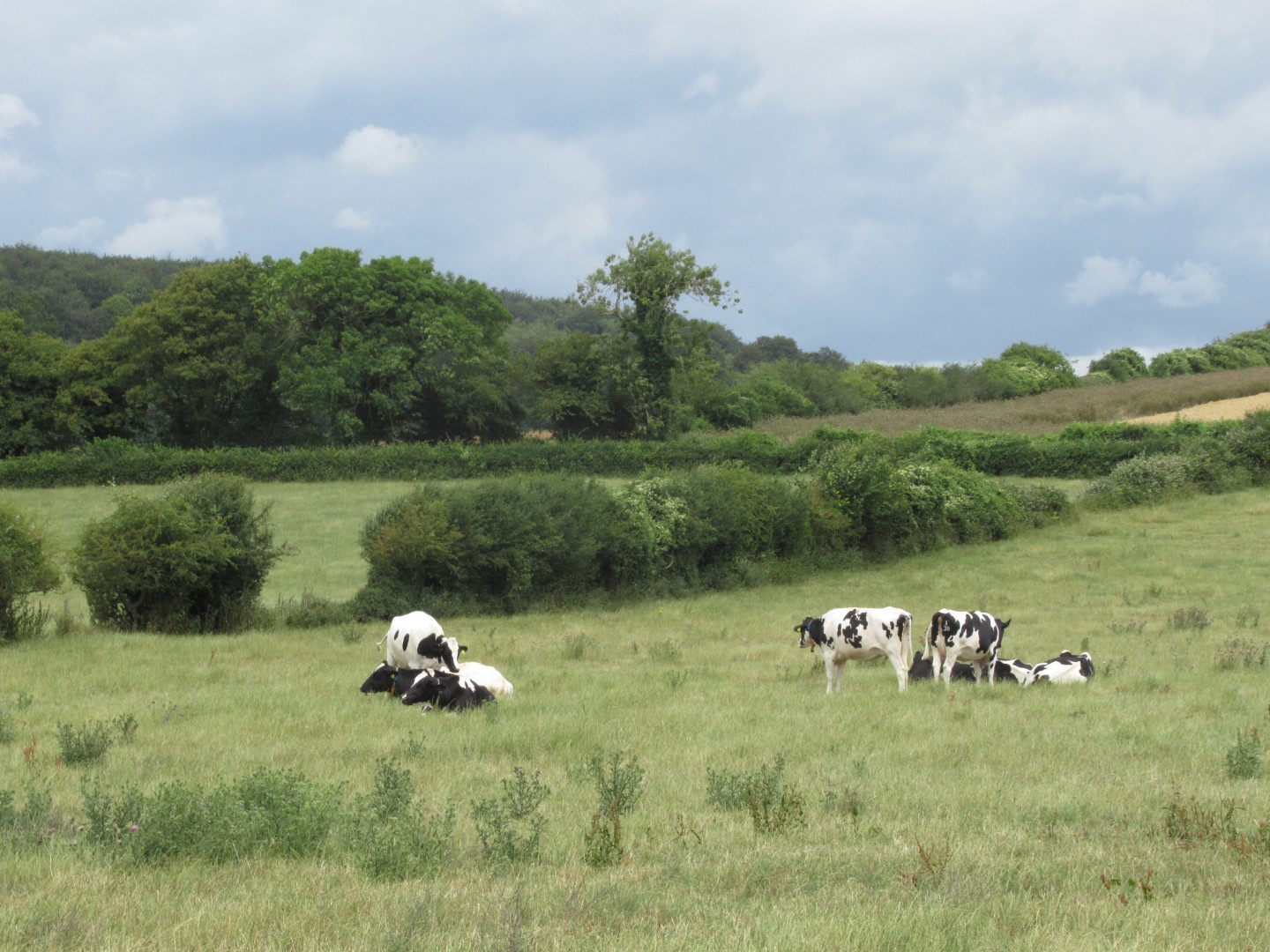
Indecisive cows three standing vote for dry weather, four lying down for rain
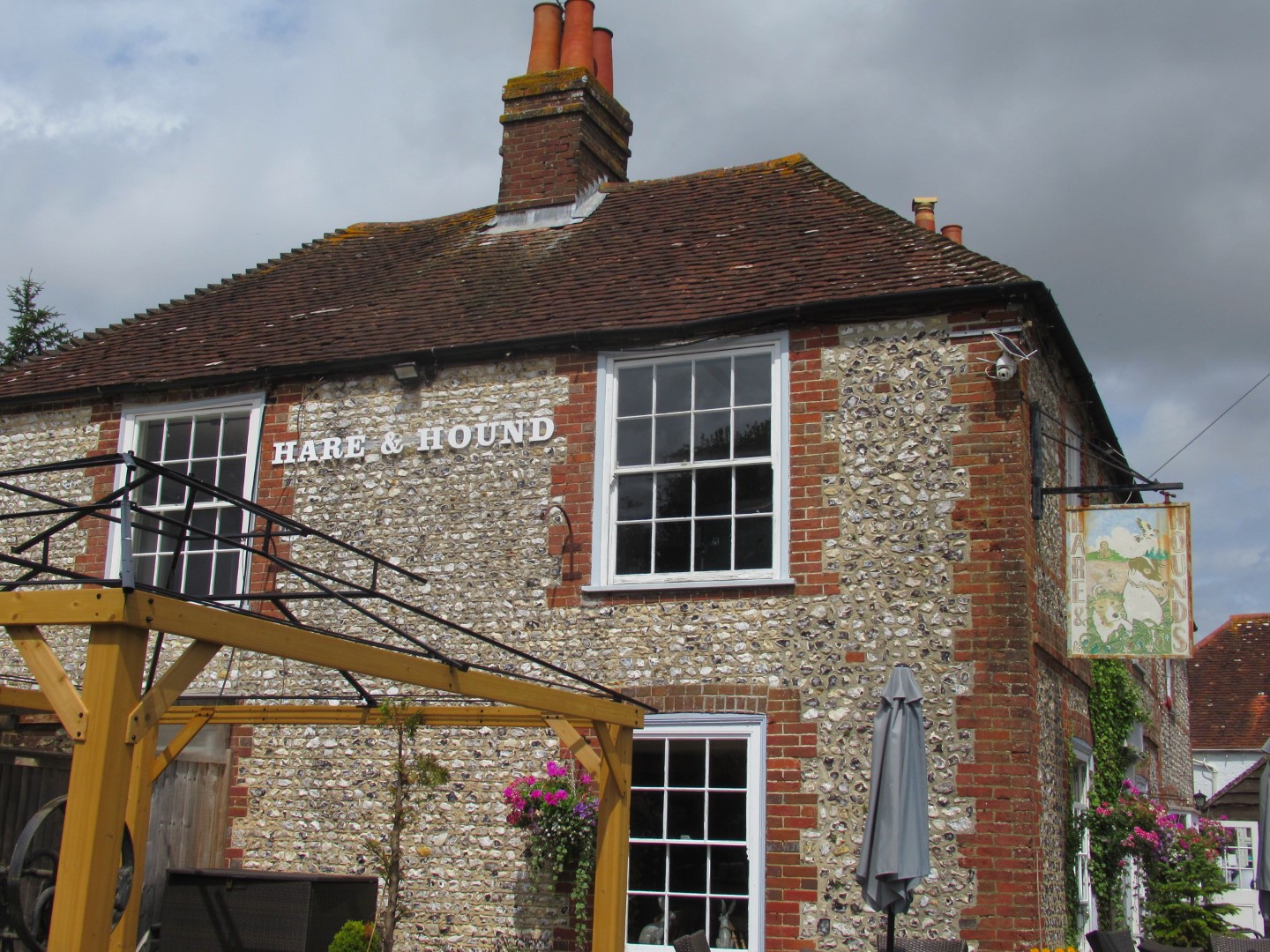
The welcome lunch venue
Cocking walk on 5th July 2023
We gathered outside The Bluebell before setting off across the road and down the path towards Mill Hanger. On the way we were keen to have a look at the fabulous statues hidden behind a hedge. However, the hedge proved a major obstacle and we were fortunate a fellow walker had been taking photos on a recent open day. Can't be sure the open day will be repeated but here's a link - Cocking Garden - which is interesting. After some field work we descended into the magical Hoe Copse and walked up to Mill Lane in Heyshott. Walking north we passed Walkers Farm and then turned towards Heyshott Down, full of tumuli and managed by the Trust that the Cocking sculptor supports. Descending into Heyshott we travelled through fields full of wild flowers and then found a pleasant spot in the Churchyard for our drinks break. After using the provided seating, and duly refreshed, we embarked on our return journey, mostly through fields full of grain crops, wheat, barley and oats to eventually return to the start of our adventure. Food was provided by The Bluebell and was thoroughly enjoyed. Many thanks for the walk, Jay and Lindsay, about 5 miles in beautiful weather.
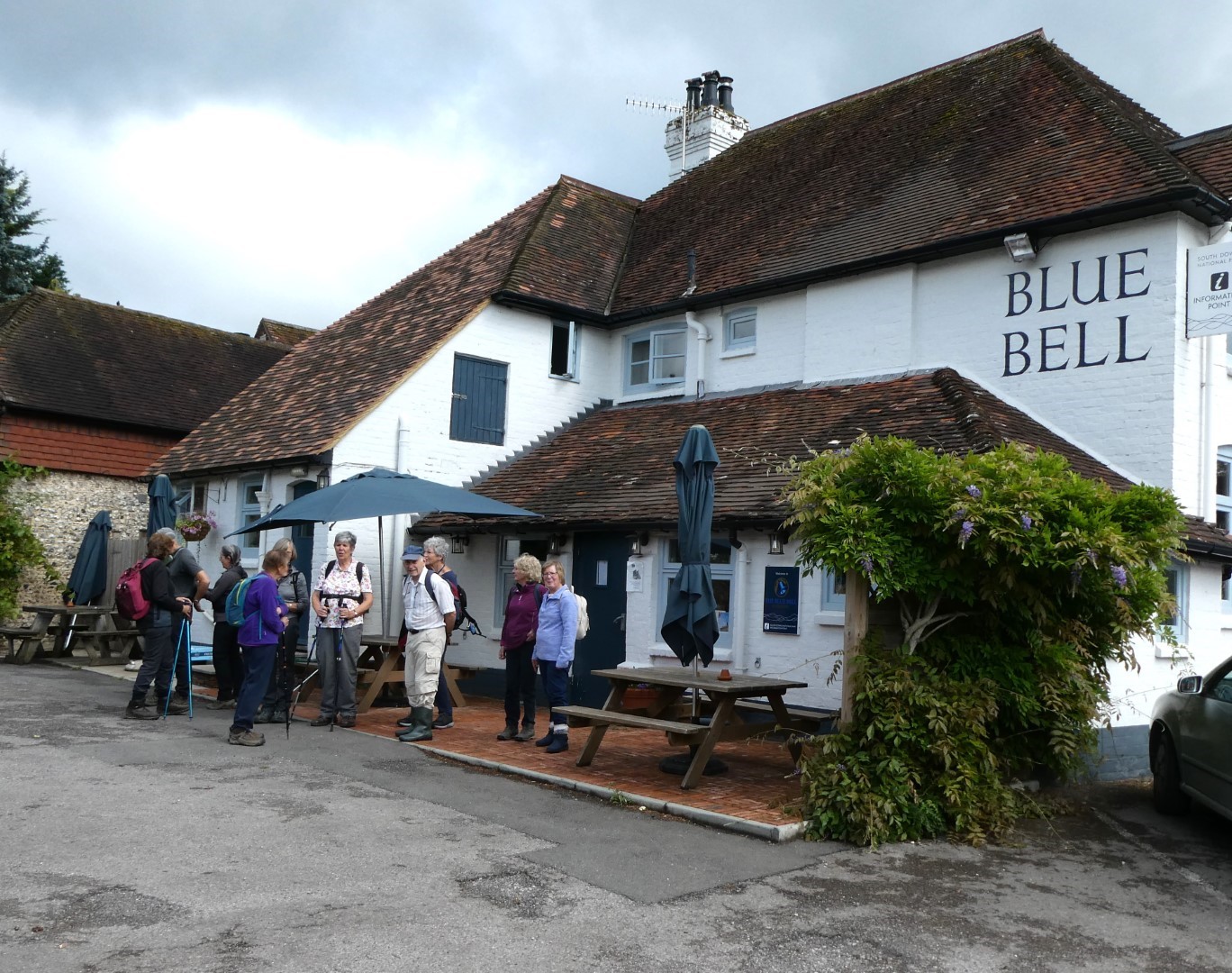
Preparing for the off

So what's behind the hedge - and what is that boot going to do......?
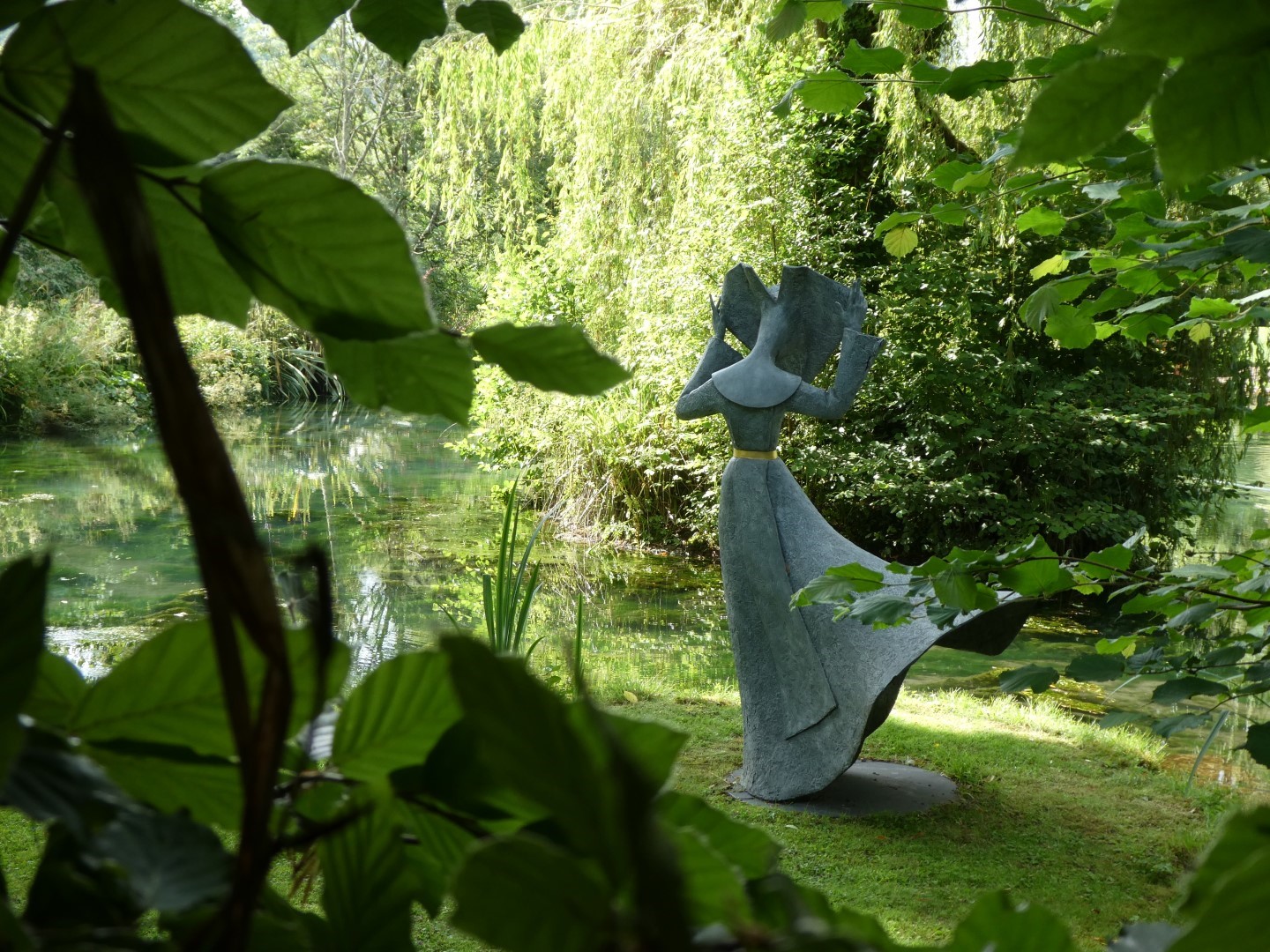
Aha, that's what's hidden away.
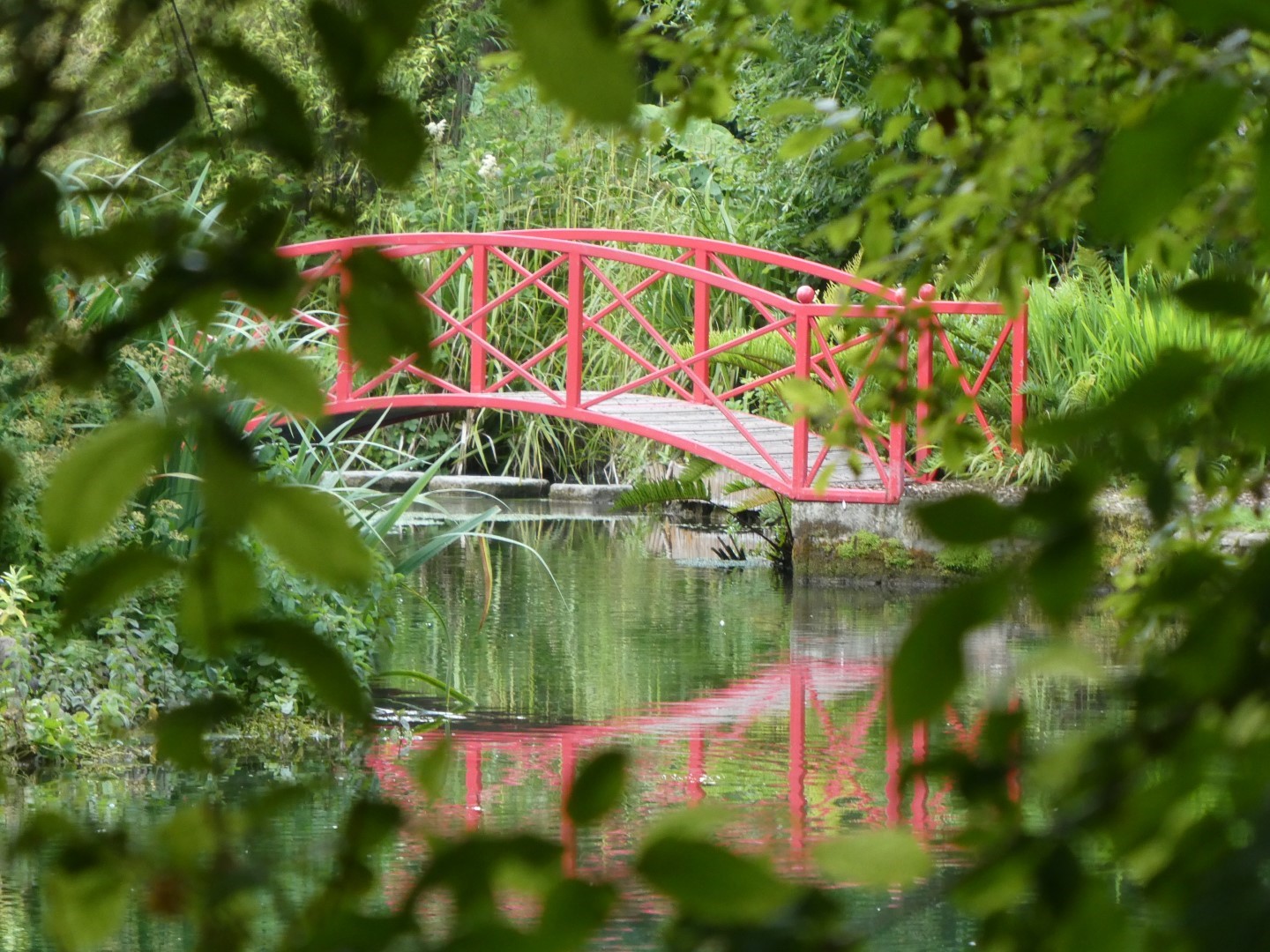
and a bridge!
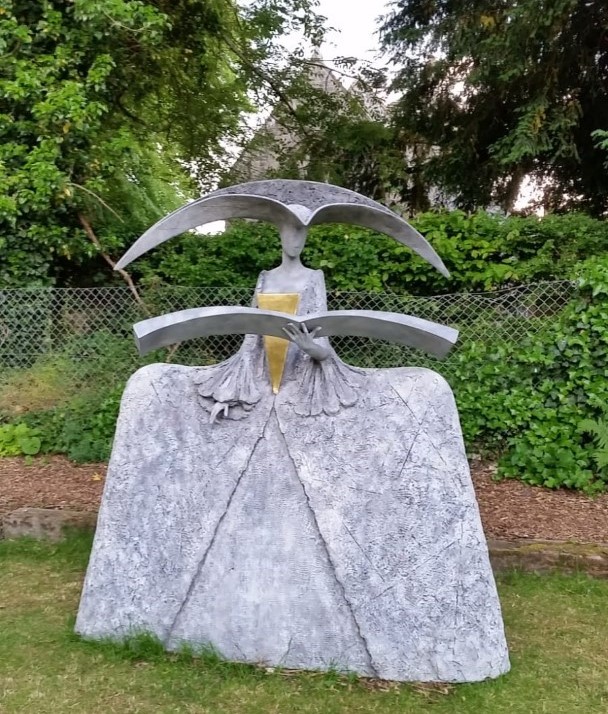
Is this our walk leader, studying the map?
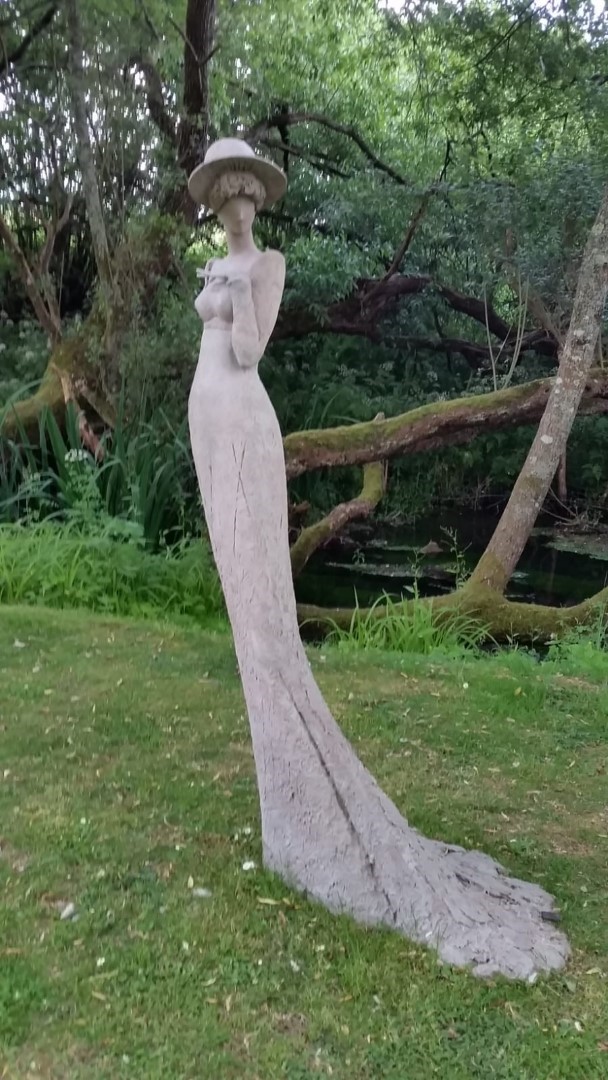
Well, I have my sun-hat, but where is my rucksack?
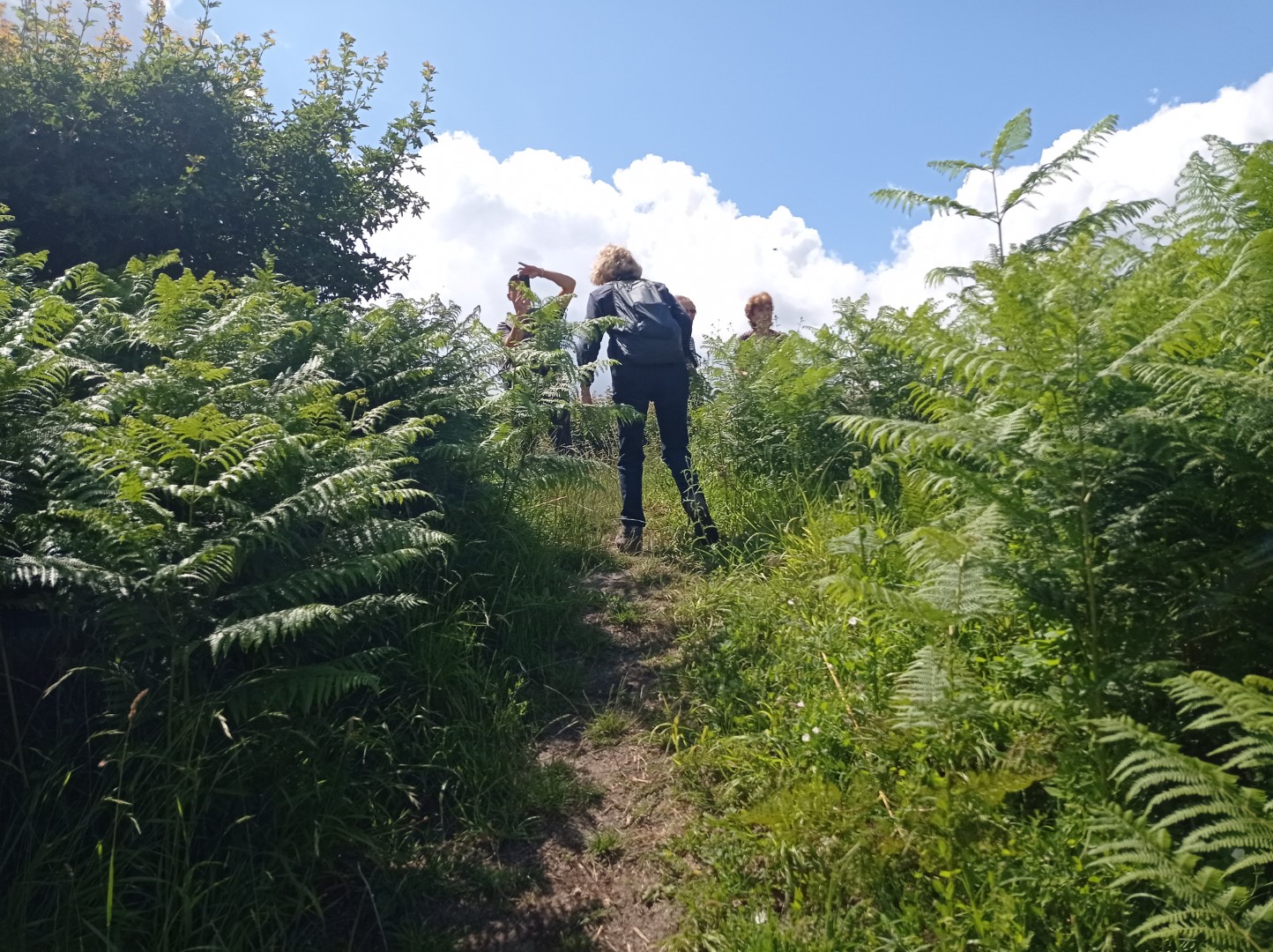
Climbing up into the field
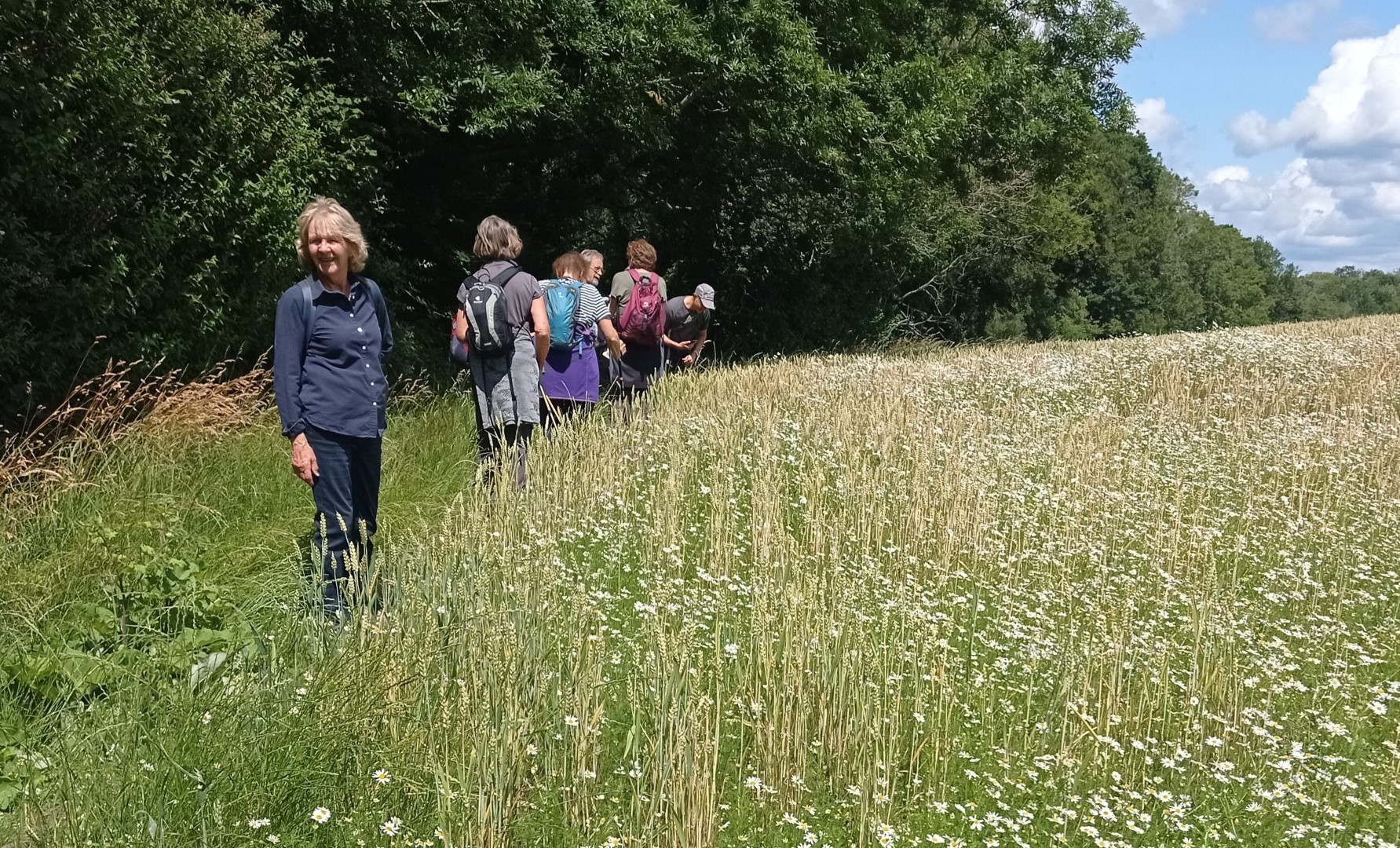
Daisies and barley
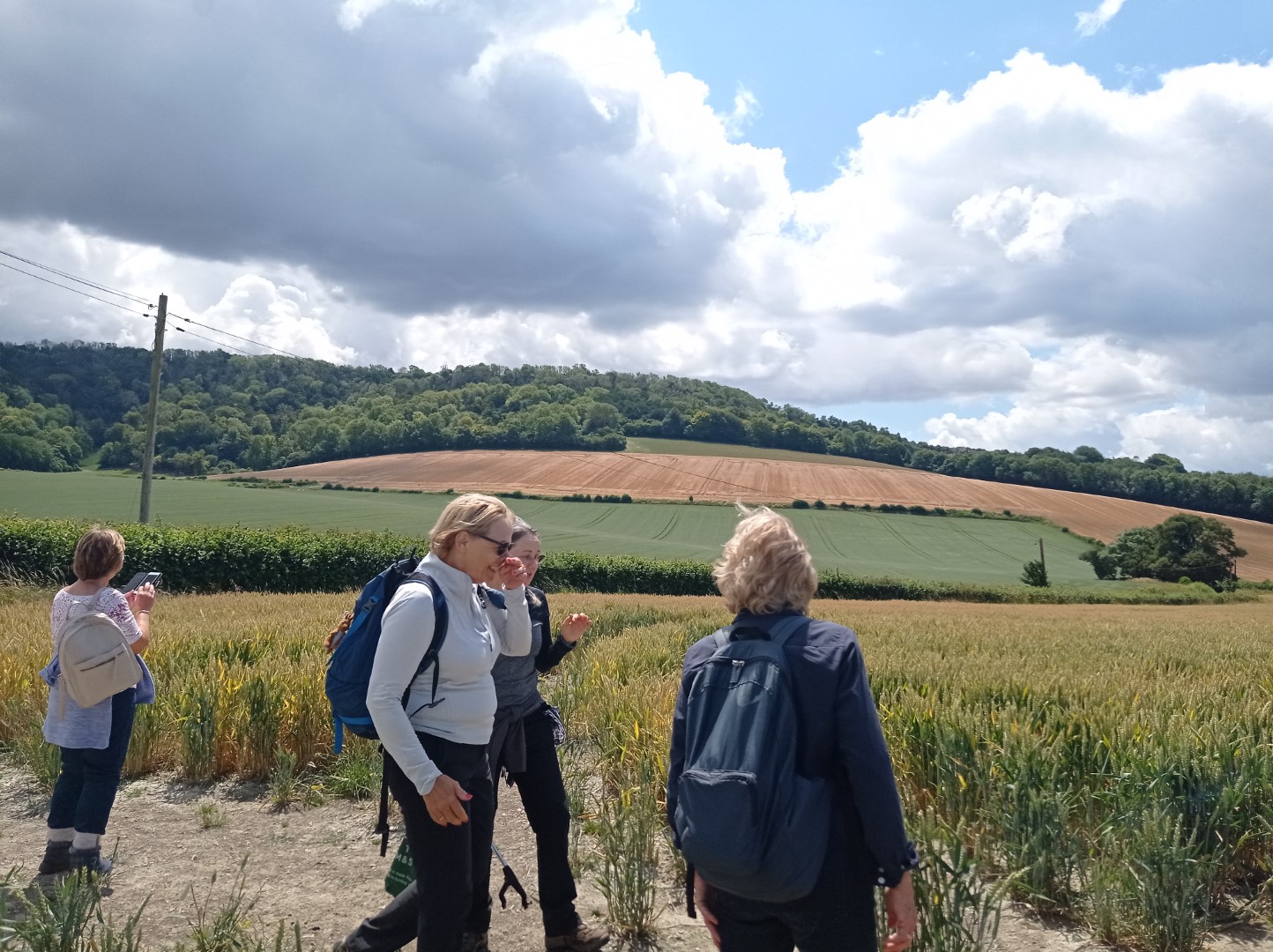
Beautiful Sussex!
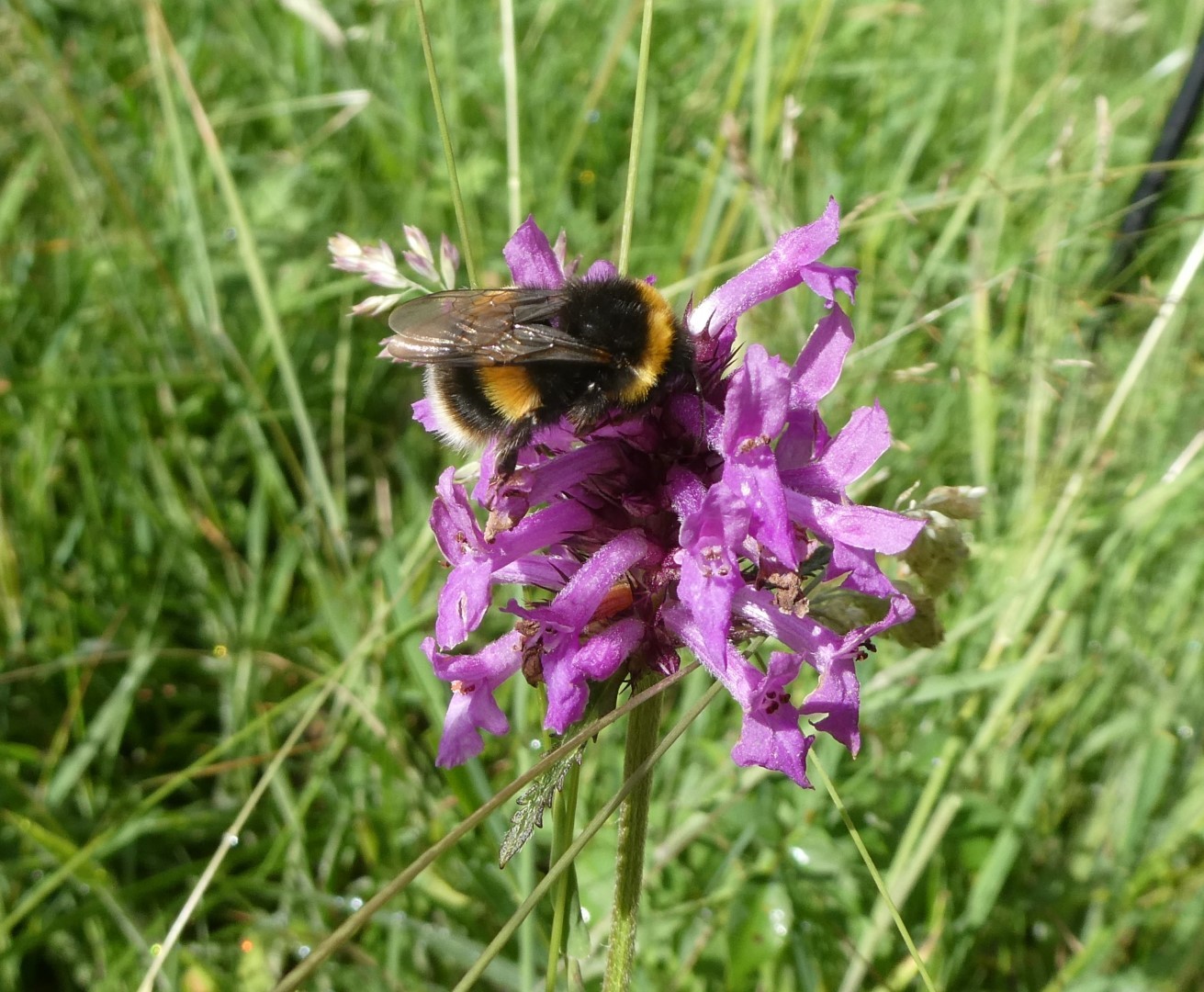
Bee feeding on an orchid?
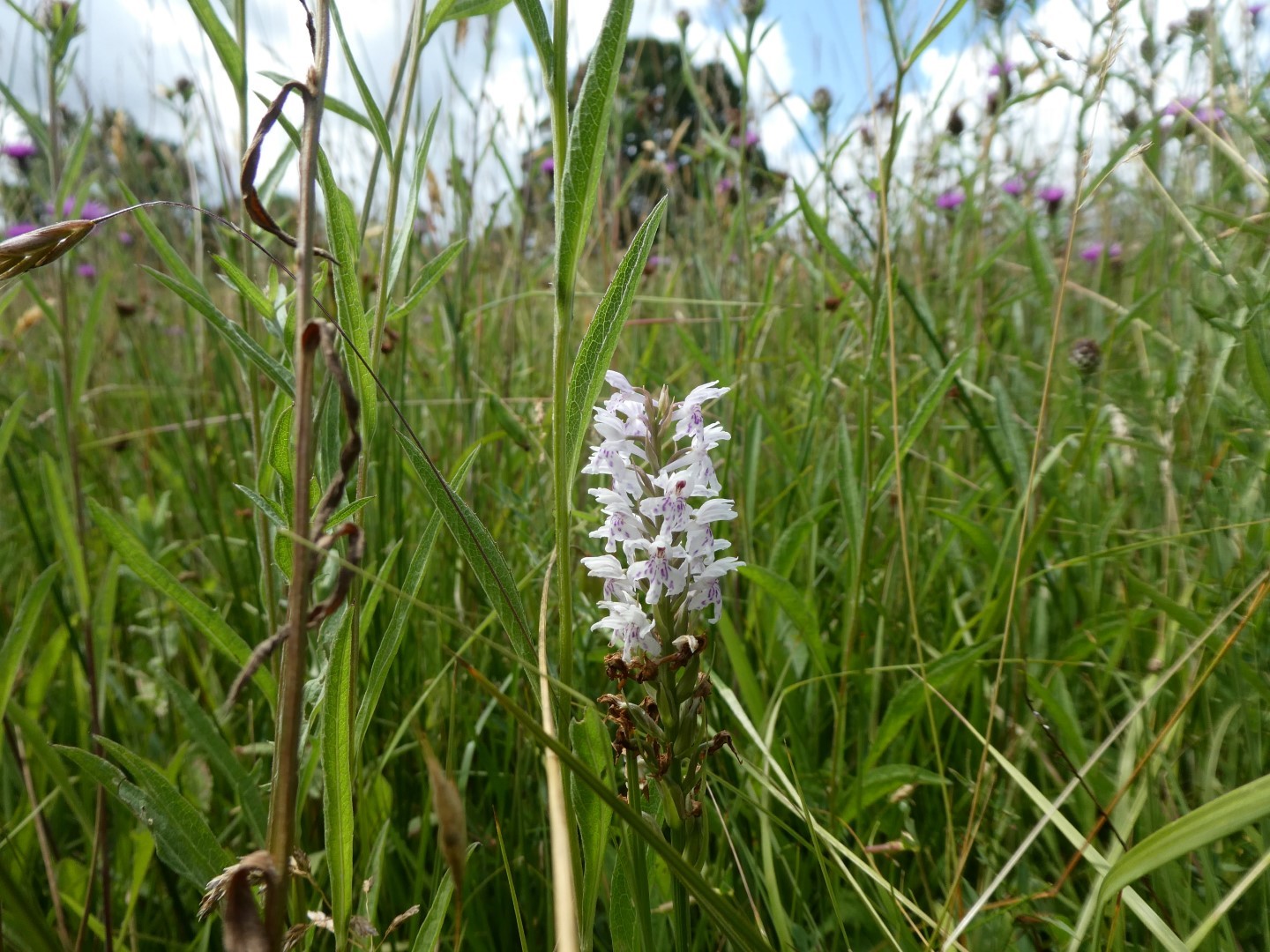
Common spotted orchid?
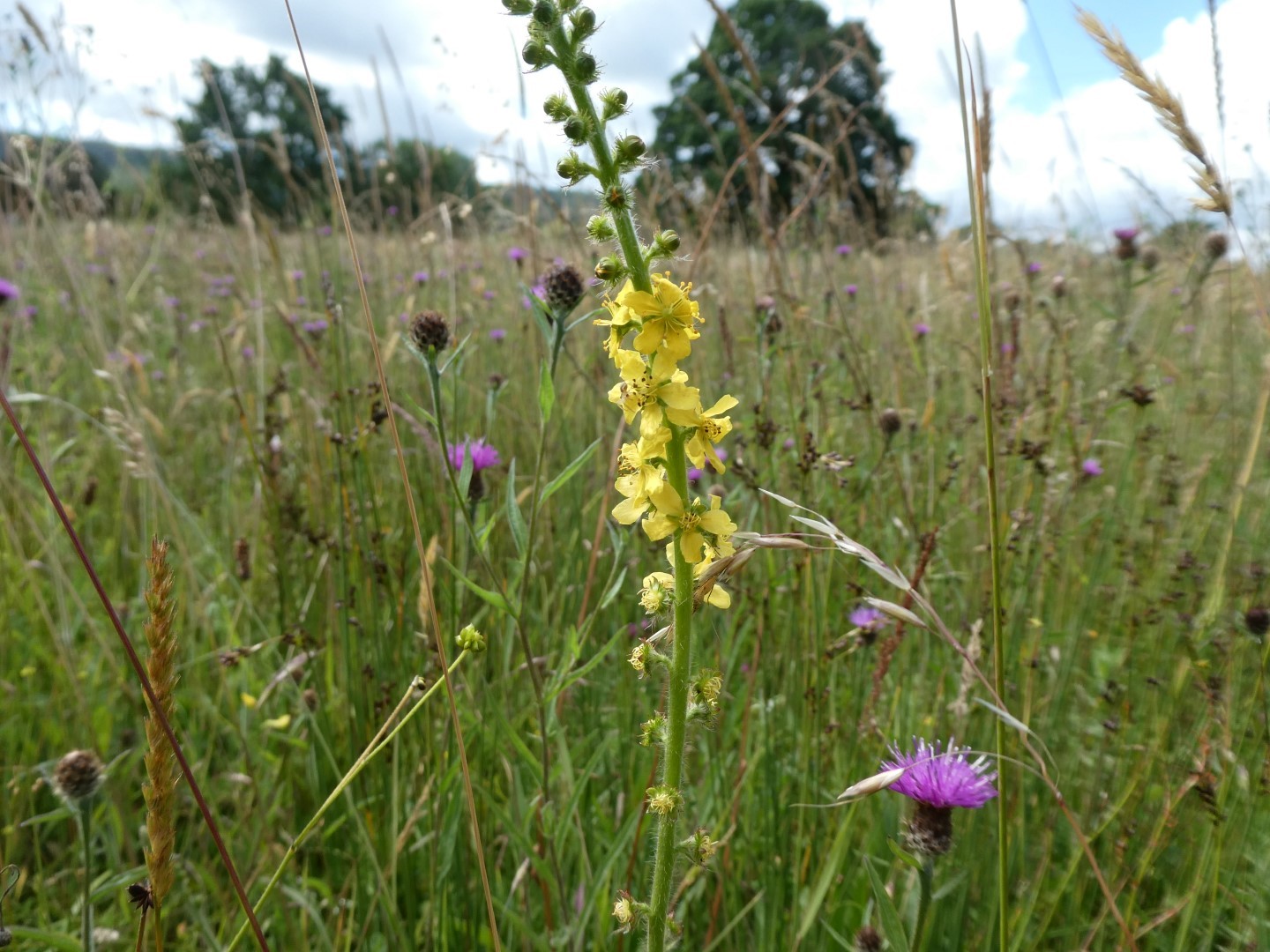
Wild flowers in abundance agrimoney and mullein.
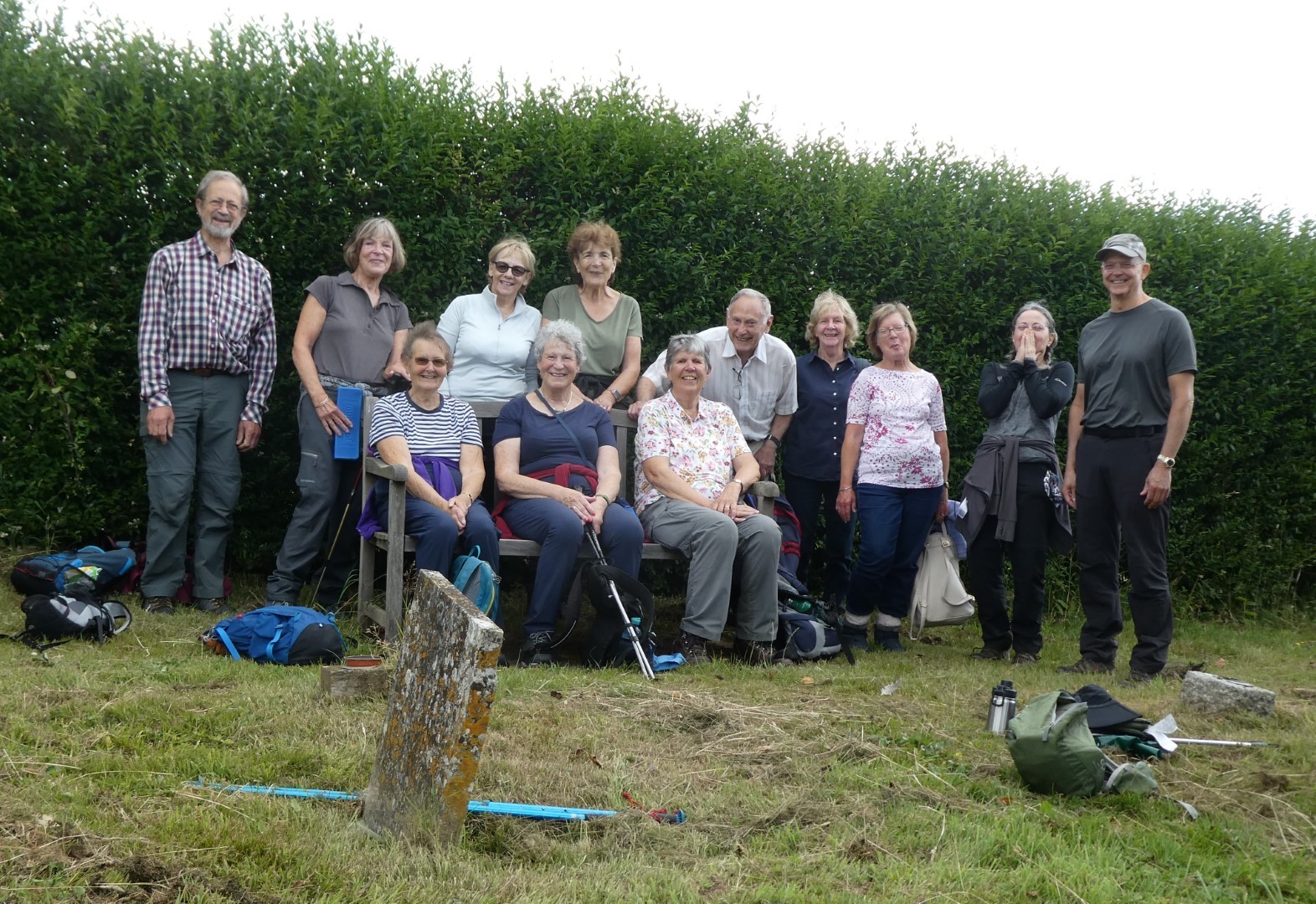
Drinks party in the churchyard
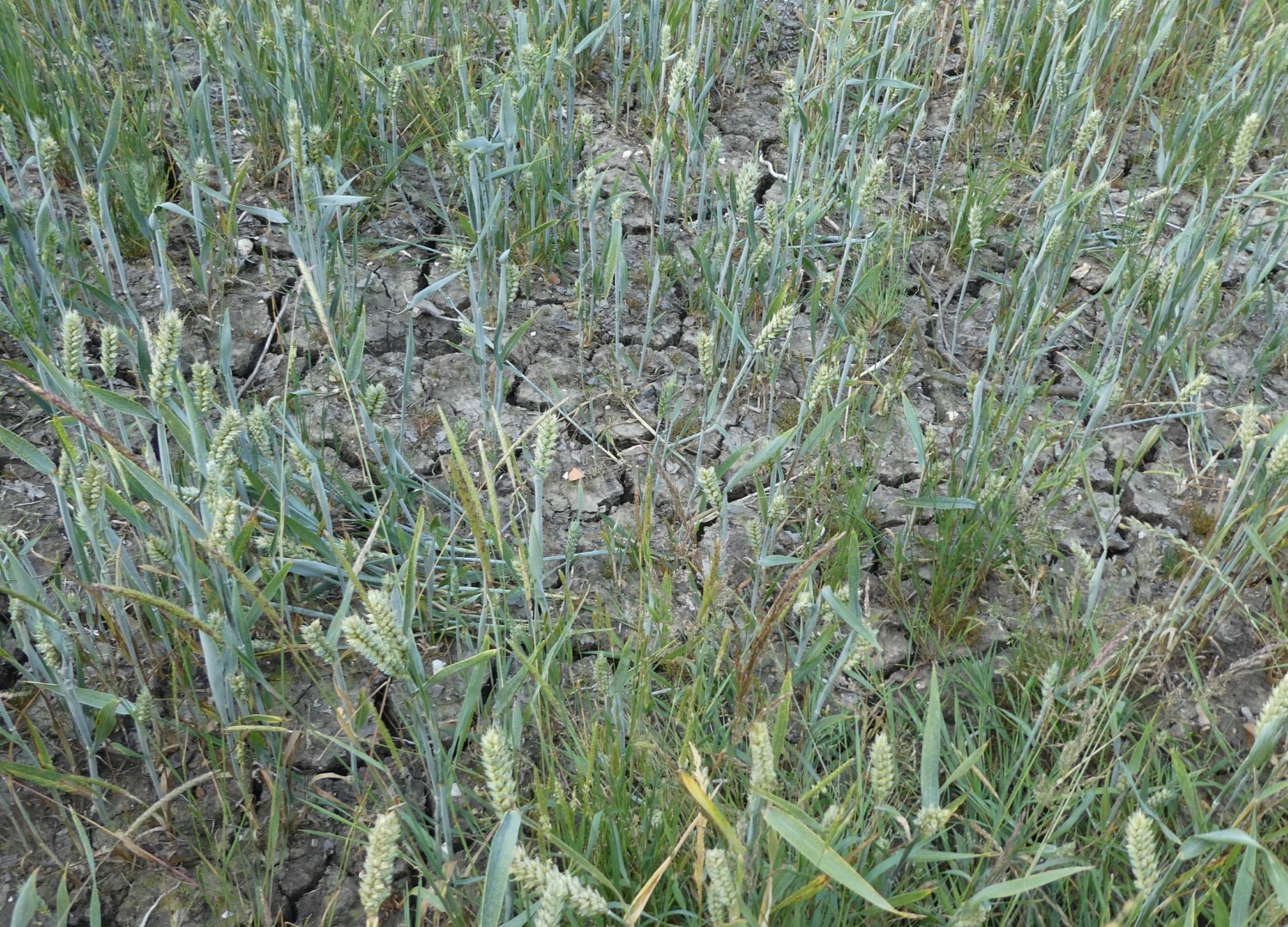
Despite recent rain, the earth was still very cracked up.
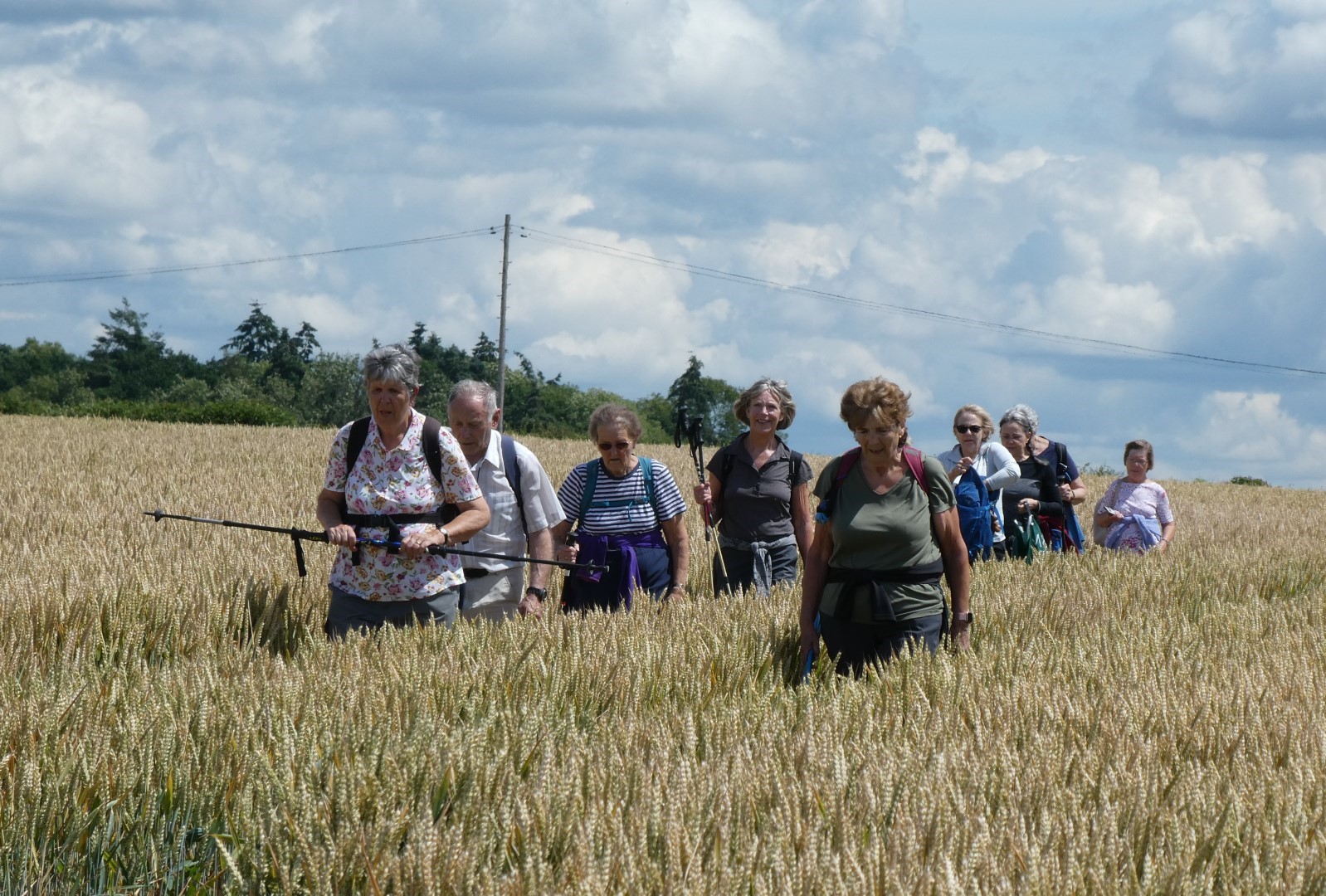
Looks like a field study group

There's no missing the path across that field!
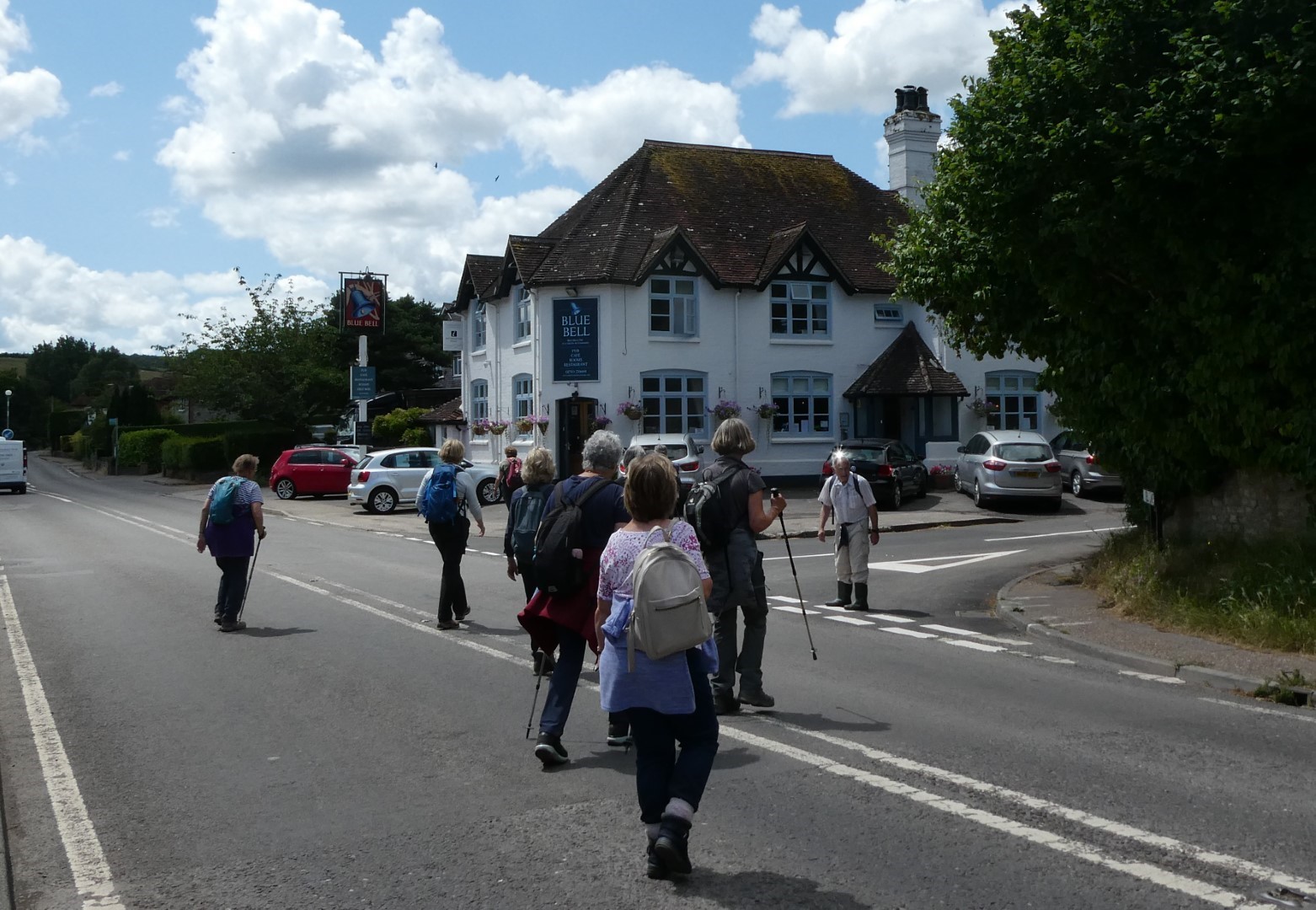
Back to Cocking village
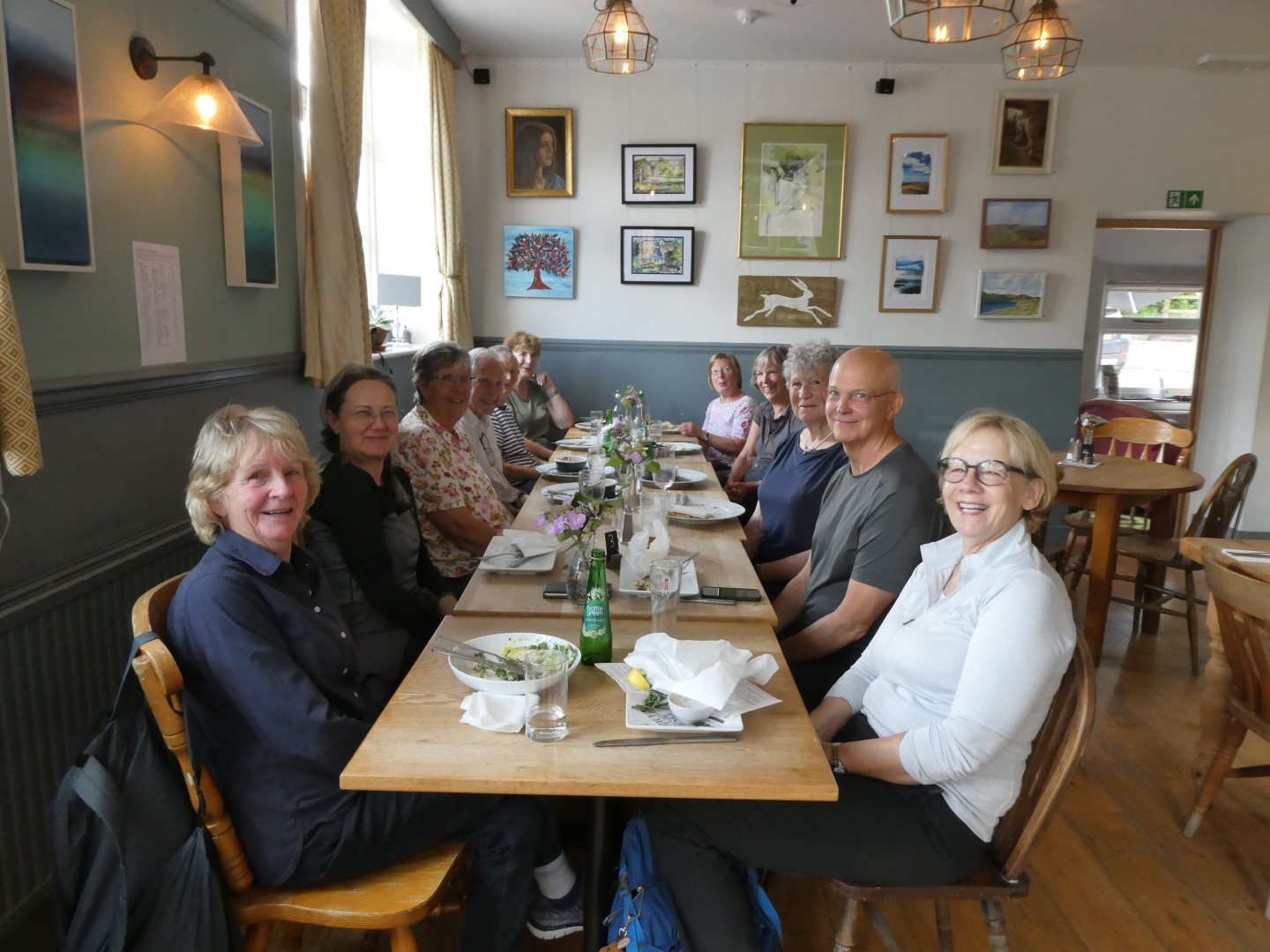
and a great lunch
.jpg)
Nice words from Virginia - was she on our walk?

About 5 miles
Recent galleries
- Fittleworth walk on 18th February 2026
- Midhurst walk on 11th February 2026
- Milland walk on 4th February 2026
- Lynchmere Walk on 28th January 2026
- Walderton walk on 14th January 2026
History
2026
2025
- December (3)
- November (4)
- October (5)
- September (4)
- August (4)
- July (5)
- June (4)
- May (5)
- April (4)
- March (5)
- February (3)
- January (4)
2024
- December (3)
- November (5)
- October (4)
- September (4)
- August (4)
- July (4)
- June (5)
- May (5)
- April (5)
- March (5)
- February (5)
- January (4)
2023
- December (3)
- November (6)
- October (5)
- September (5)
- August (3)
- July (4)
- June (6)
- May (5)
- April (4)
- March (5)
- February (4)
- January (4)
2022
- December (4)
- November (5)
- October (5)
- September (3)
- August (4)
- July (6)
- June (11)
- May (4)
- April (5)
- March (4)
- February (5)
- January (4)
2021
2020
- December (4)
- November (1)
- October (5)
- September (4)
- August (3)
- July (3)
- March (2)
- February (5)
- January (3)
2019
- December (2)
- November (5)
- October (4)
- September (3)
- August (4)
- July (4)
- June (11)
- May (5)
- April (4)
- March (3)
- February (5)
- January (5)
2018
- December (2)
- November (4)
- October (4)
- September (5)
- August (4)
- July (3)
- June (5)
- May (8)
- April (4)
- March (4)
- February (5)
- January (3)
2017
- December (3)
- November (5)
- October (3)
- September (4)
- August (4)
- July (4)
- June (11)
- May (4)
- April (4)
- March (3)
- February (4)
- January (5)
2016
- December (3)
- November (4)
- October (5)
- September (4)
- August (3)
- July (6)
- June (11)
- May (4)
- April (5)
- March (3)
- February (10)
- January (2)
2015
2014
- June (2)
1997
- February (1)